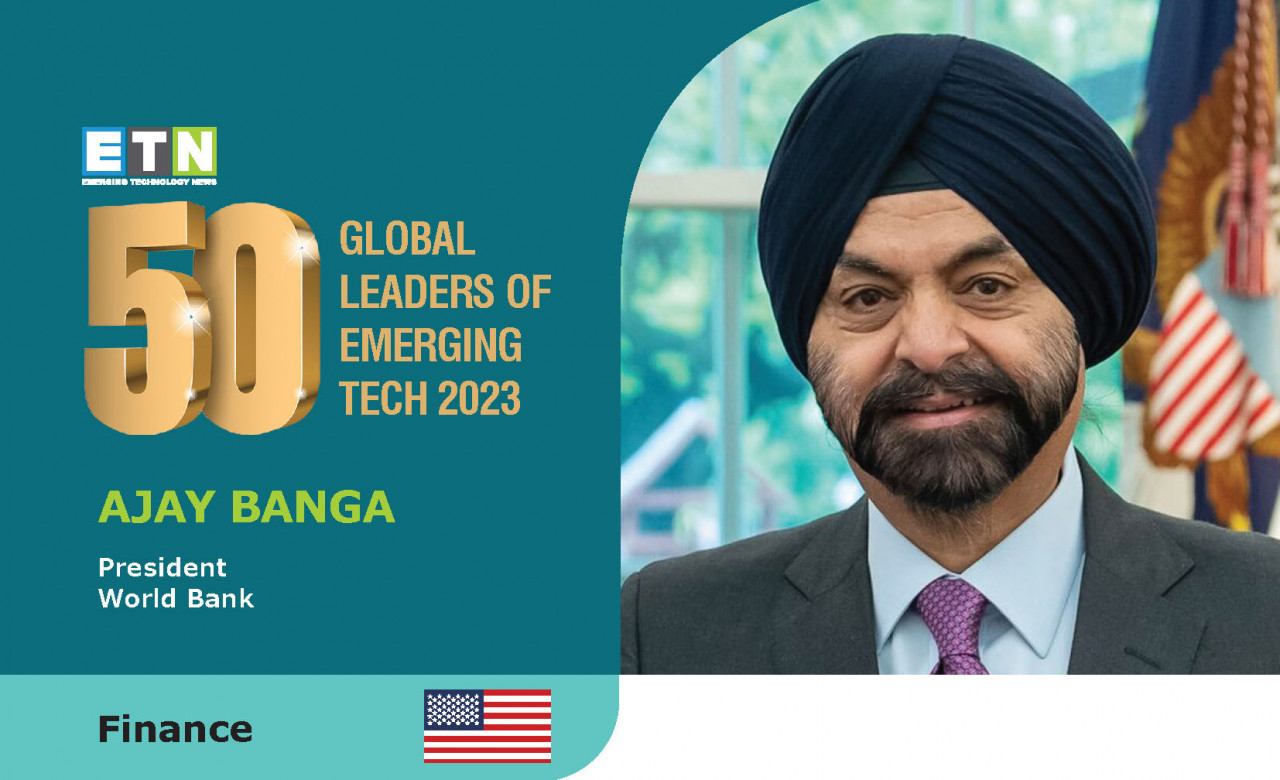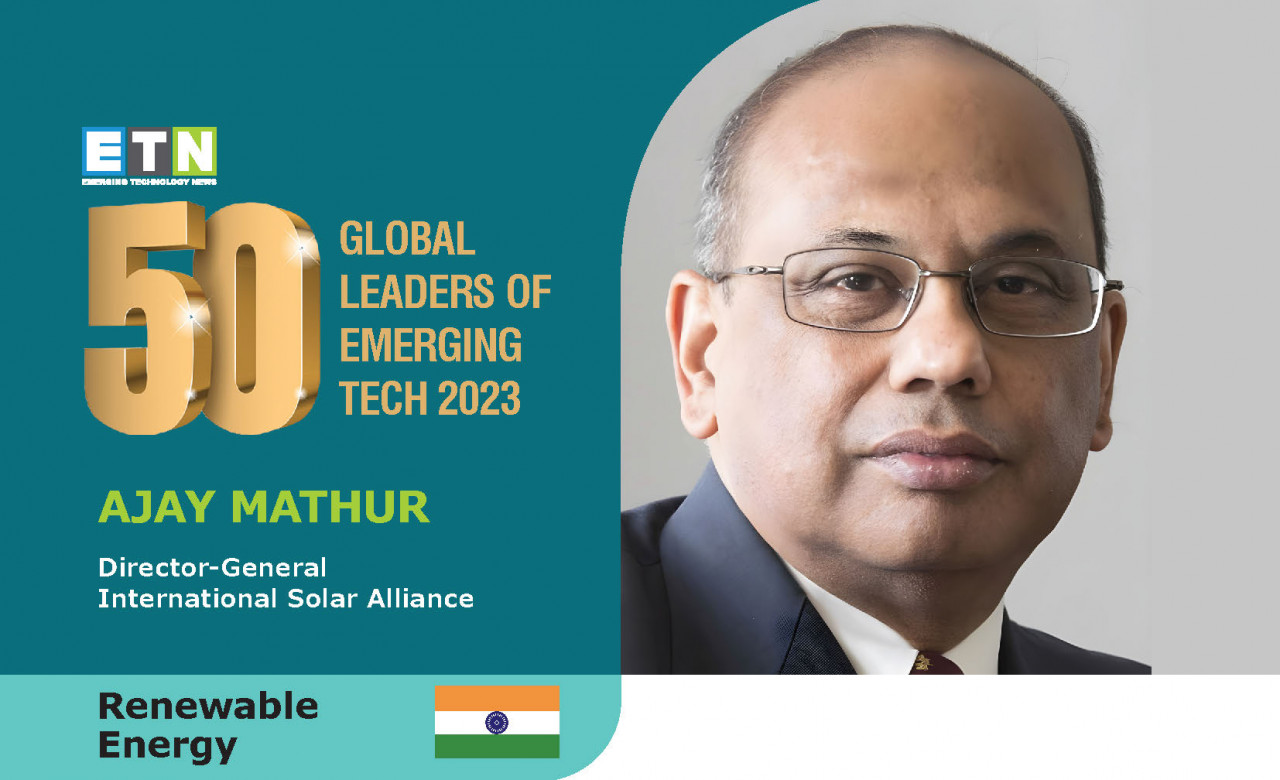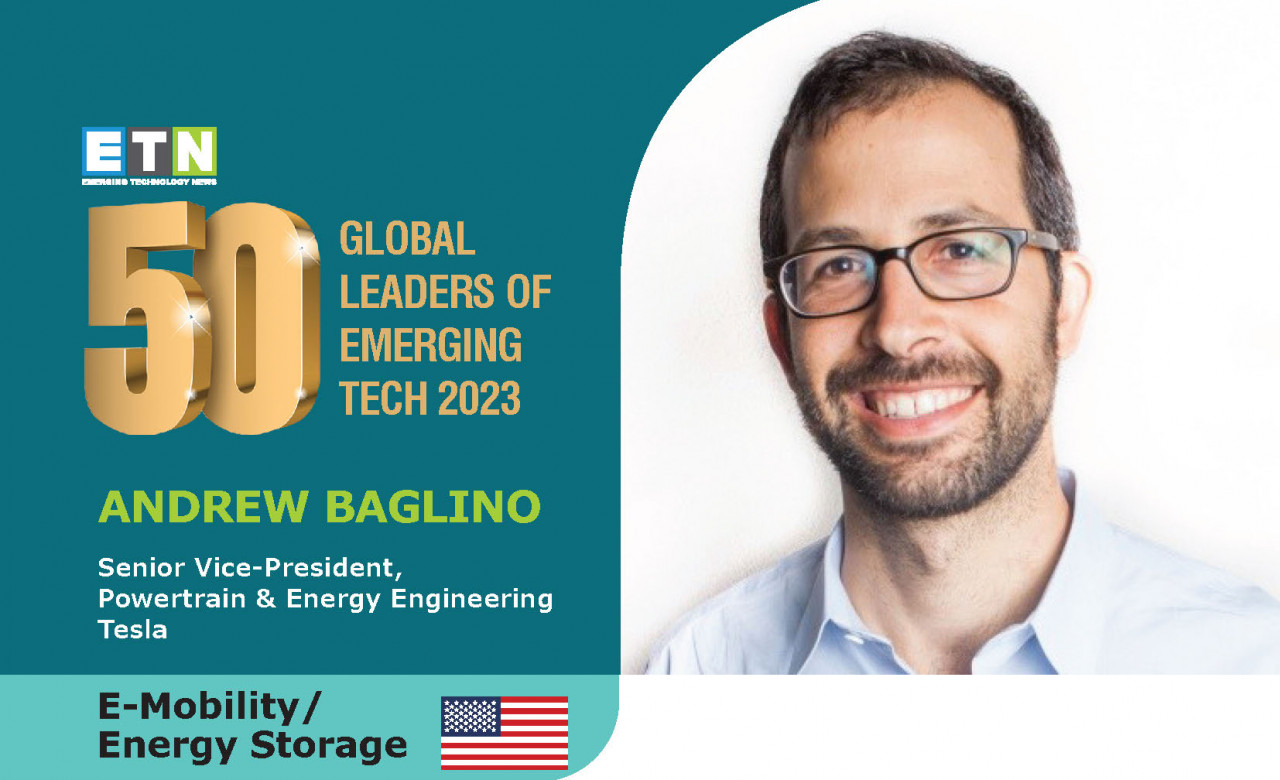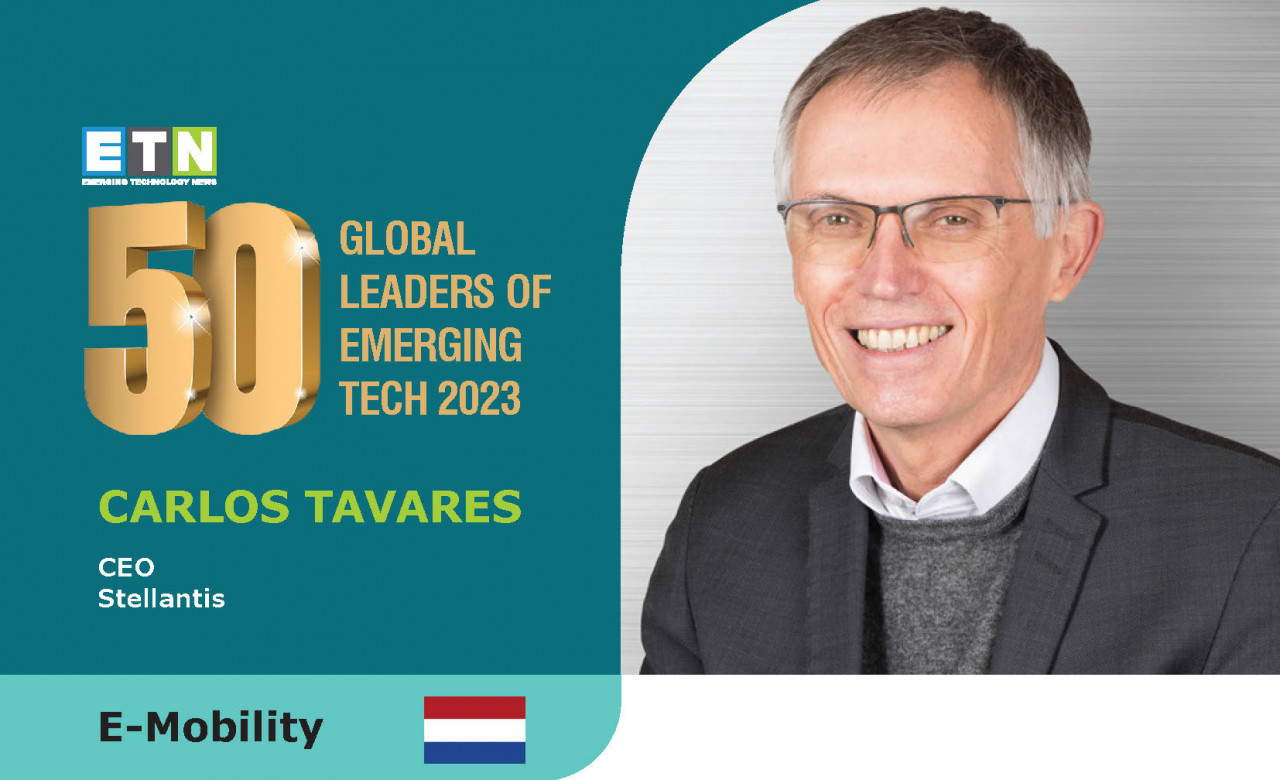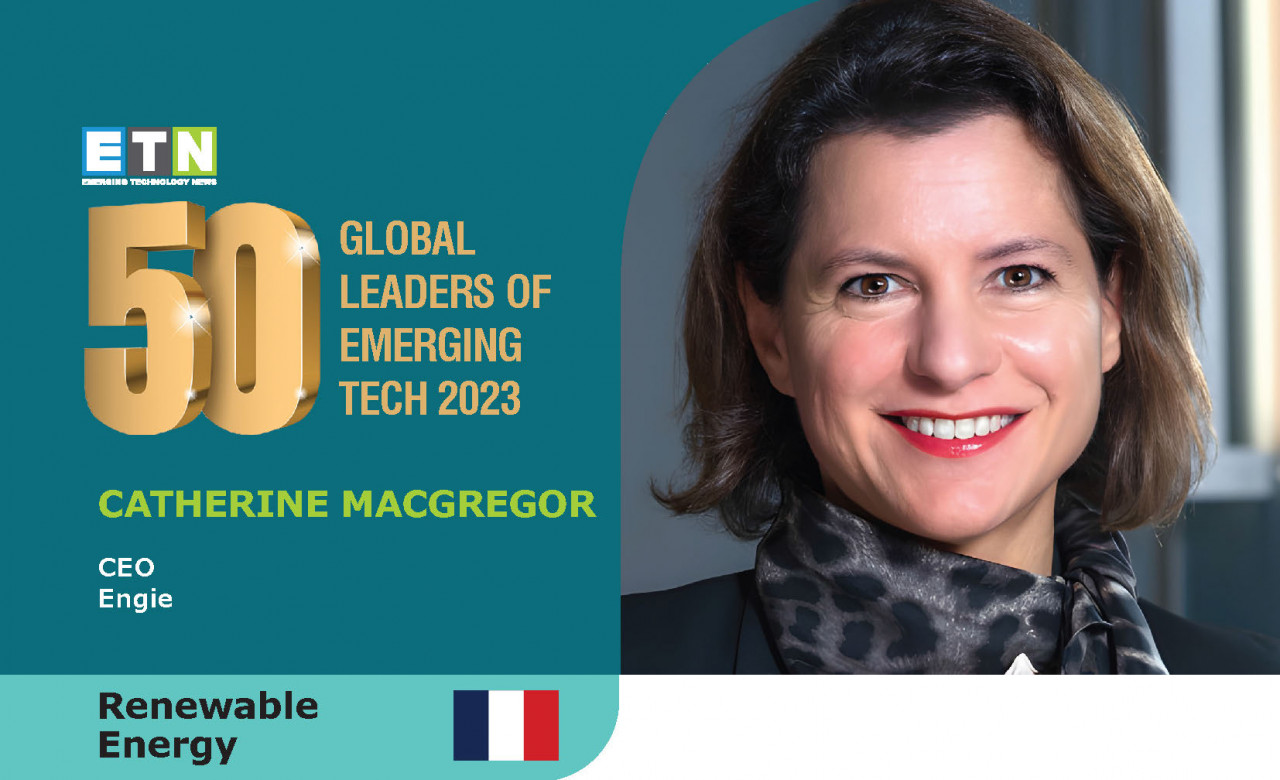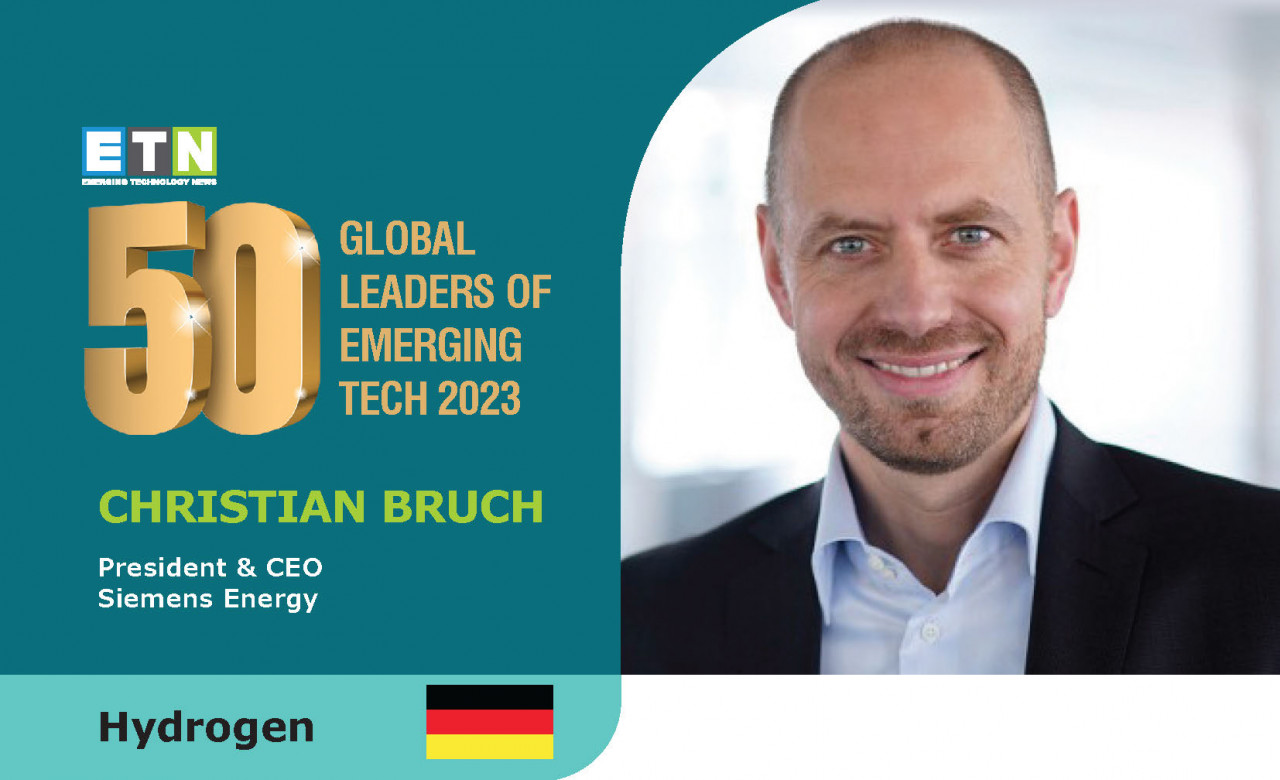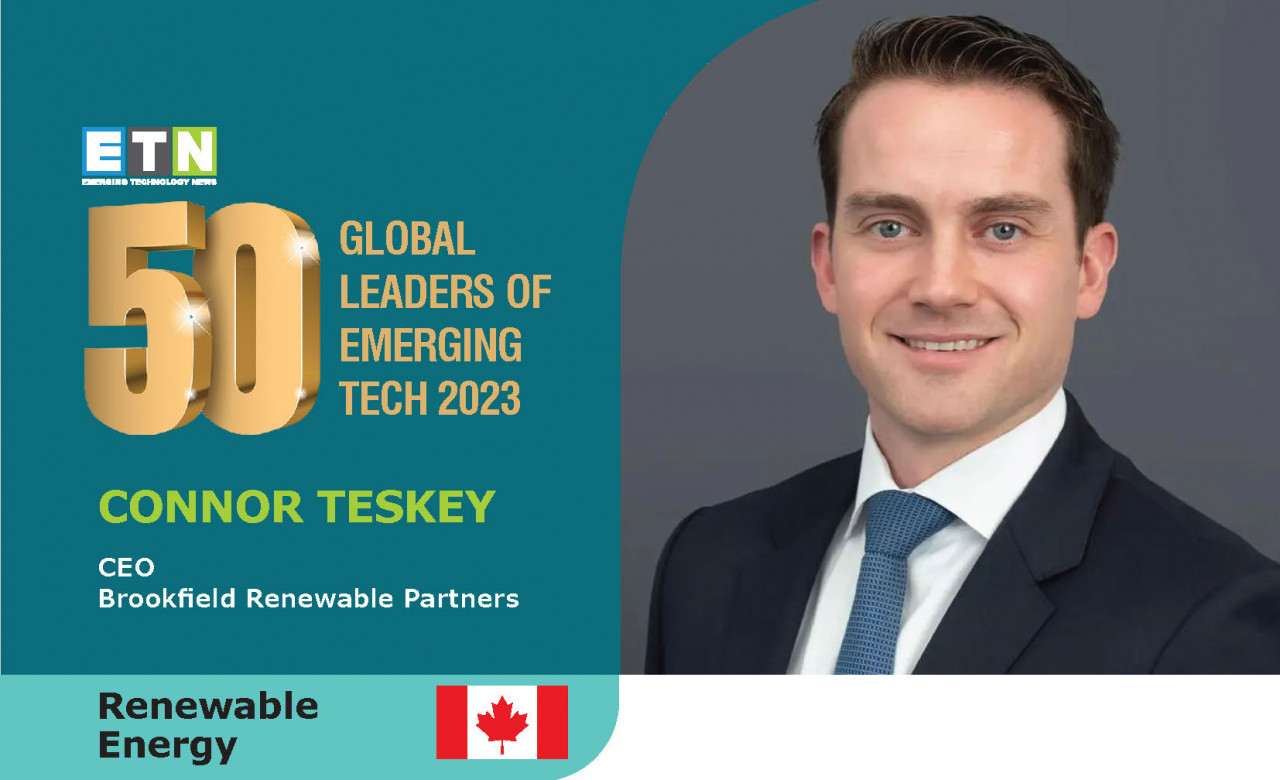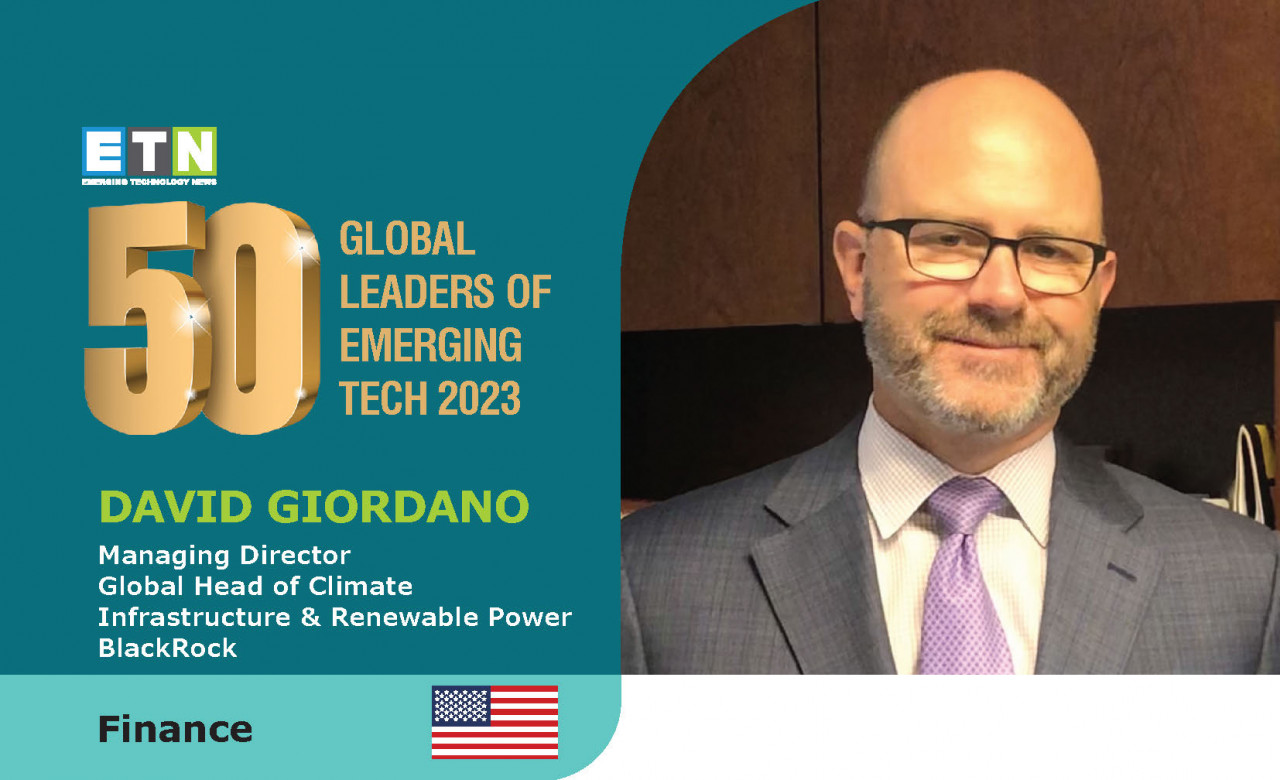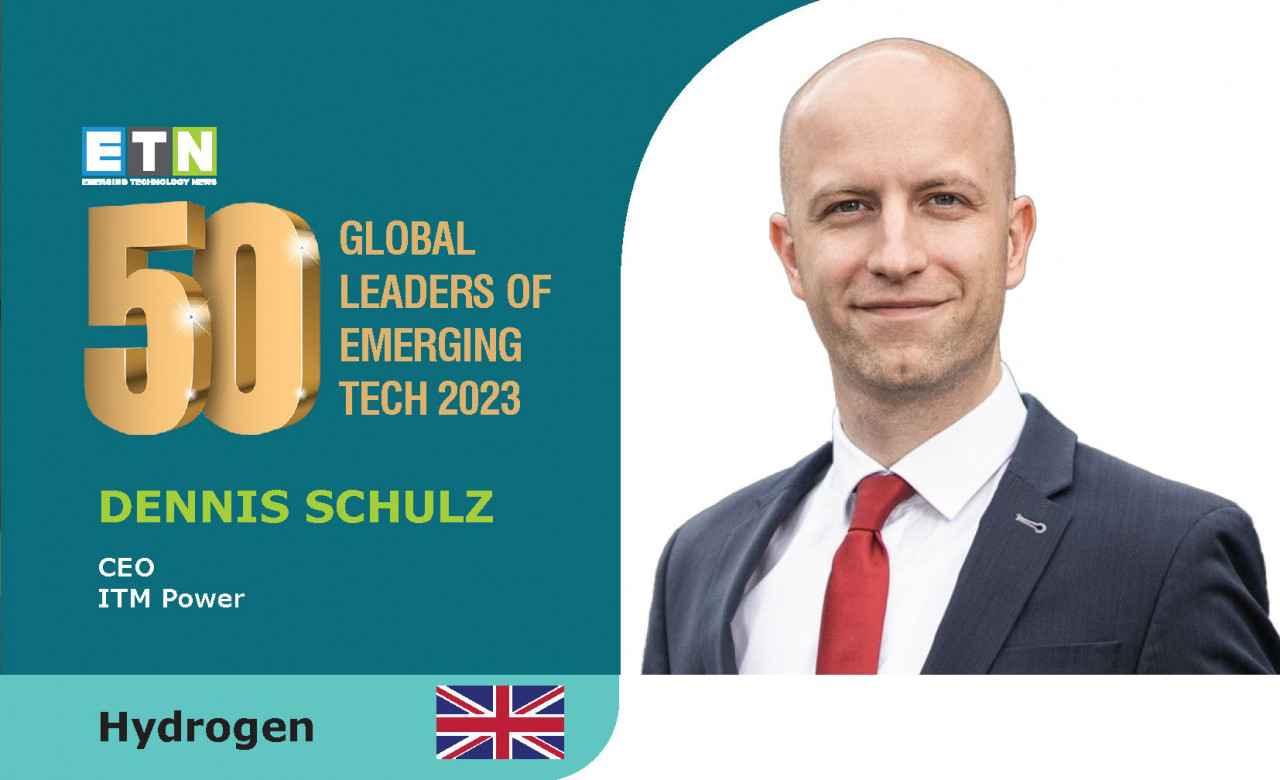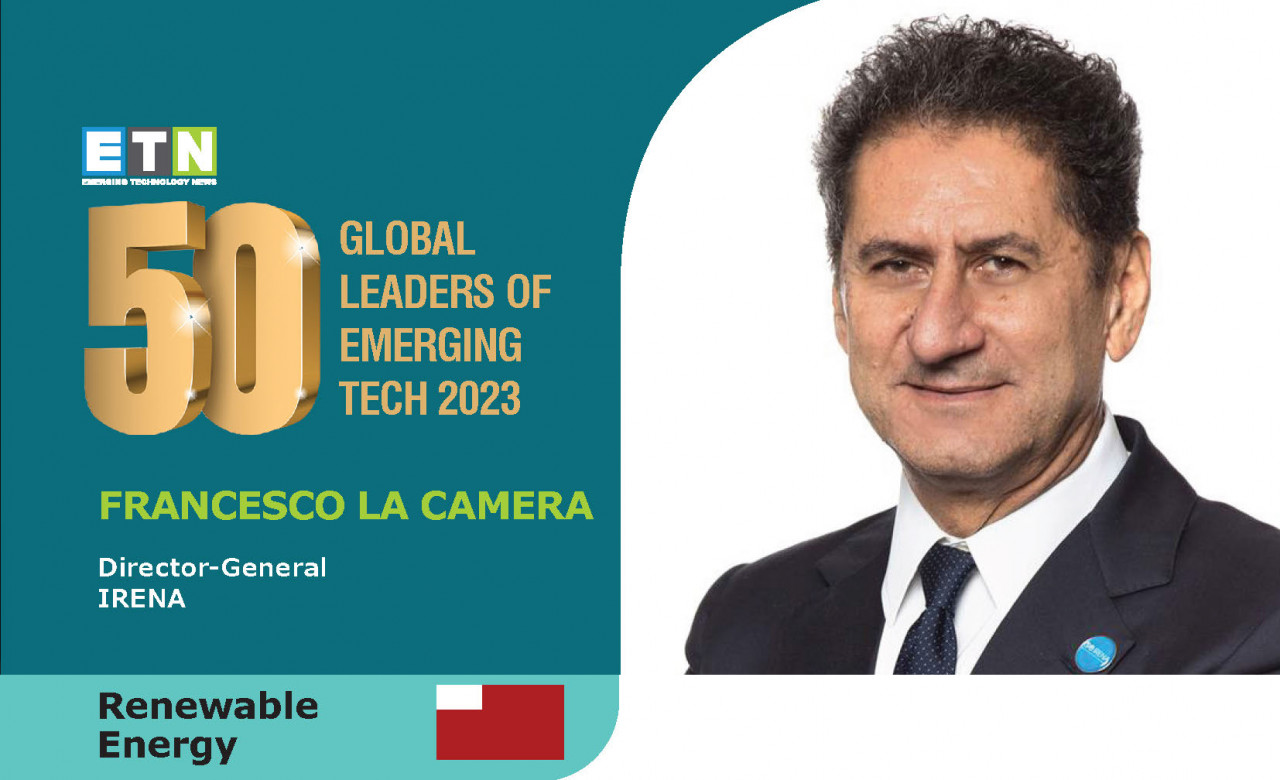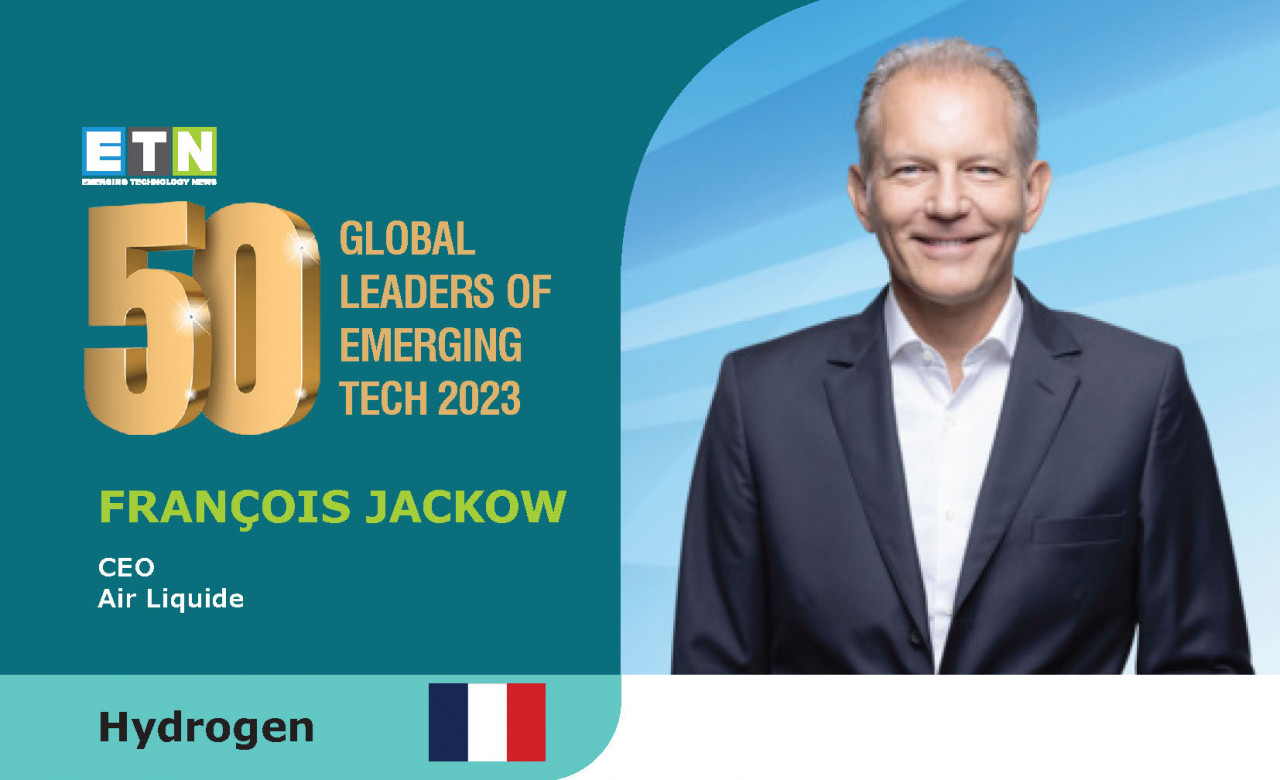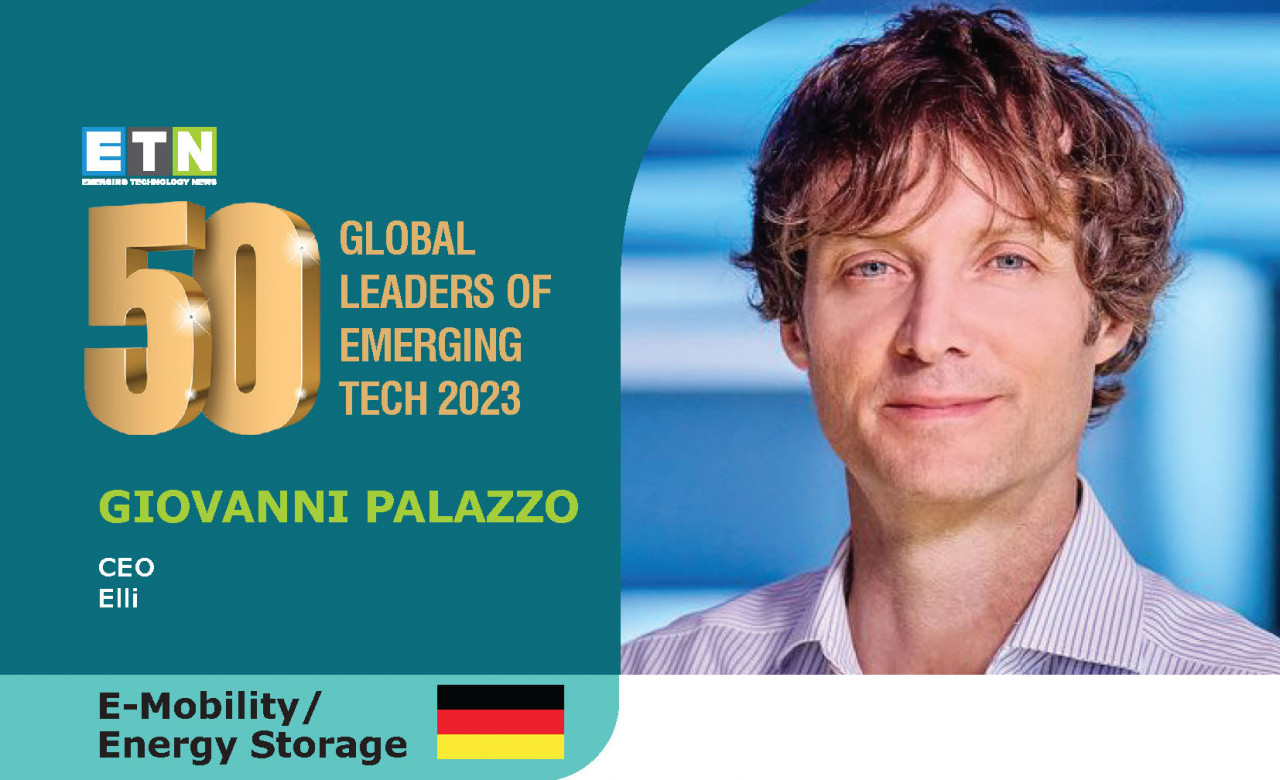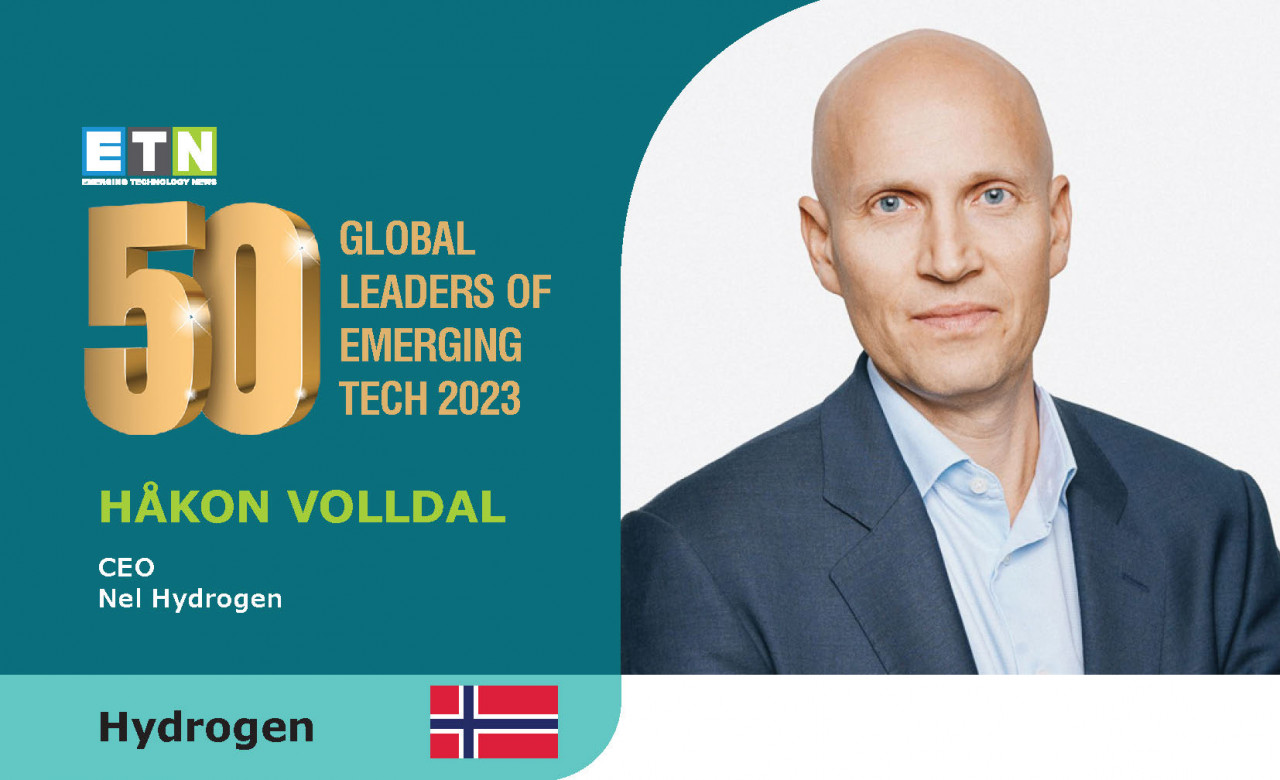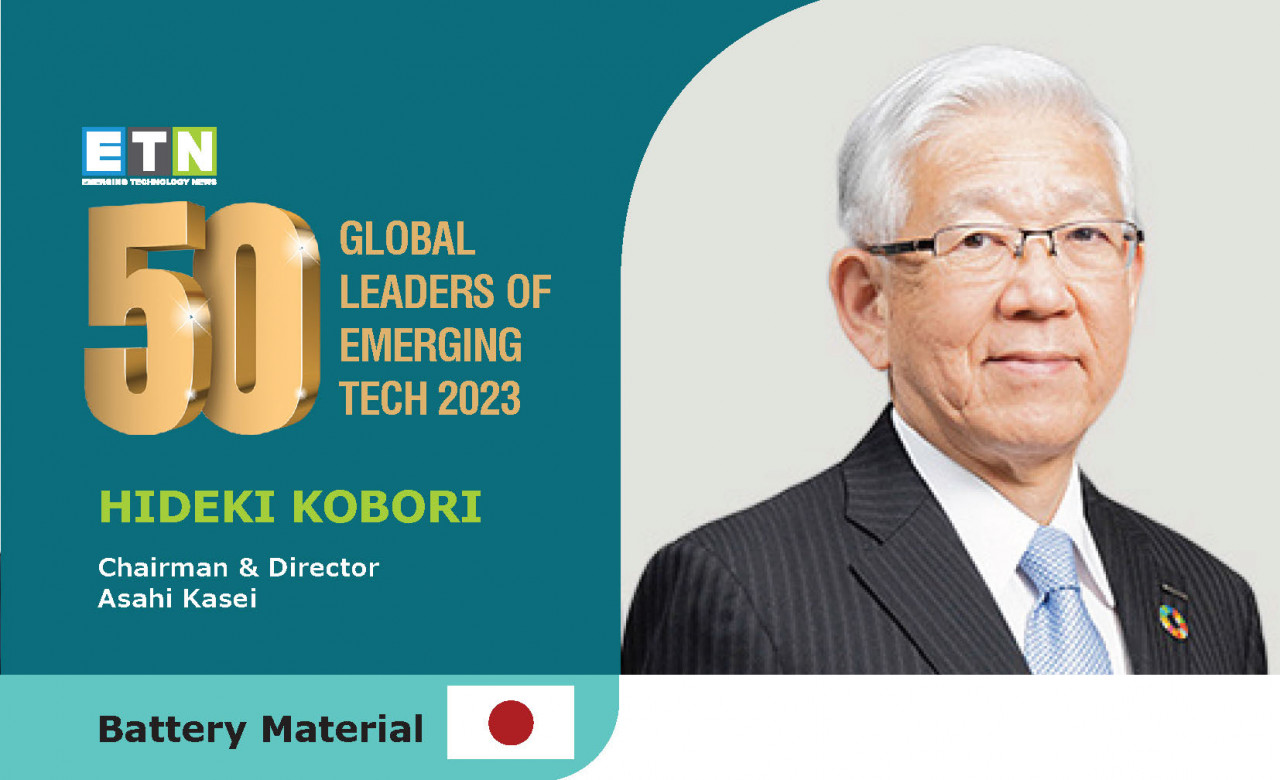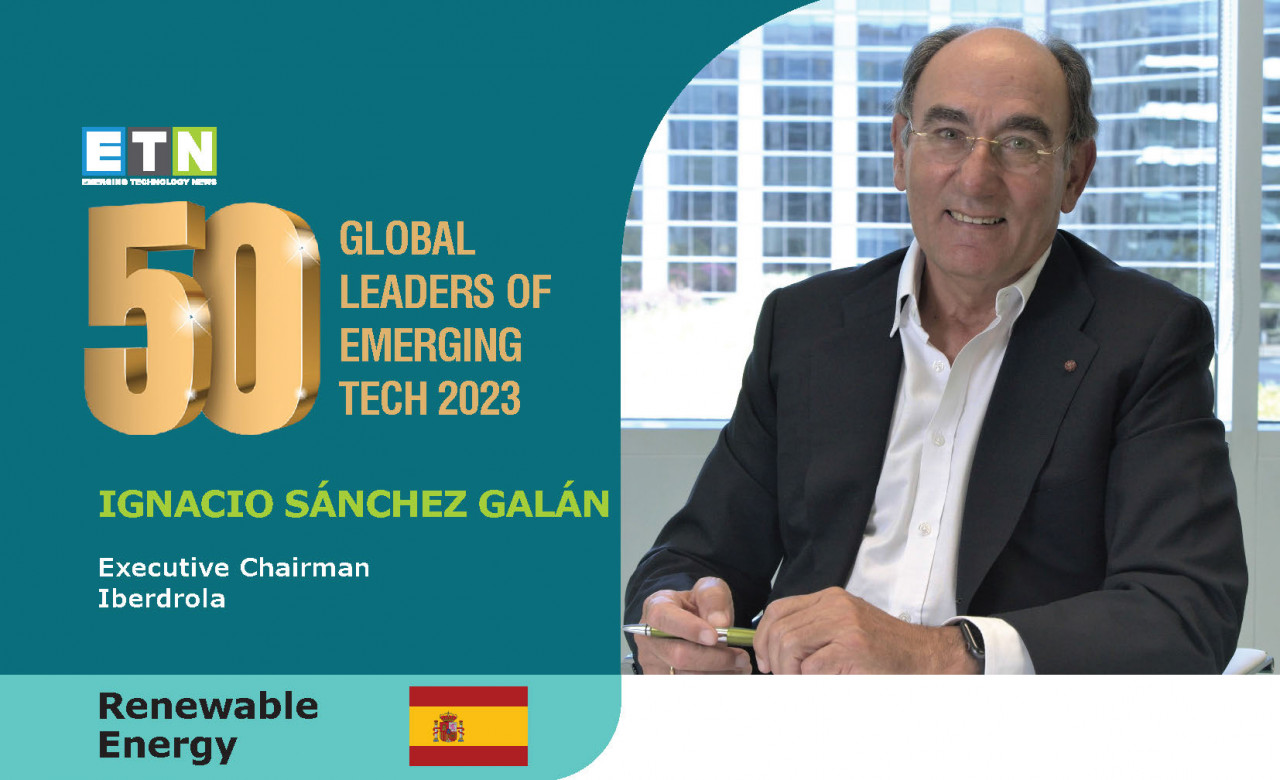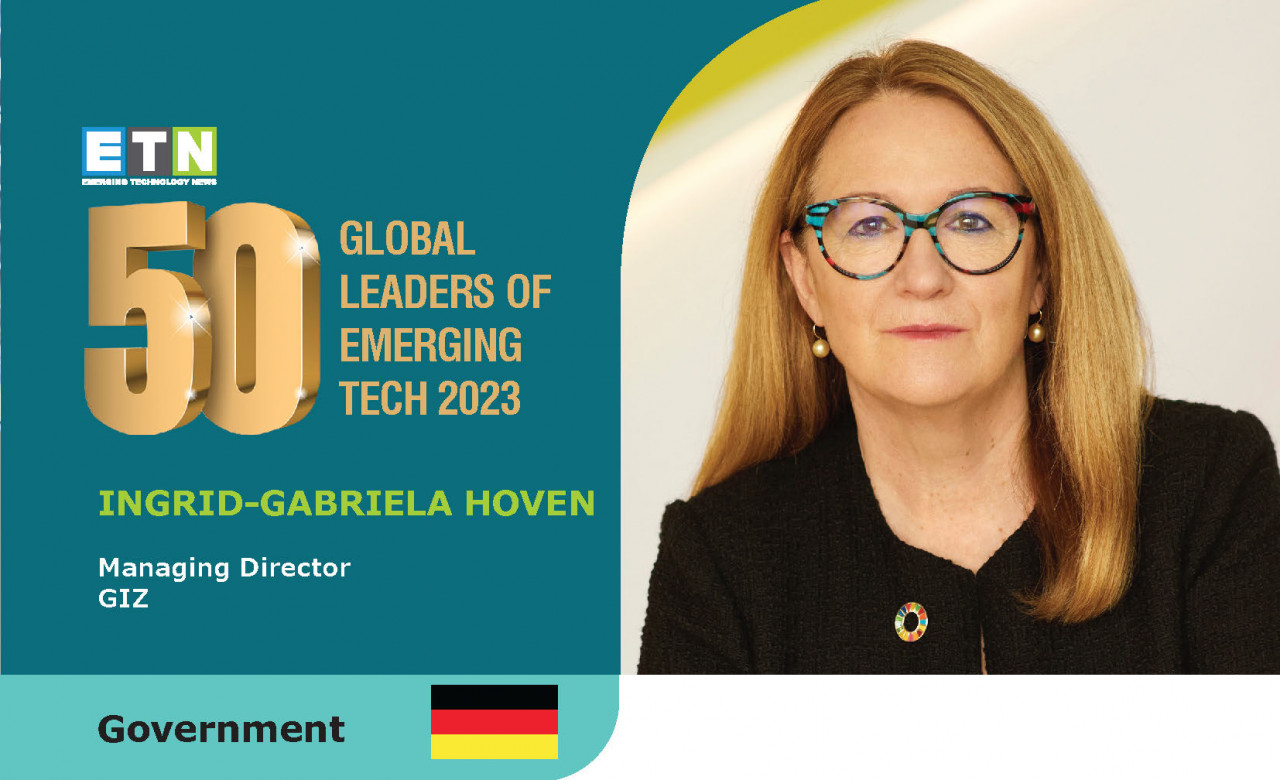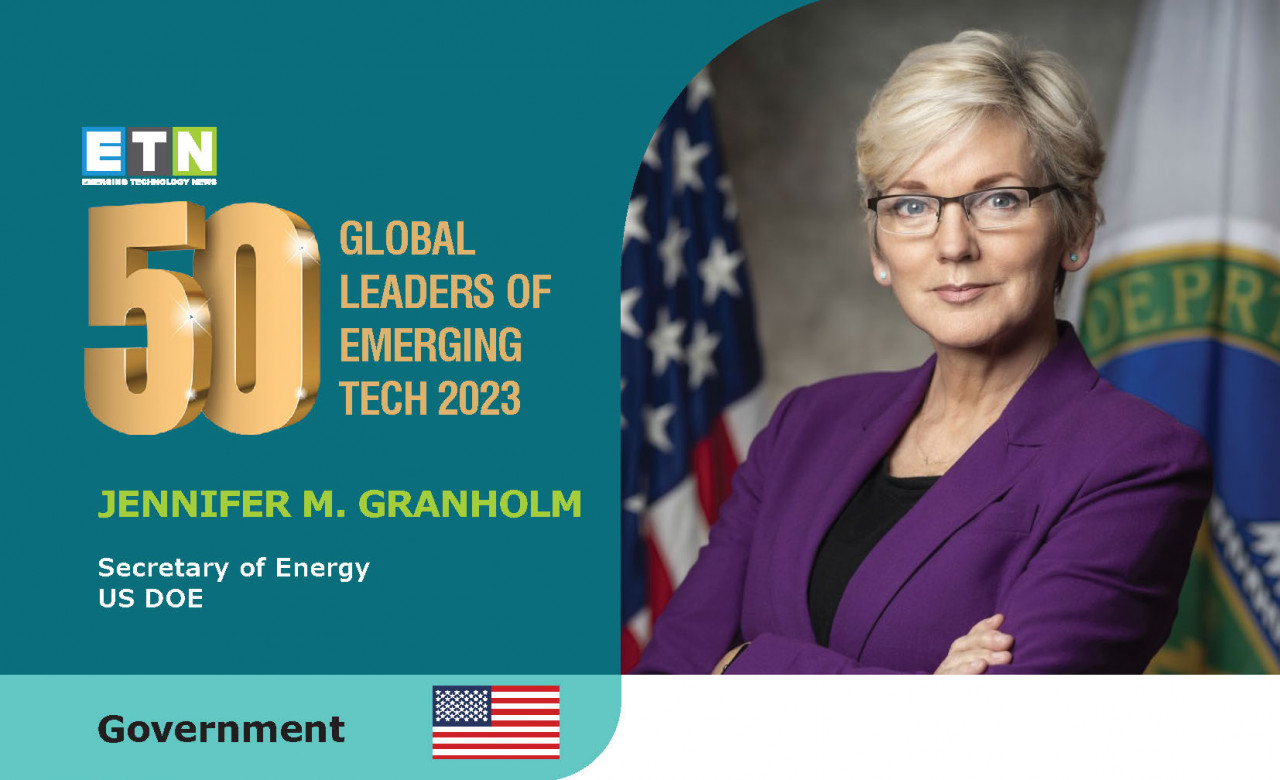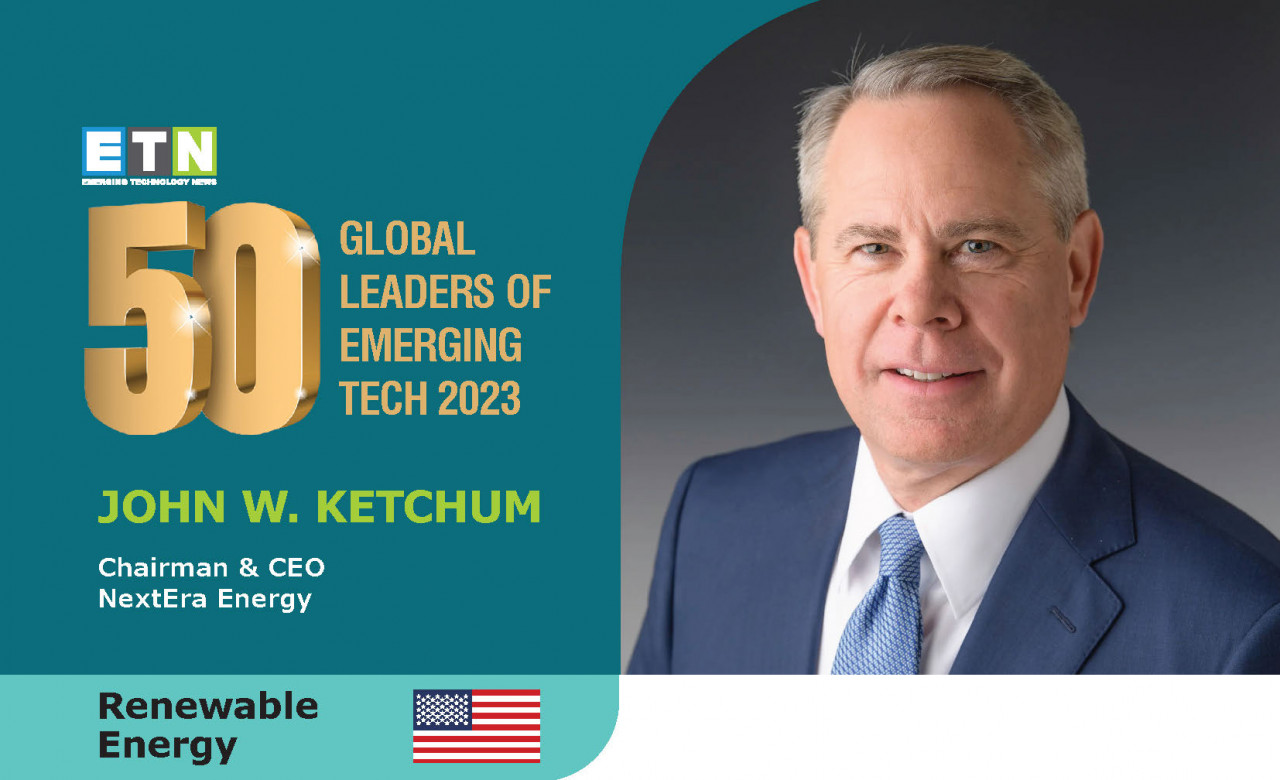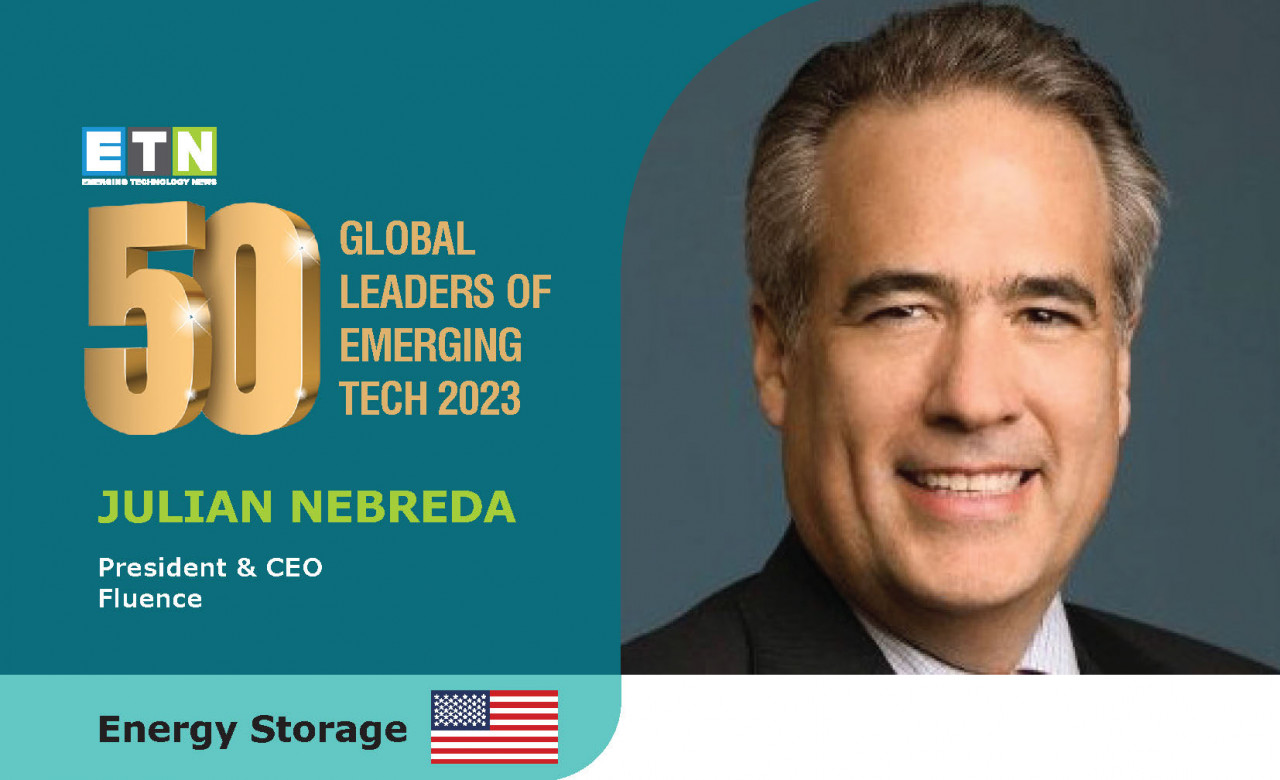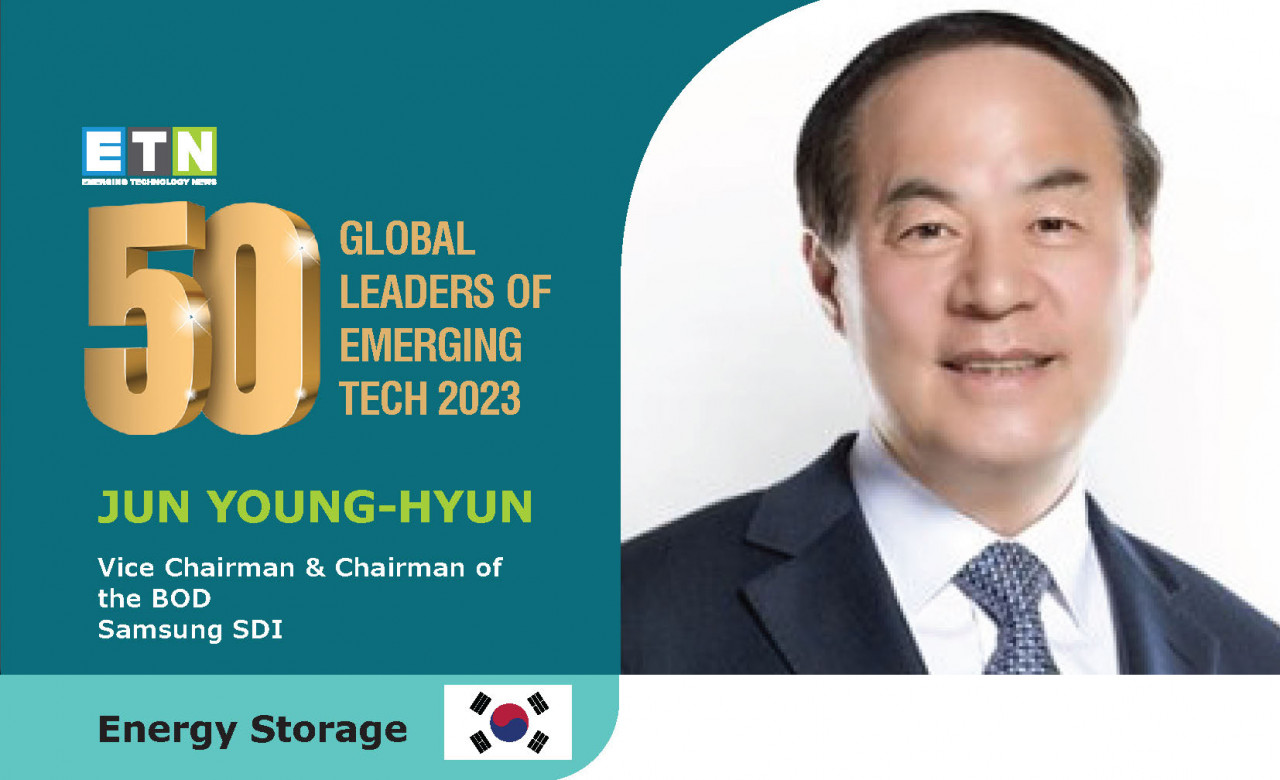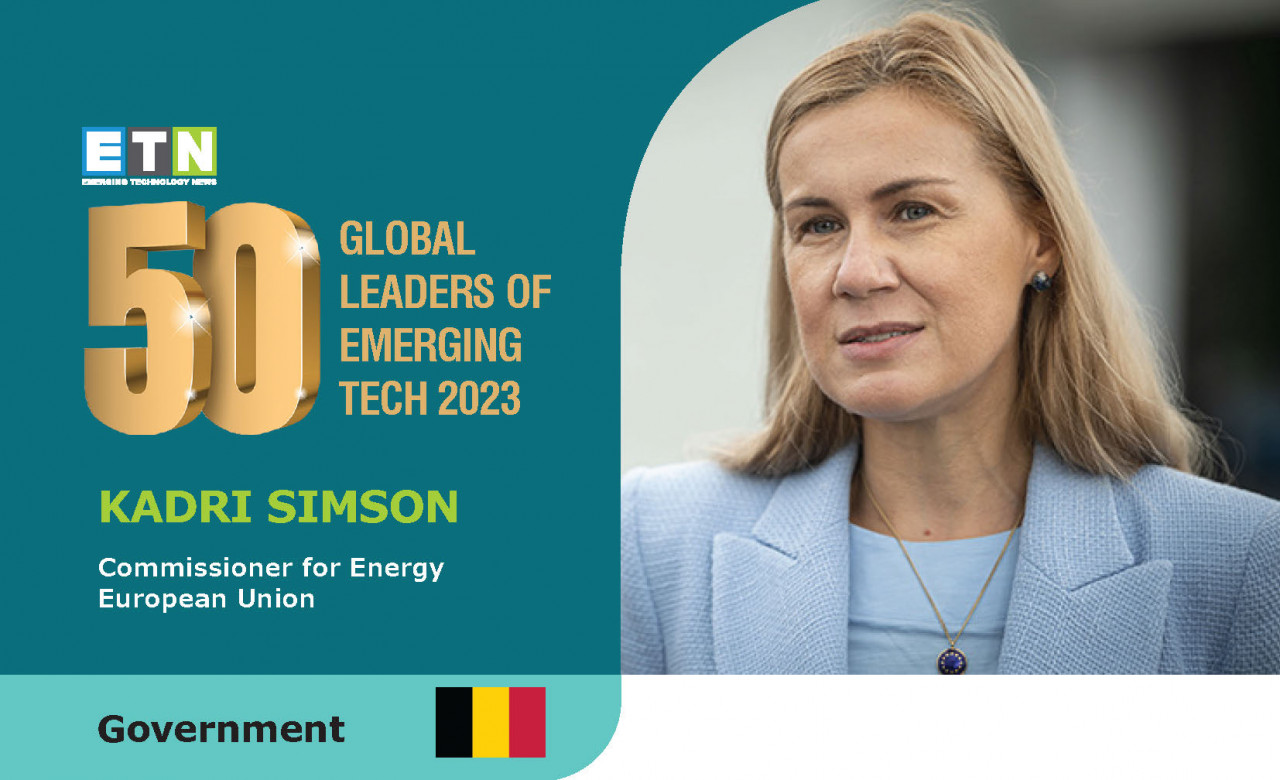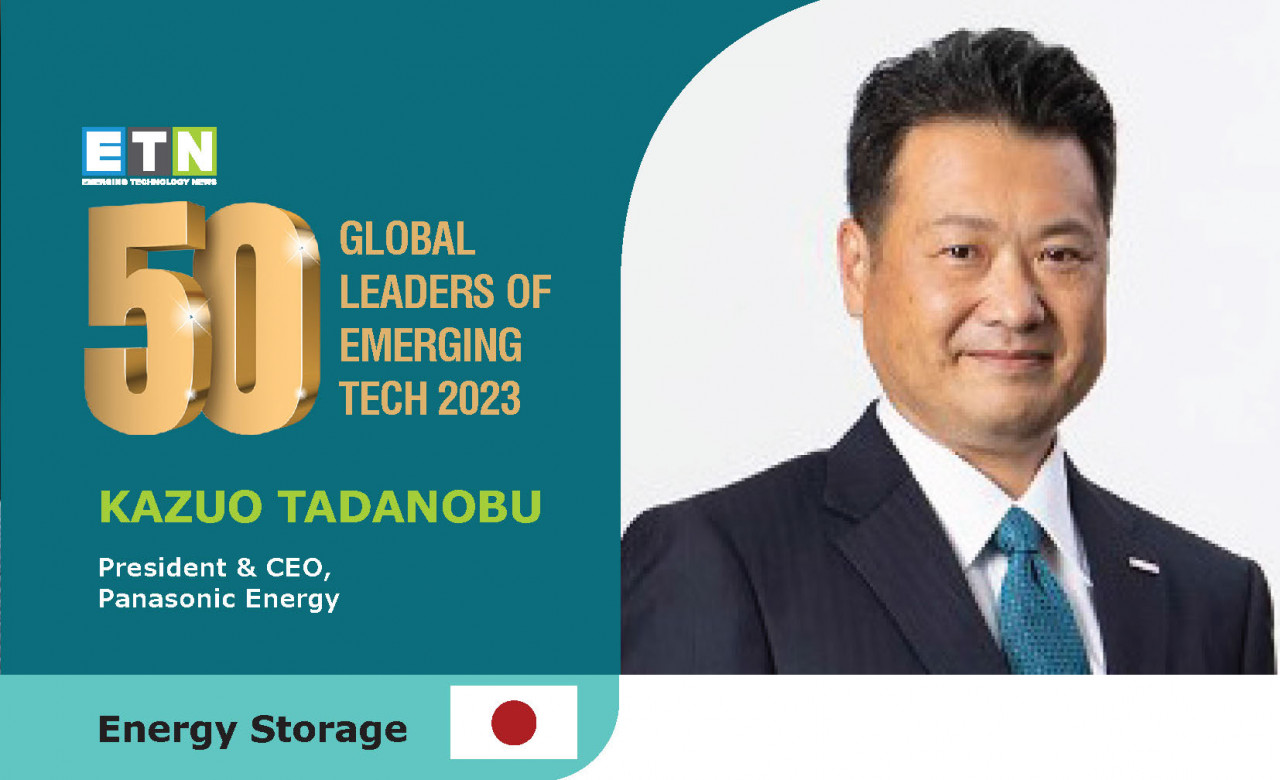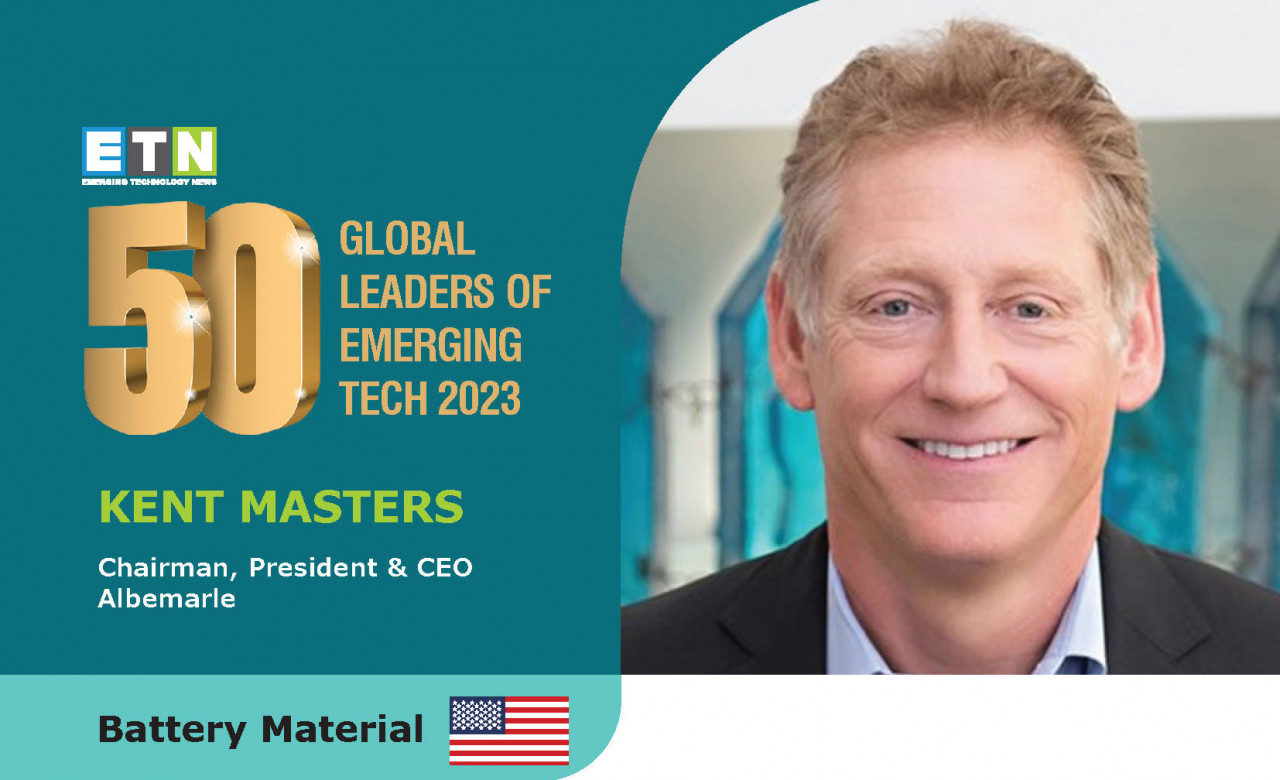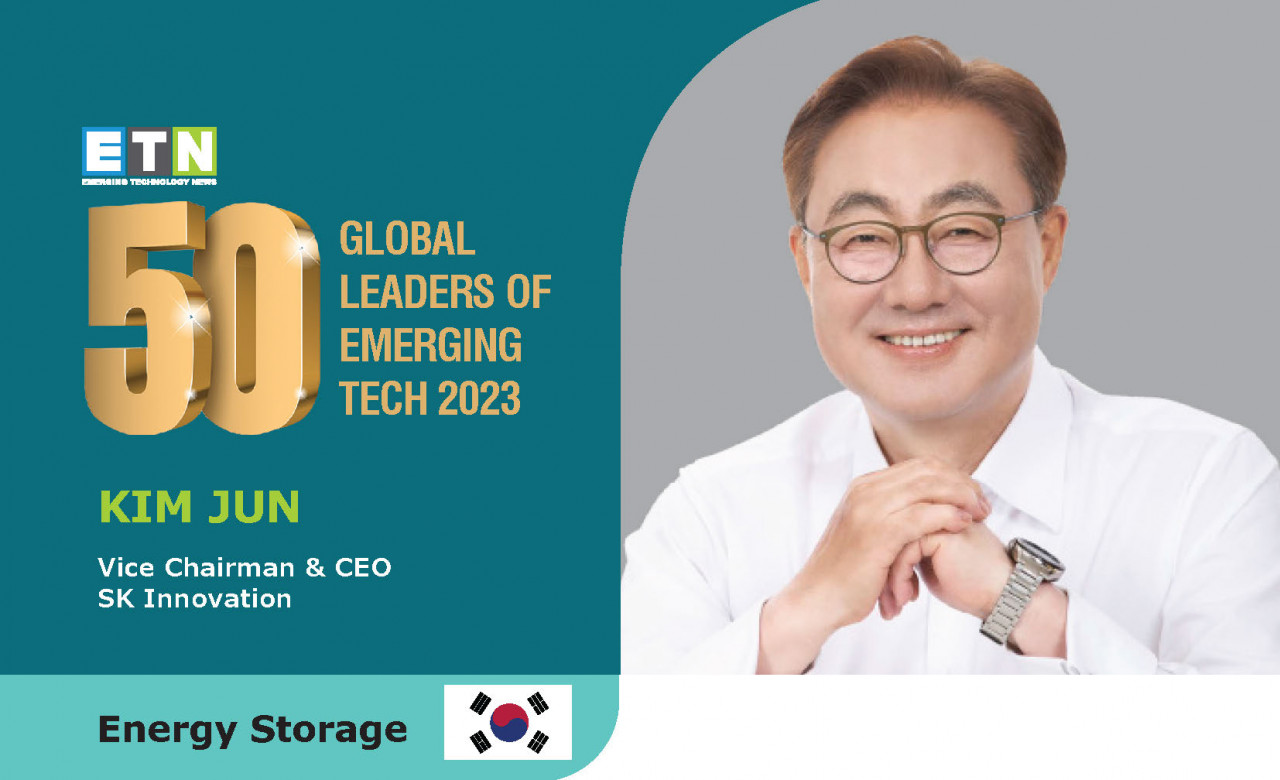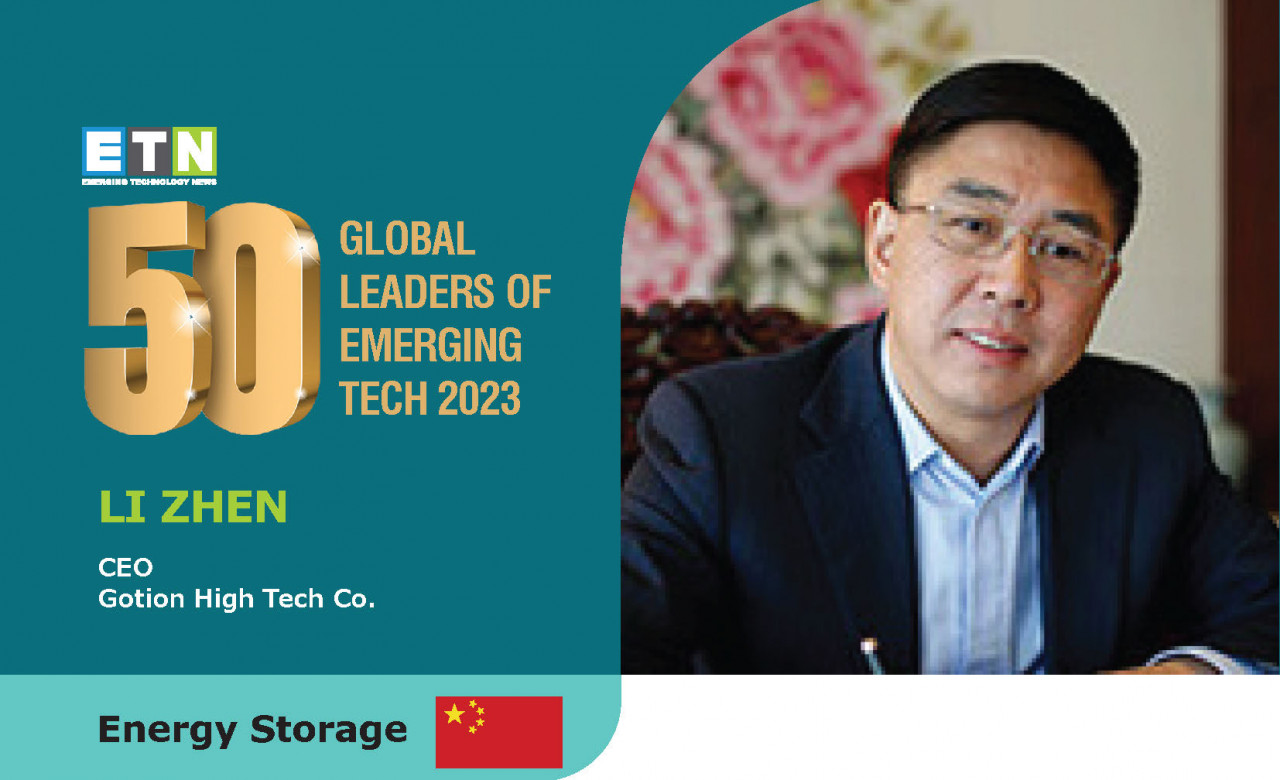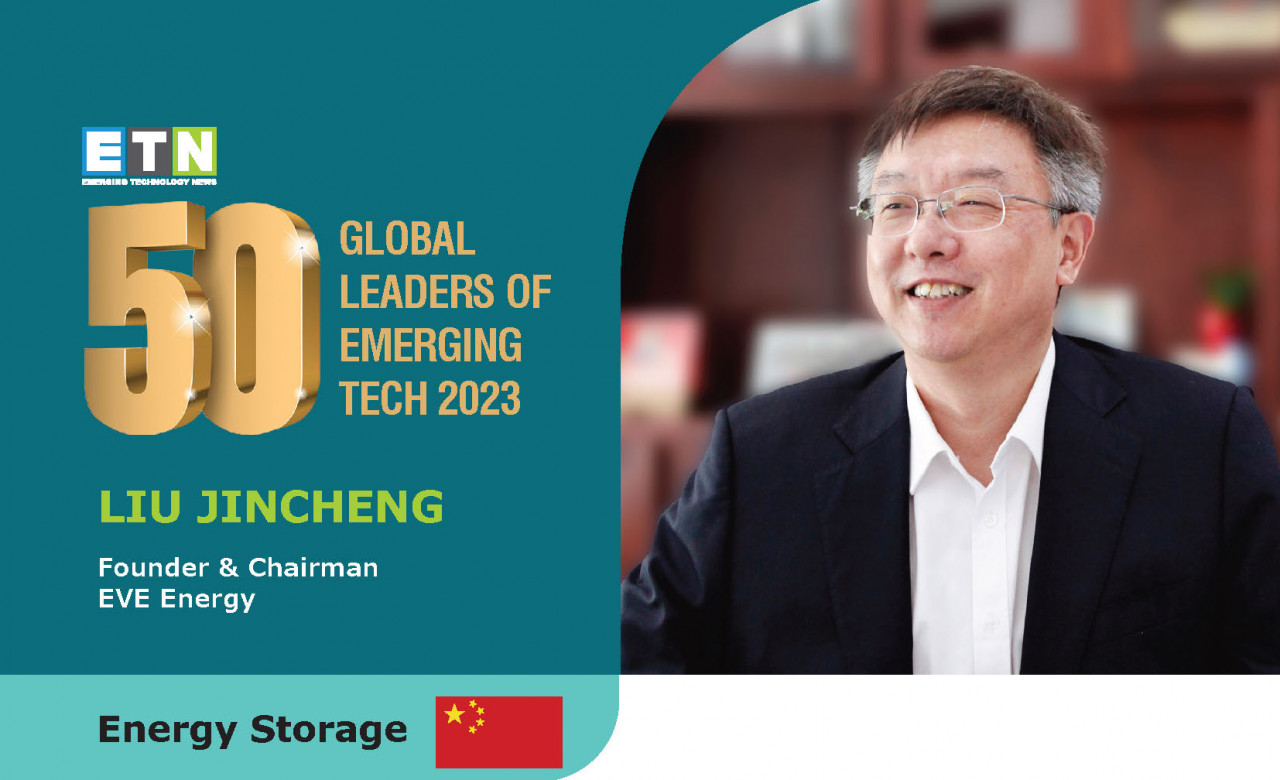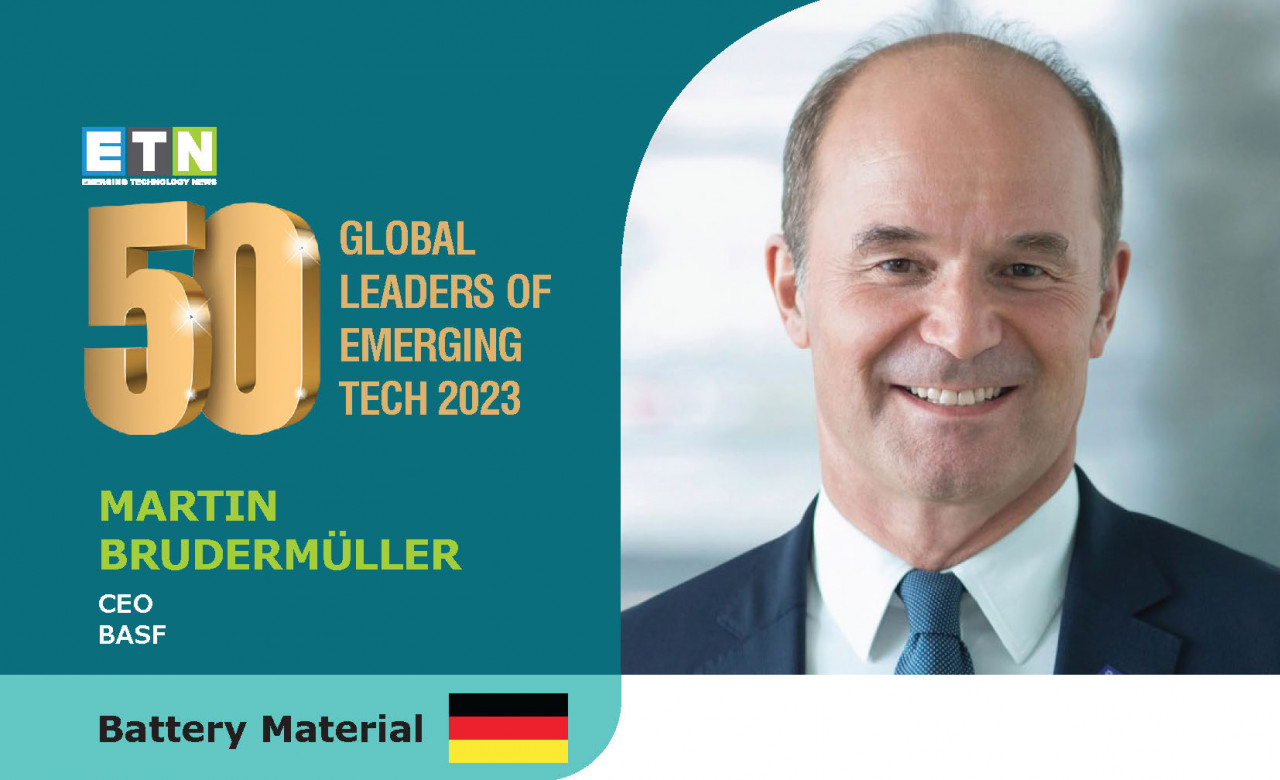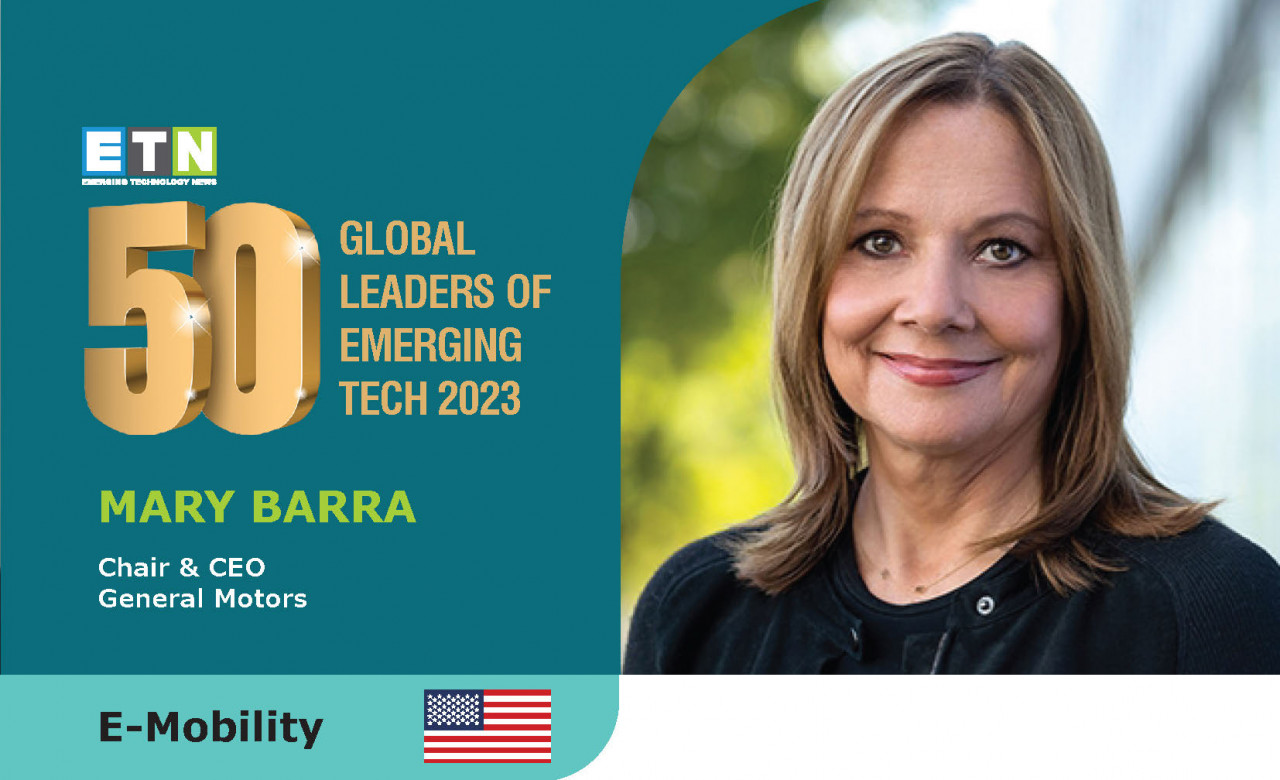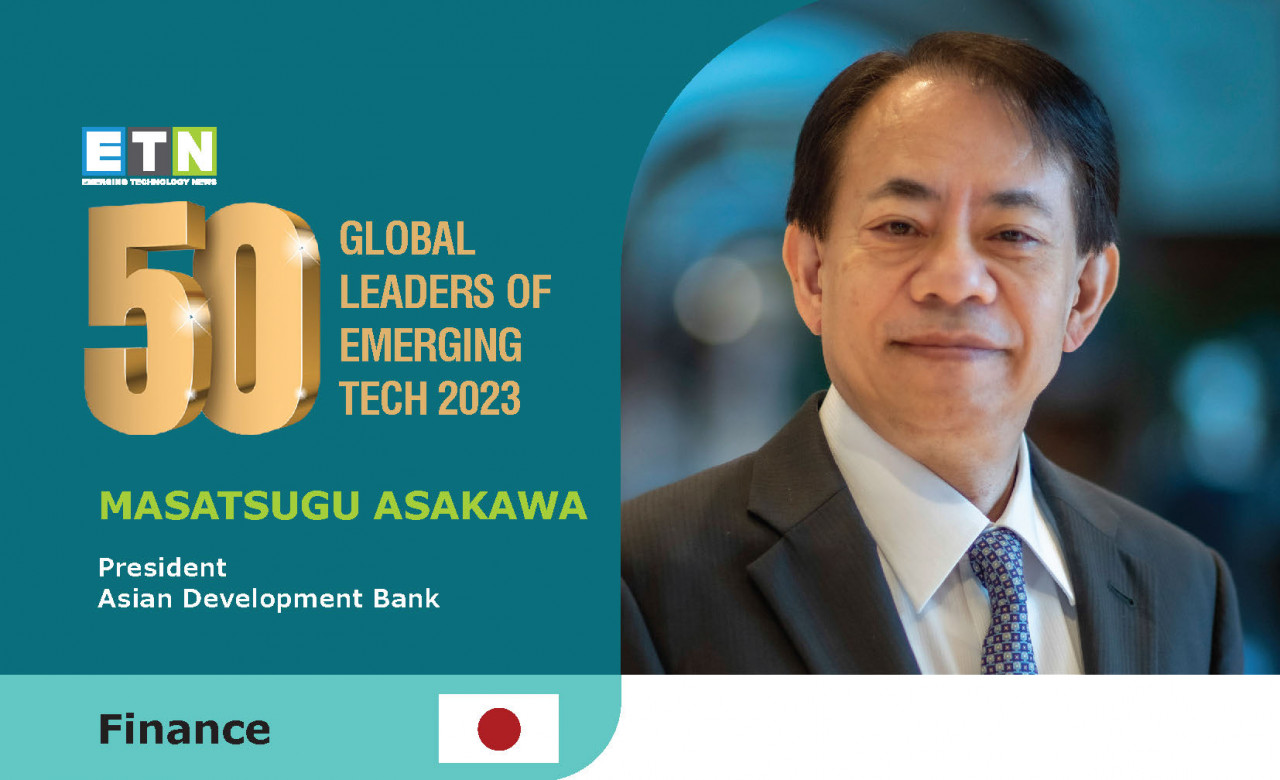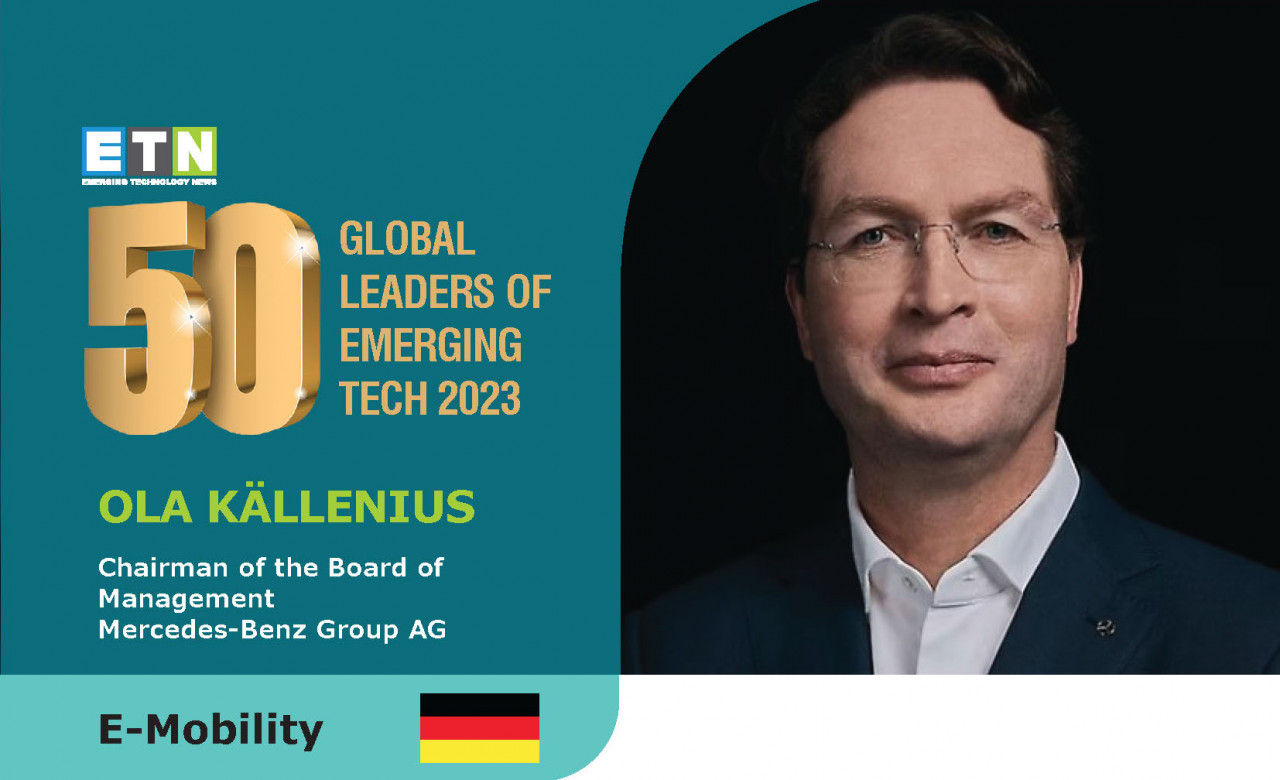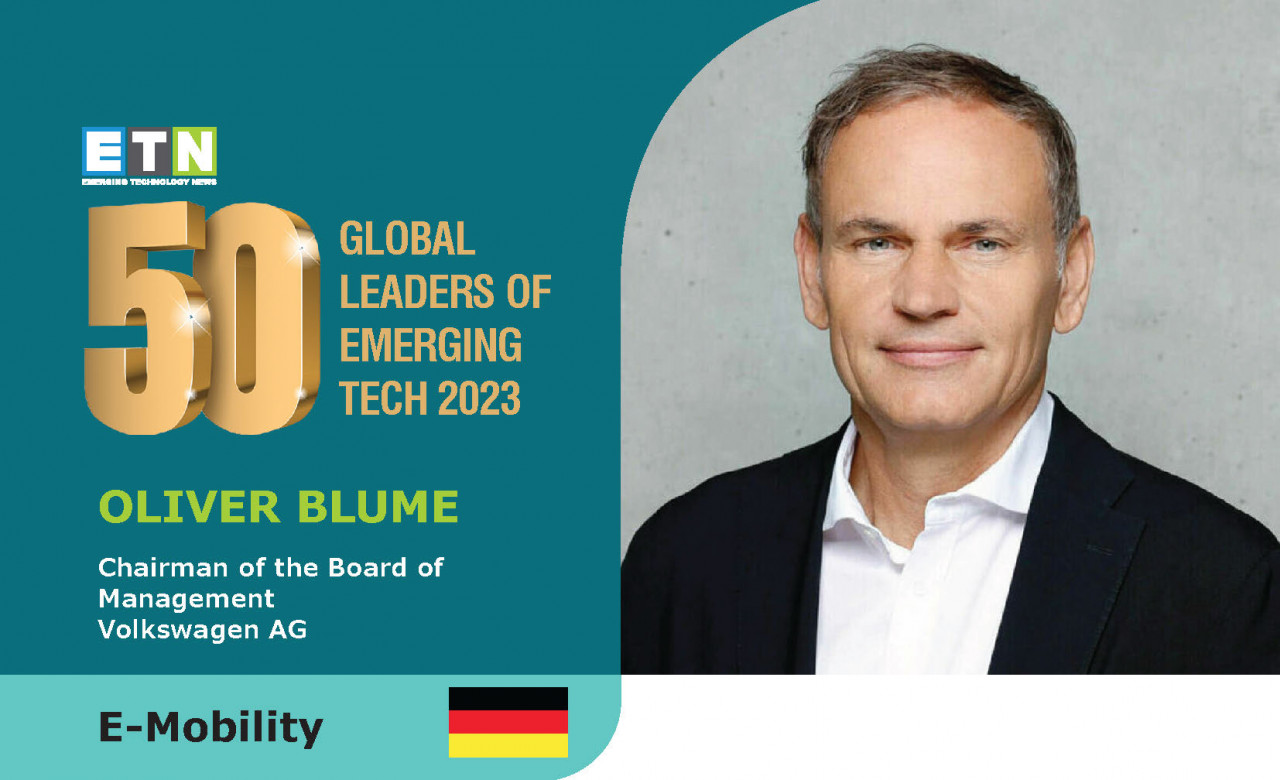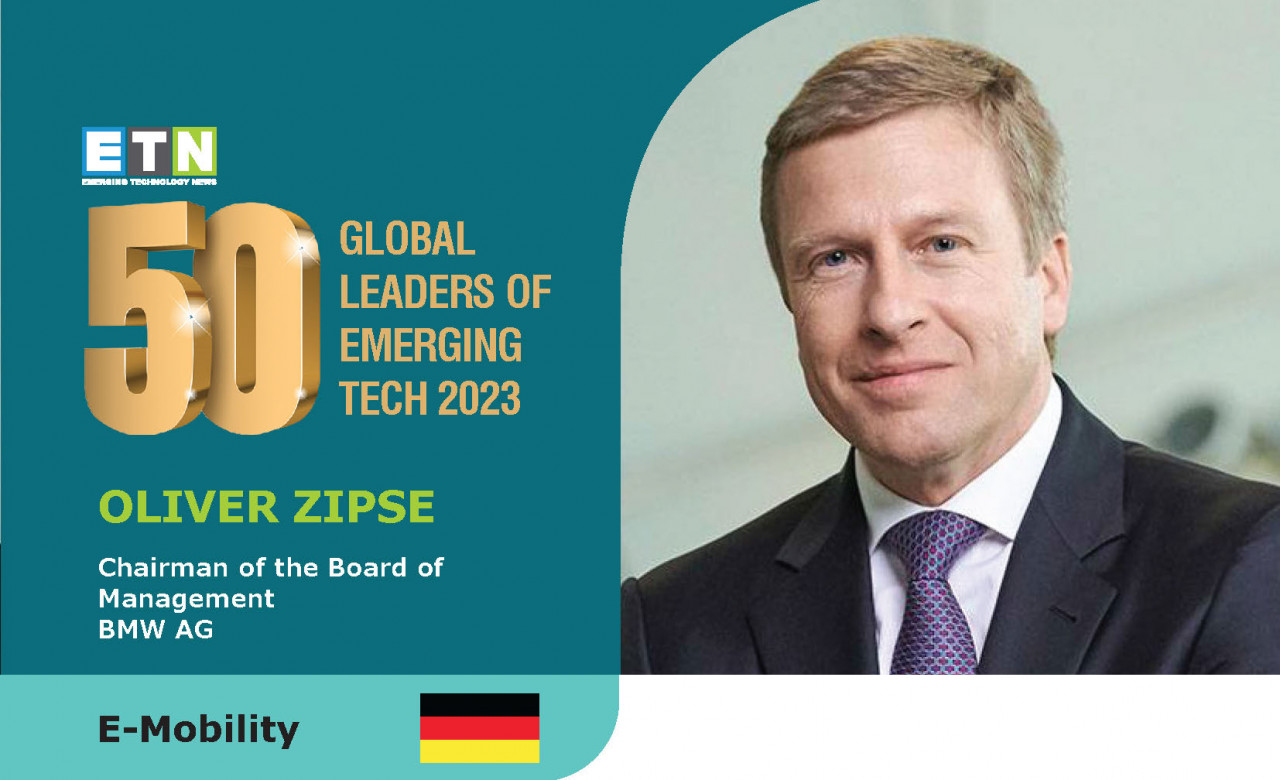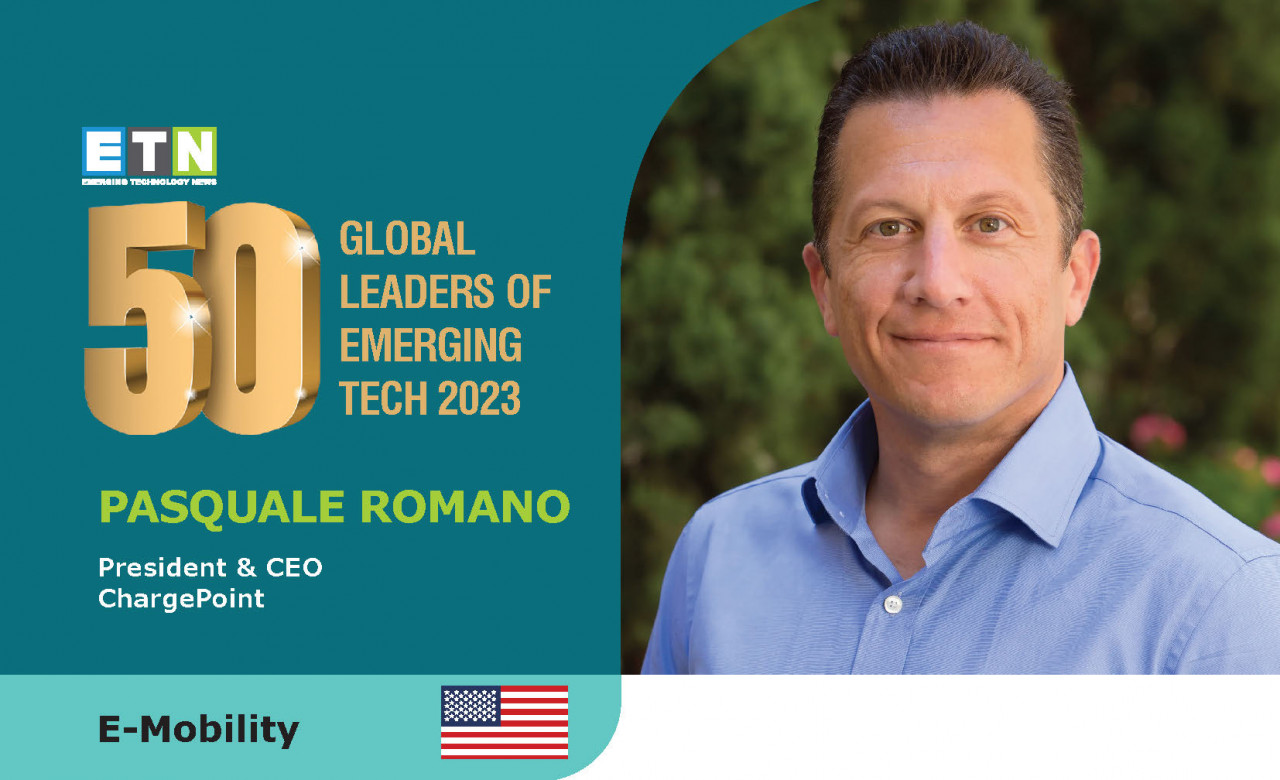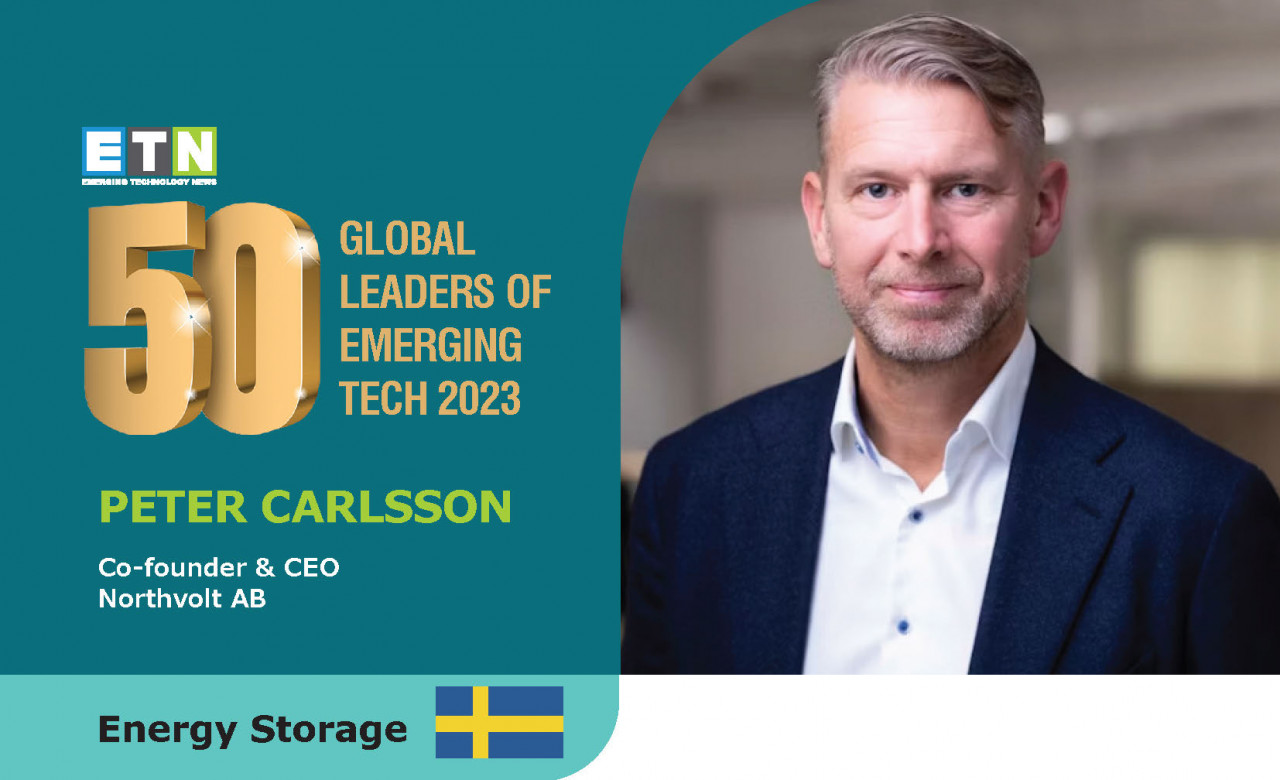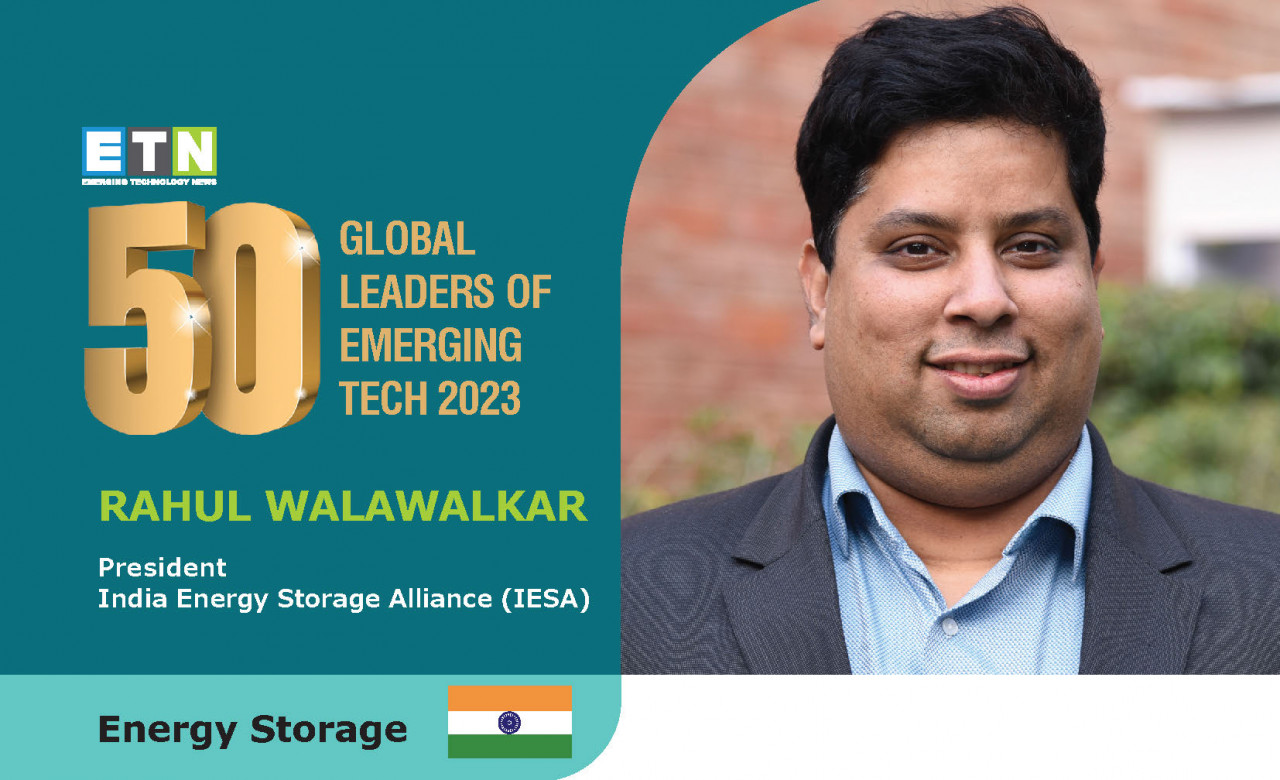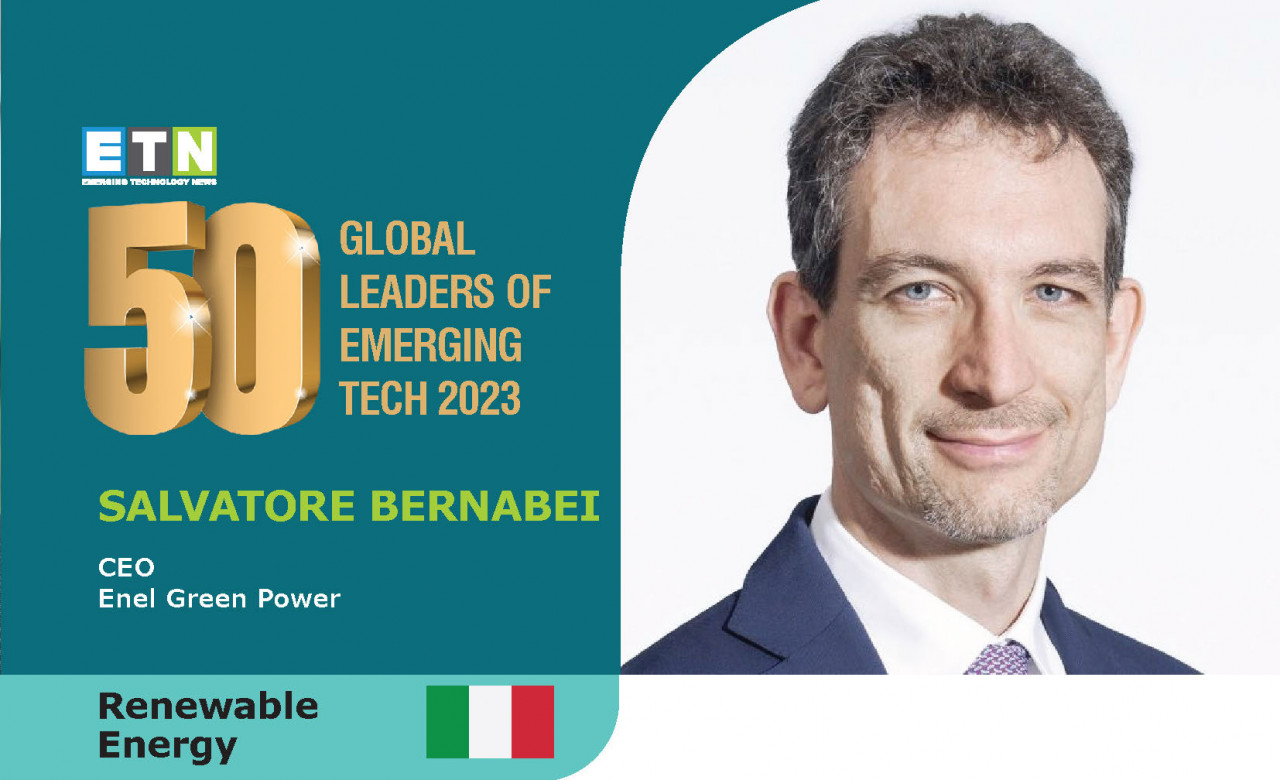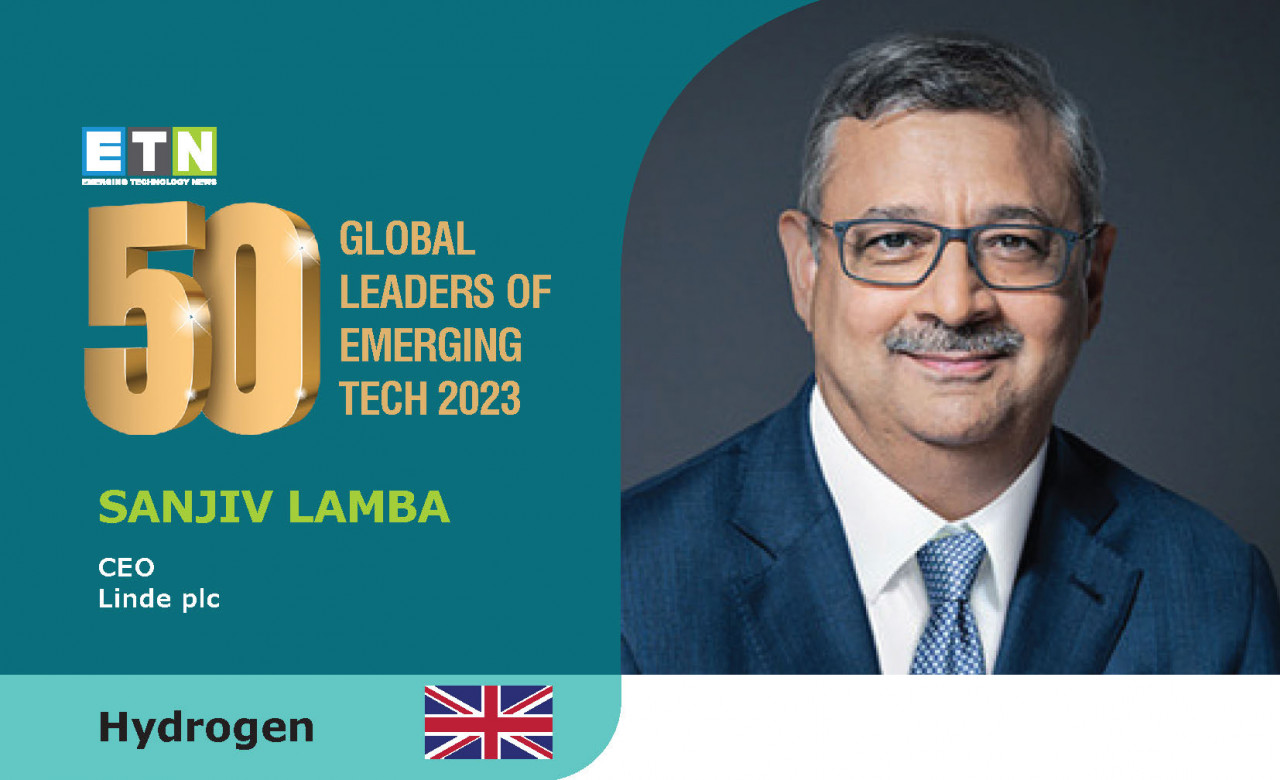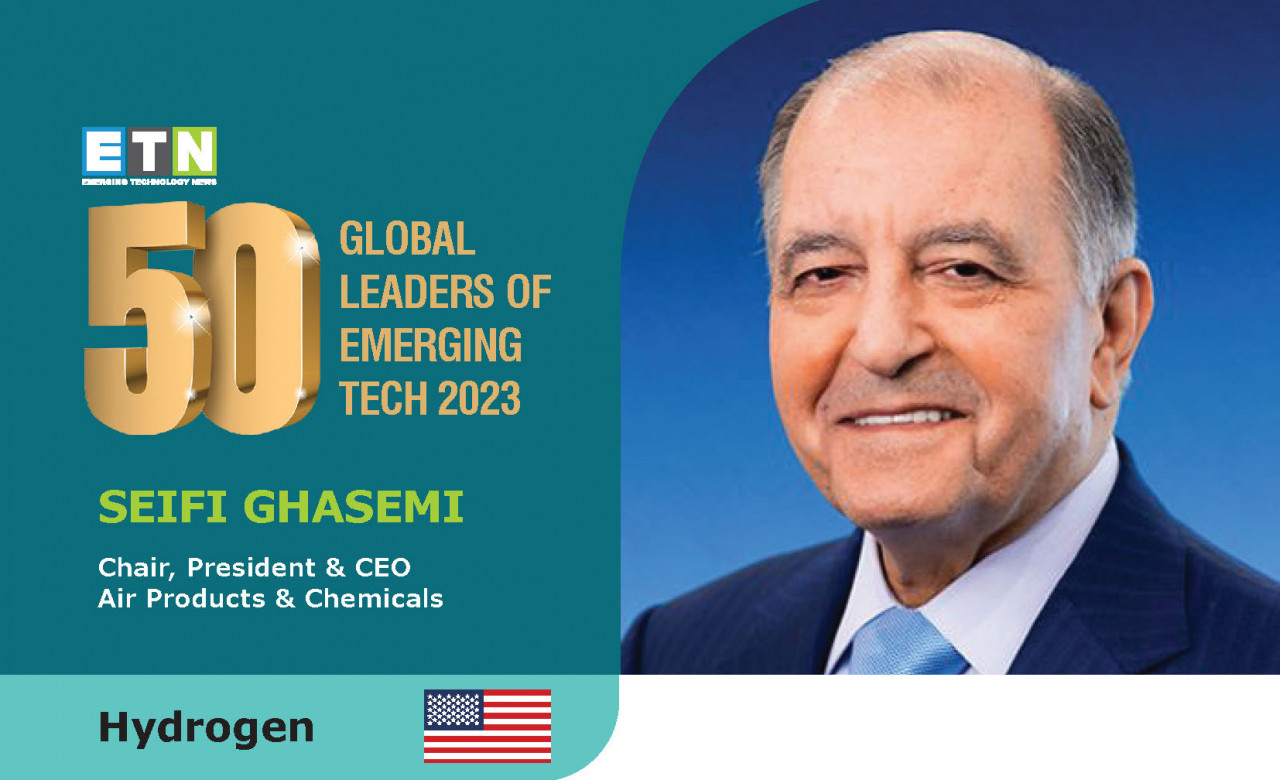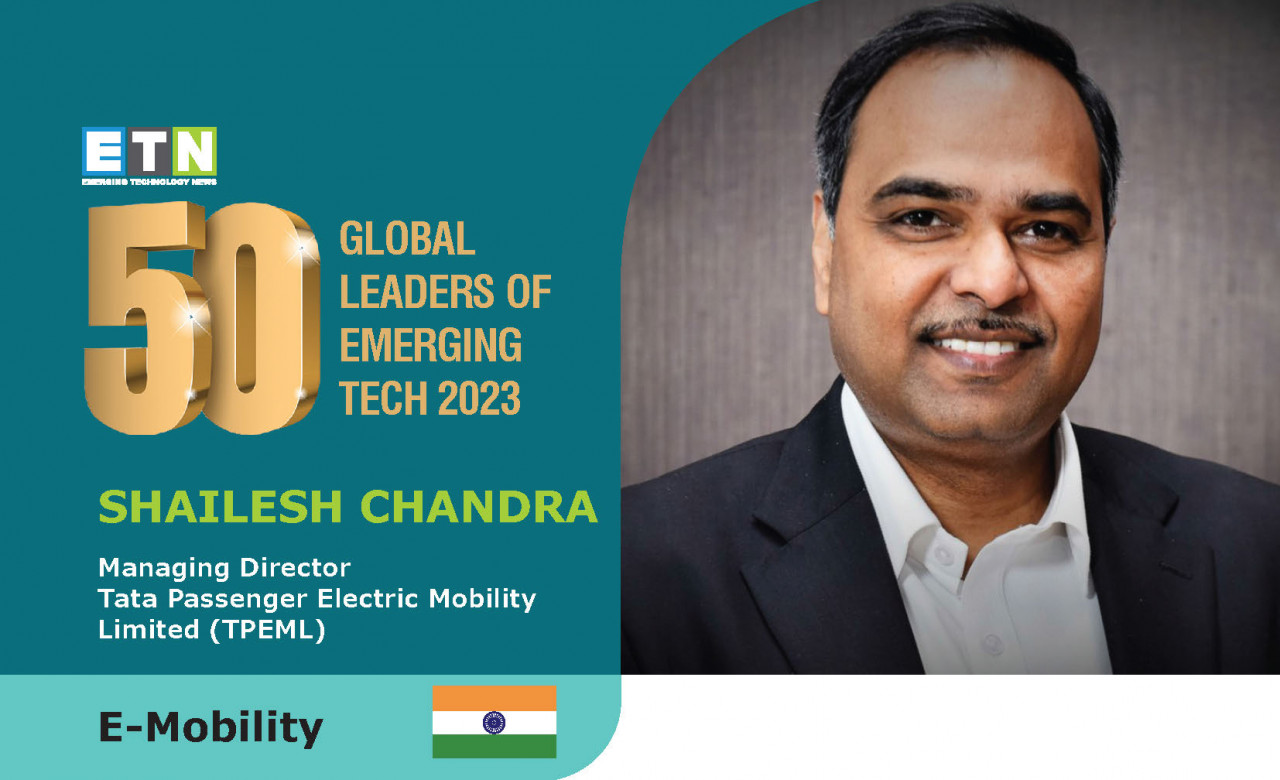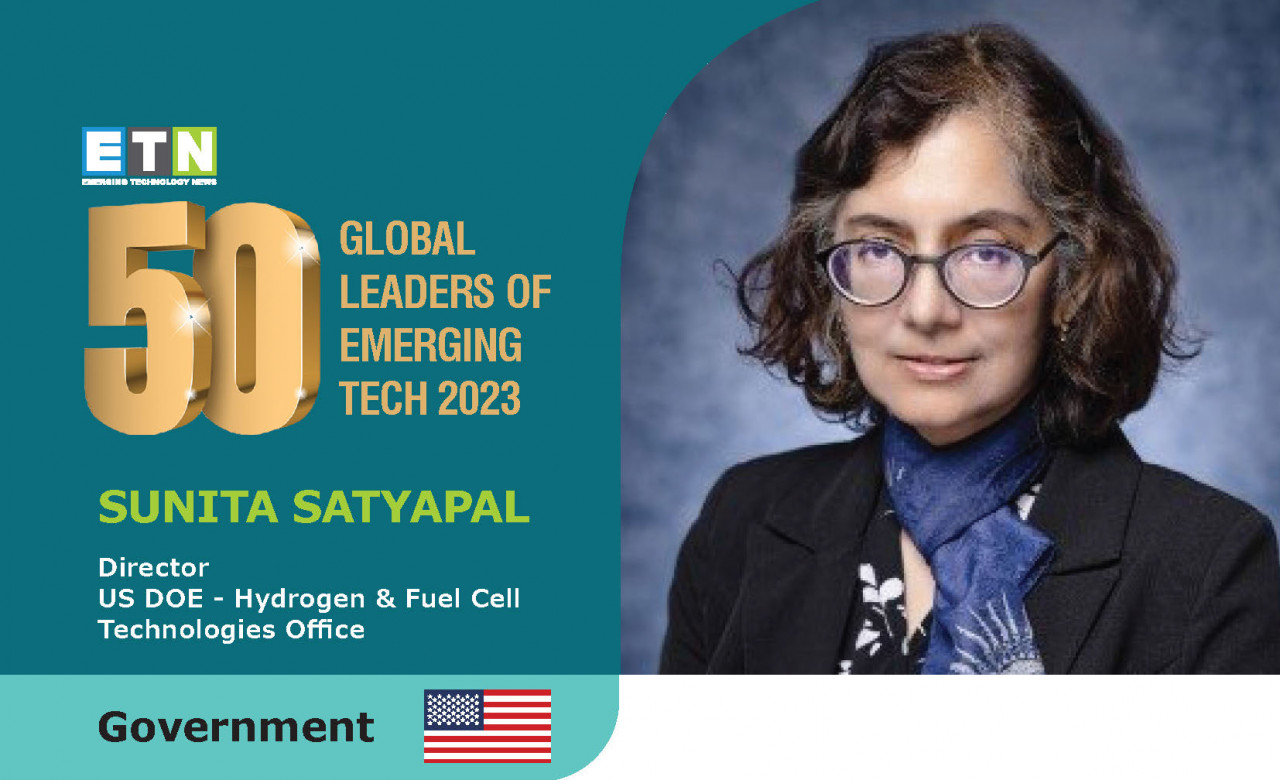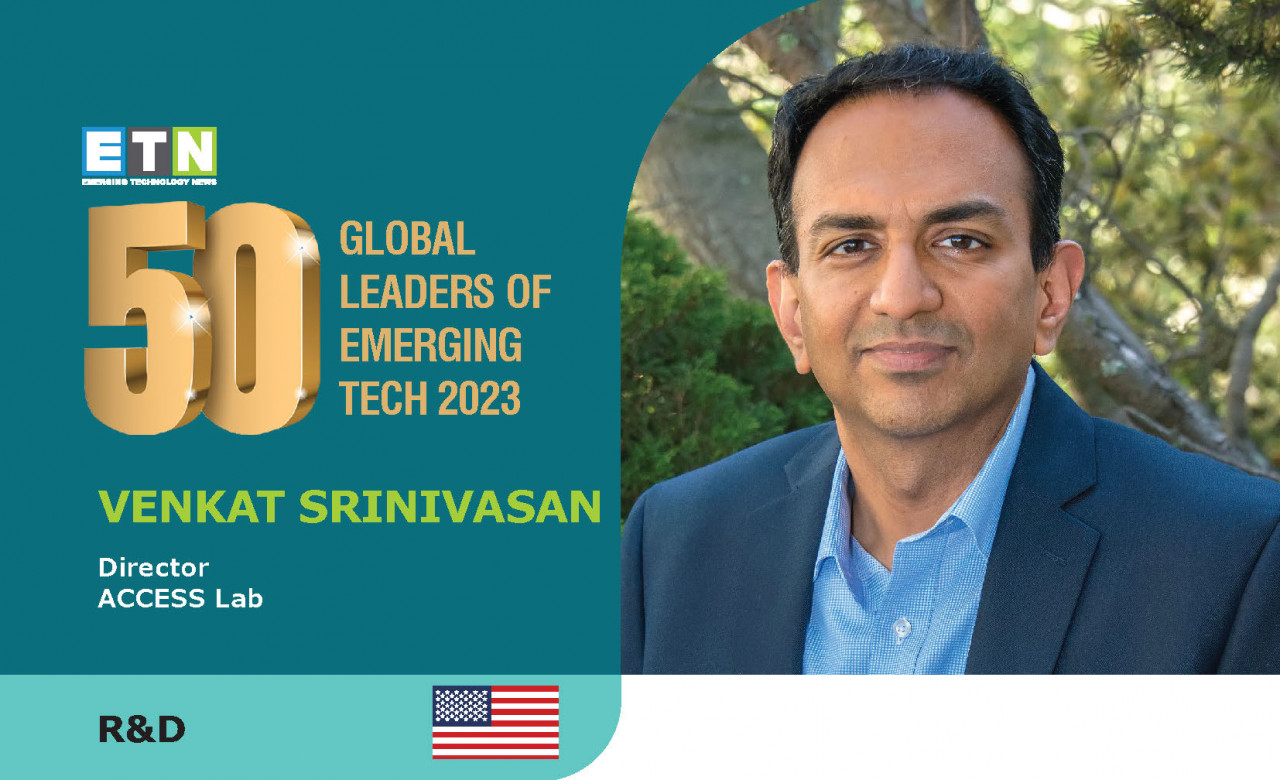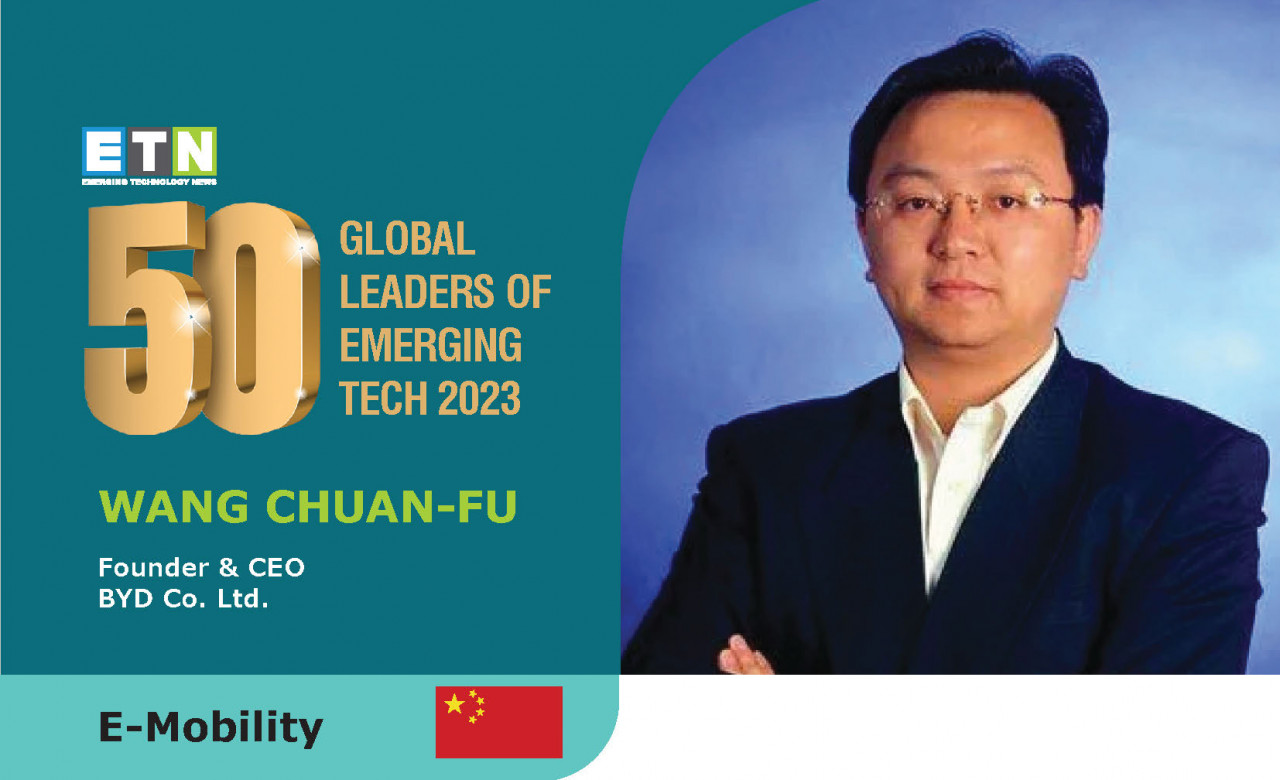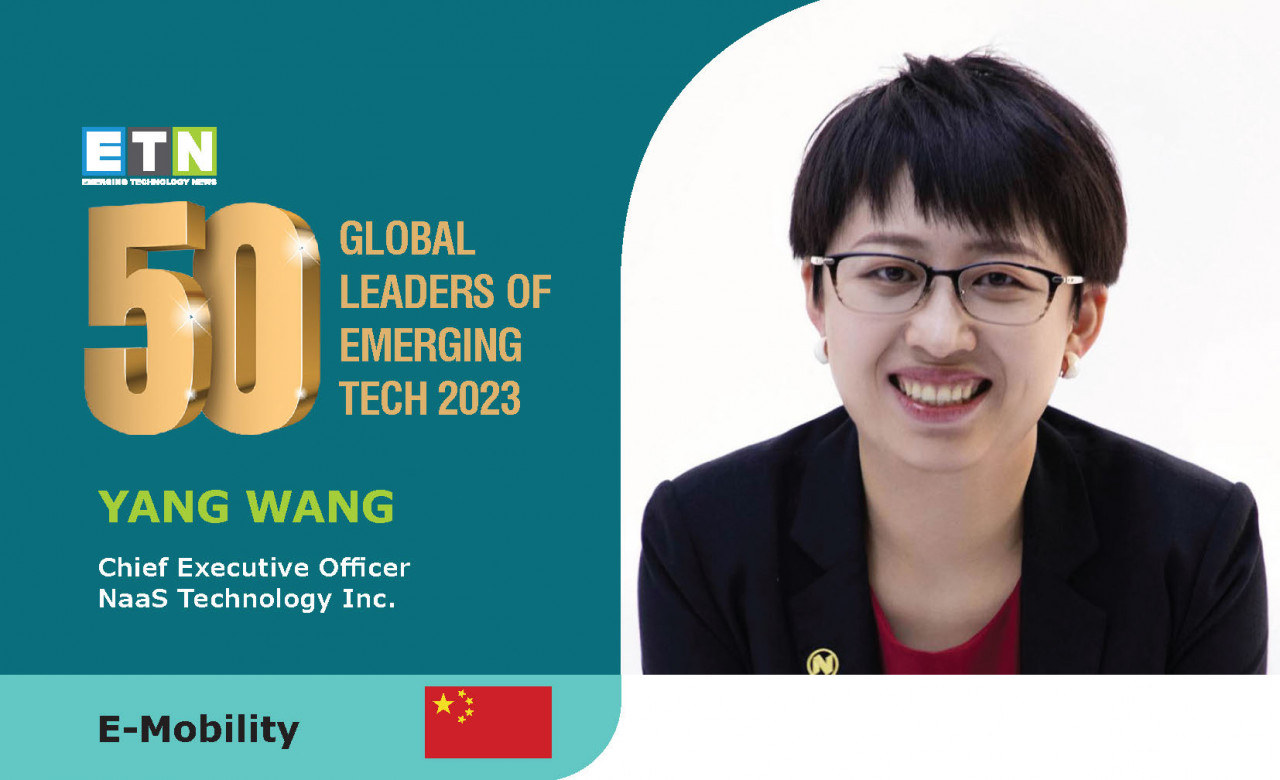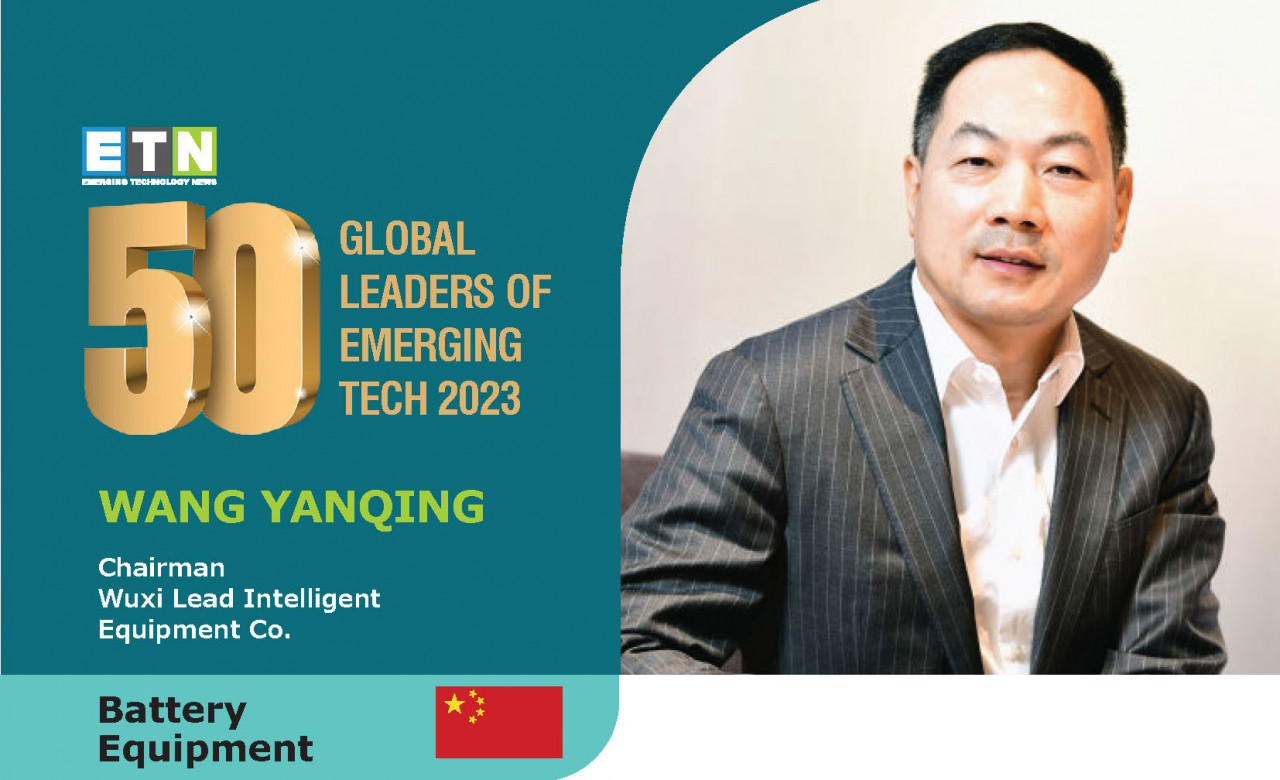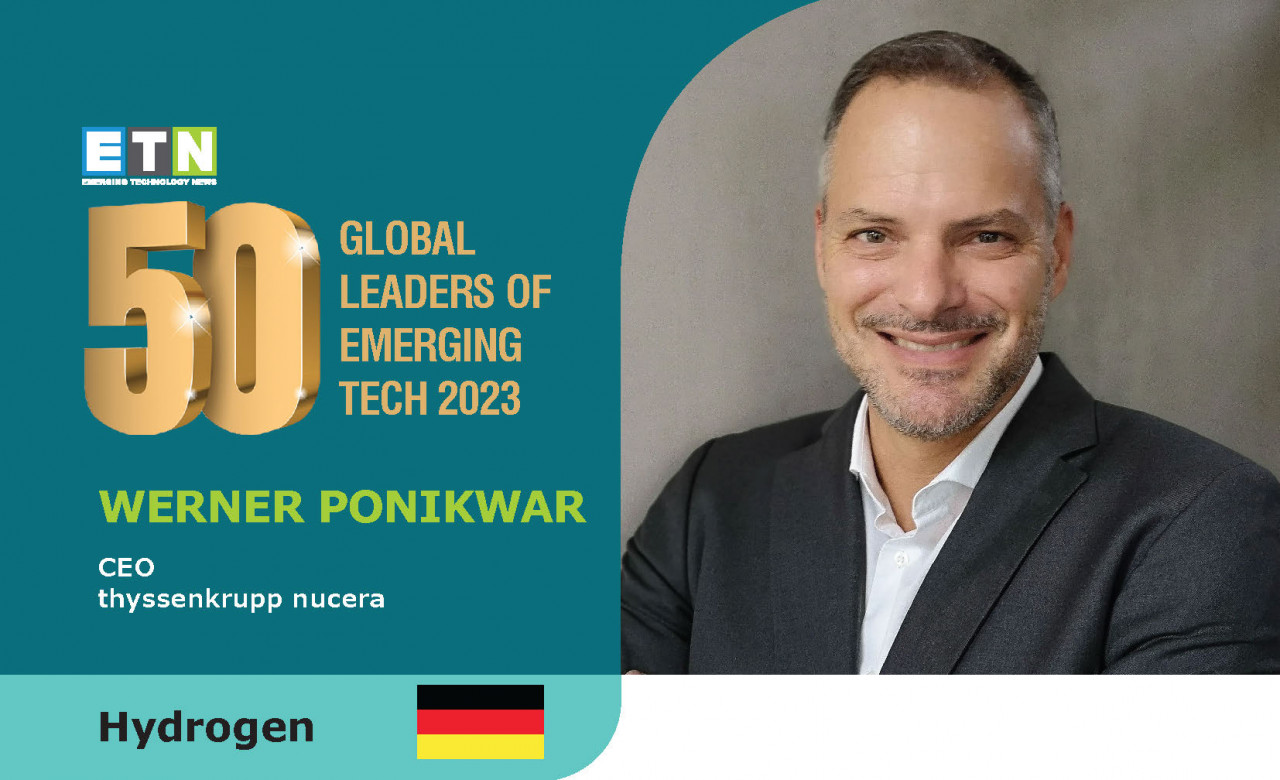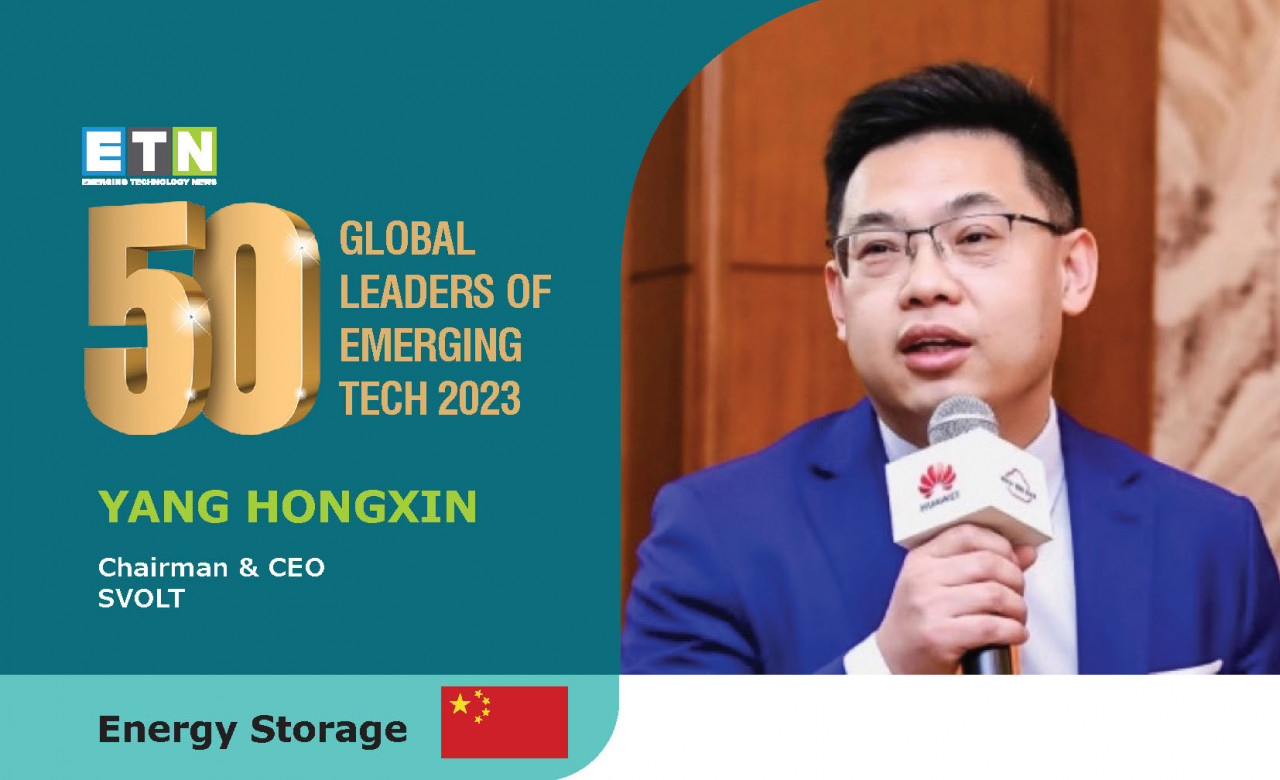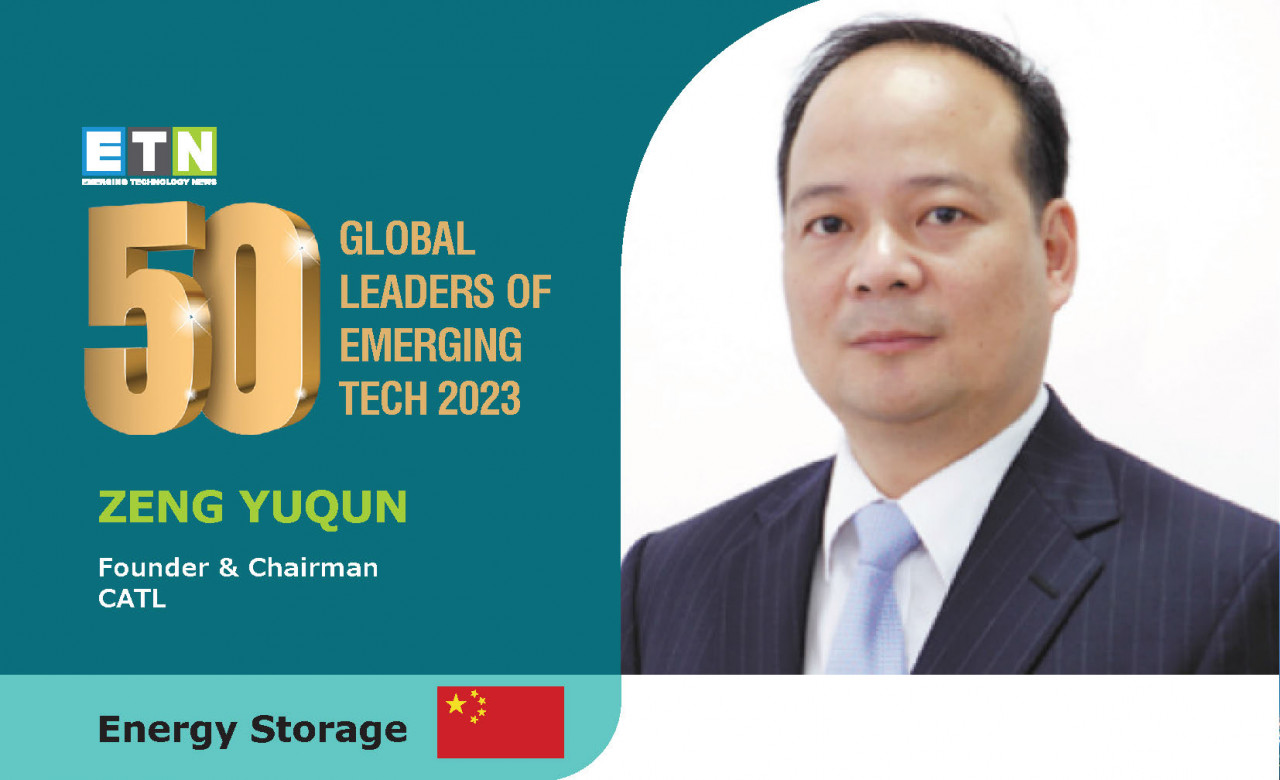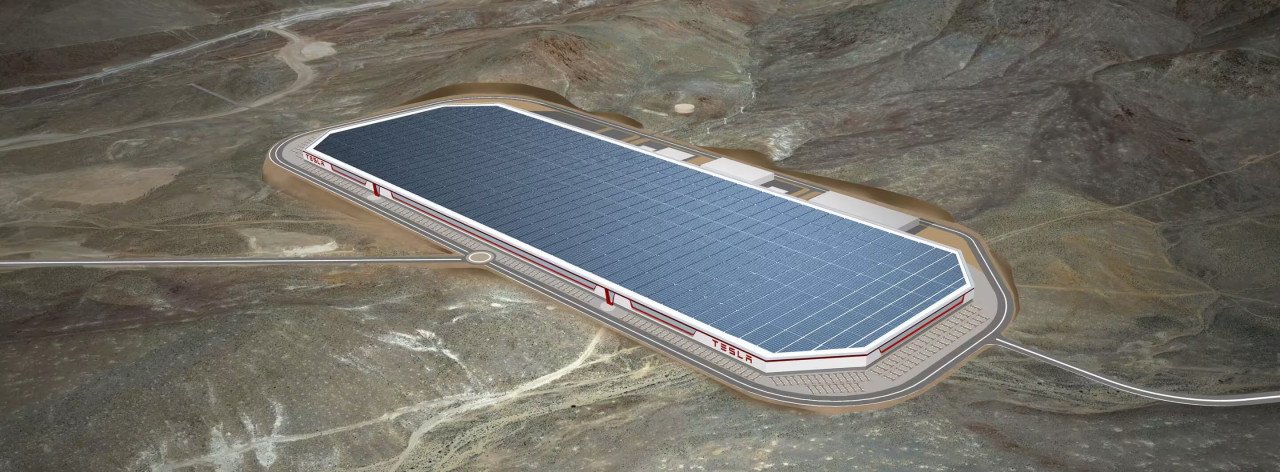ETN 50 Global Leaders of Emerging Tech 2023
Here are the brief profiles of the 50 leaders and their companies, whose contributions and initiatives in the field of energy storage have been defining the progress of the sector. The selected names have been compiled through online polls conducted through our media channels, and with inputs from our industry readers, experts and analysts.
We humbly recognize the foresight and contribution of all luminaries in the field of energy storage and renewable energy. Though our list is definitive of a number, it is in no way exclusive in the acknowledgement of all the entrepreneurs and path-setters of the sector. We will continue to cover people, new tech, and companies that further the cause of green energy.Ajay Banga began his term as President of the World Bank on June 2, 2023, and in the few months since, has established himself as a leader in the clean energy finance space. Across forums such as the G20 and in other arenas, the former CEO of Mastercard has been urging countries towards the energy transition and taking active steps to facilitate the shift. Just last month, for example, he announced that the World Bank would fund 1,000 solar mini grids in Nigeria.
Banga has pointed out that renewable energy today is cheaper than fossil fuel per unit of energy, giving thanks to progress in generation and storage technology over the last 3-4 years. His experience in finance has allowed him to publicly point out that a global energy transition requires trillions of dollars, a massive amount out of the immediate reach of the World Bank, but not necessarily the world. Citing this, Banga has suggested roping in the private sector to aid energy transitions, and steered the World Bank into bringing together investors, governments and national and multilateral authorities to help stakeholders better understand risks and other factors involved in projects.
There's a lot for the World Bank to work on (in climate change and healthcare), which can keep us occupied for the years to come.
Ajay Banga
Banga has also named a panel of 15 global CEOs "to develop, test, implement and ultimately scale financing structures" for cleantech investments, and coordinated with the IMF to issue a joint statement pledging they will work together to aid the shift to cleaner energy.
Accolades
- Ellis Island Medal of Honor (2019)
- Business Council for International Understanding's Global Leadership Award (2019)
- Padma Shri award by the President of India (2016)
- Foreign Policy Association Medal (2012)
Dr. Ajay Mathur is Director-General of the International Solar Alliance, a grouping of more than 120 countries founded in Paris and headquartered in Gurgaon, India, that promotes increased deployment of solar energy technologies.
Prior to joining ISA, Dr. Mathur was Director-General of The Energy and Resources Institute (TERI), where he spearheaded the move to accelerate action towards a low-carbon and cleaner economy through the adoption and promotion of renewable energy and green hydrogen in the Indian electricity sector. He was co-chair of the global Energy Transitions Commission; and of the Clean Cooling Initiatives of the One Planet Summit.
What we are also looking at is that unabated carbon emissions should very quickly go to zero. 'Very quickly' as in by 2050 or 2060.
Dr. Ajay Mathur
He earlier headed the Indian Bureau of Energy Efficiency and was responsible for its foundational programs which mainstreamed energy efficiency through initiatives such as the Star Labeling program for appliances, the Energy Conservation Building Code, and the Perform, Achieve & Trade program for energy-intensive industries. He was a leading climate change negotiator and was the Indian spokesperson at the Paris climate negotiations. He served as the interim Director of the Green Climate Fund during its foundational period.
Dr. Mathur received a bachelor's degree in chemical engineering from the (now) IIT-Roorkee, and Master's and PhD degrees from the University of Illinois.
Accolades
- Appointed a Chevalier de l'Ordre national du Merite by the President of France (2016)
- Distinguished Alumnus Award from IIT-Roorkee (2018)
- Outstanding Alumni Award from University of Illinois (2002)
Andrew David 'Drew' Baglino is heading the new energy engineering and technology development for Tesla's batteries, motors, drive units, power electronics and other energy products since 2019. He is also accountable for Tesla's charging and energy businesses, along with cell and energy manufacturing operations at present.
With a B.S. in electrical engineering from Stanford University, he joined Tesla in 2006 and has since played an instrumental role in the development of several ground breaking technologies for Tesla cars and energy storage systems. He led the team responsible for designing and manufacturing the powertrain systems for Tesla's electric vehicles, especially the dual-motor system for Model S, garnering praise for their efficiency, performance, and durability.Innovation in disconnect devices (referring to the recently launched Tesla Backup Gateway 2) is key to bringing affordable sustainable and resilient distributed clean energy solutions to customers
Andrew Drew Baglino
Baglino then served as the Director of engineering for Tesla Energy in 2014, playing key role in the development of Tesla's stationary energy storage systems, Powerwall and Powerpack. He later led the electrical and control side for Tesla grid-tied battery products. In 2016, he was made the Vice-president for technology, responsible for Tesla's core tech areas of battery cells, motors, power electronics, powertrain performance and safety modelling, optimization and controls of systems, among others.
A key figure in the top management of Tesla Inc., Andrew's net worth is pegged to be at least $41.6 million in 2023, owning over 2,586 units of the company stock worth over $19,048,154.- Awarded 'Shep Wolsky Battery Innovator of the Year' 2023 at the International Battery Seminar held in Orlando, Florida.
Being the sixth largest automaker in the world, Stellantis is an emerging force to reckon with in the global EV industry and related supply chain activities. The conglomerate, with its 14 car brands, plans to offer more than 75 BEV models and reach global annual BEV sales of 5 million units by 2030, setting the course for 100 percent of BEV sales in Europe and 50 percent sales in the US by the end of this decade. The conglomerate is also investing heavily on the battery manufacturing materials supply chain in Europe and North America in the last two years. About €30 billion investment is set in place through 2025 for electrification and software development.
Behind the scenes is CEO Carlos Tavares, who spearheaded the creation of Stellantis by the merger of Groupe PSA and Fiat Chrysler Automobiles (FCA) in 2021, is successfully guiding multi-national firm in its transformation into a sustainable "mobility tech company", through the swift and efficient execution of the company's "Dare Forward 2030" roadmap that envisages Stellantis to be the industry's first to achieve carbon net zero by 2038. Today, Stellantis EVs are already segment leaders in North American and European markets.
I am conscious that the climate emergency is threatening the durability of the operations of an industrial group like ours. If nothing is done to correct the current climate situation which is marked above all by the rise in temperatures, the environment and all its components – water, air, biodiversity – run the risk of one day being so changed that human activities will have to be stopped
Carlos Tavares
Prior to formation of Stellantis, Carlos was the chairman of the PSA Managing Board since 2014, whose dynamic leadership and long-term strategy help the French automaker to become profitable post the impacts of the 2007-08 global economic slowdown that rattled the company for several years. Having begun his career in 1981 at Renault, he served at various capacities including as COO of Renault from 2011-13, and as Executive Vice President, Chairman of the Management Committee Americas and President of Nissan North America from 2009, after joining Nissan in 2004.
A Portuguese by birth, Carlos Tavares is an avid fan of cars and racing, with more than 500 races to his name.- Honoured as the 'Eurostar' for Group CEO by Automotive News Europe in 2022.
- Named as 'World Car Person of the Year' in 2020 by World Car Awards (WCA) run from automotive journalists from around the world.
- Won the 'Manager of the Year' award at the 15th edition of BFM Awards in 2019.
Engie CEO Catherine MacGregor has spent her entire professional career working in the energy sector, including 23 years with Schlumberger (now renamed SLB). In particular, she has managed numerous major complex industrial projects, both in France and abroad. She joined Engie on January 1, 2021, as Chief Executive Officer, bringing to the French multinational her specialist background, knowledge of operational challenges and energy professions and her international experience.
At Engie, MacGregor has focused on ramping up renewables capacity. Engie's increased investment and transformations carried out over the last two years have led her to declare that the company is now in a phase of accelerated growth and investment, with renewables addition growing from an addition of 3 GW a year to an average of 4 GW in 2022, and expected to touch increases of 6 GW from 2026.
We are a superattractive sector. We are an unbelievable sector. We are going
Catherine MacGregor
to transform the world for the better. For young people: where else would you go?
In June this year, MacGregor won cheers and spontaneous applause at the Eurelectric Power Summit in Brussels in June after she delivered a passionate statement on why the energy industry is a great place to work. MacGregor graduated from CentraleSupélec in 1995 with a degree in General Engineering, and a postgraduate diploma in Energetics and Heat Transfers.
Apart from her SLB career, during 2019–2020, she was CEO of Technip Energies (Paris), which focused on hydrogen, carbon capture, refinery bio-conversions and design and construction of large-scale projects to liquify and ship natural gas.
Dr. Christian Bruch serves as the President, CEO, and Chief Sustainability Officer of Siemens Energy, where he defines his personal and corporate purpose as 'energizing society'. With a passion for technology, customer satisfaction, and unlocking the full potential of his team, Bruch is a visionary leader committed to driving positive change.
Driven by the urgency of climate change, Bruch views it as the most significant challenge facing humanity today. His belief in the collective power of individuals and organizations to combat climate change underlines his commitment to sustainability.
Bruch pursued Mechanical Engineering, earning a Diplom-Ingenieur degree from the Leibniz University Hannover in Germany and the University of Strathclyde in Glasgow, United Kingdom. He also attained a Doctorate (Doctor of Engineering) from the Swiss Federal Institute of Technology of Zurich (ETH) in Switzerland.We want to ensure all people have equal opportunities to sustainable, reliable, and affordable energy – no matter where they are. That is what we stand for. That is our mission
Dr. Christian Bruch
His professional career began with the RWE group in the 2000. However, he made significant strides in the Linde group, where he spent much of his career from 2004 to 2020. During his tenure, he held various key positions across different divisions, showcasing his versatility and leadership skills.
His growth within Linde continued as he assumed the role of Executive Board member at Linde AG, responsible for the engineering division and the corporate and support function technology & innovation, digitalization from 2015 to 2018. In 2019, he became the speaker of the Executive Board of Linde and served as Executive Vice President and CEO of Linde Engineering within Linde plc, based in Dublin, Ireland, until 2020.
In his current role, Bruch brings his wide experience, innovative thinking, and commitment to sustainability to the forefront. His visionary leadership sets Siemens Energy on a path to addressing the world's energy challenges with purpose and responsibility.
Connor Teskey is Chief Executive Officer of Brookfield Renewable Partners and the head of Brookfield's Renewable Power & Transition business. In this role, he is responsible for investments, operations and the expansion of the Canadian group's renewable power and energy transition businesses.
Teskey is extremely bullish on corporate desire for renewable power. Brookfield has predicted that electricity demand from large technology companies will increase by more than 3x current levels later this decade, largely because of the power-hungry nature of artificial intelligence systems.
The demand [for clean energy and energy transition] is being driven by the largest, most profit-seeking corporations around the world. Those are the ones with a seemingly insatiable demand for green power and other decarbonization solutions
Connor Teskey
Teskey says that demand for clean energy and energy transition is today "much more a corporate pull than a government push". He estimates that the energy load from just one large global technology company running on 100 percent renewable power would equal the current load demand of the UK.
Teskey, who joined Brookfield in 2012, has held a variety of investment, financing and restructuring roles at the group. Since 2022, he has also been President of Brookfield Asset Management and Head of the group's Europe
operations. Prior to Brookfield, Teskey worked in corporate debt origination at a Canadian bank. Teskey holds a Bachelor of Business Administration degree from the University of Western Ontario.
I would say that the commitment of institutional investors to invest in the infrastructure of today and the infrastructure of the future is actually quite strong.
David Giordano
Giordano was formerly the Chairman of the Board of Directors for the American Council on Renewable Energy and served as a member of the Board of Directors for the American Wind Energy Association. He holds a B.A. in Policy & Management Studies and Economics from Dickinson College, class of 1991; and earned a master's in public administration from Syracuse University's Maxwell School of Citizenship and Public Affairs, class of 1996.
Dennis Schulz was appointed CEO at ITM Power, a company with over two decades of experience in electrolyser technology, in December 2022. He brings with him wide experience and passion for industrial decarbonization and the green hydrogen economy, and is poised to guide the company, to new heights in the energy transition.
Before joining ITM Power, Schulz held the position of managing director at Linde Engineering in Dresden, Germany, since 2020. His journey with Linde spanned over 14 years, during which he held various functions, including project execution, Head of Strategy, and Chief Financial Officer. His extensive experience provides him with a deep understanding of the energy industry and its evolving landscape.Green hydrogen will play an important role in the energy transition. To meet
Dennis Schulz
the fast-growing demand, ITM Power is evolving from first-of-a-kind technology
to becoming a highly efficient and reliable technology and manufacturing company
Schulz's association with ITM Power began during his tenure at Linde, where he played a crucial role in forging and nurturing Linde's strategic relationship with ITM Power. His experience in the green hydrogen market and his commitment to decarbonization make him a driving force in the transition to sustainable energy solutions. His leadership at ITM Power comes at a pivotal moment in the company's journey.
ITM Power, with its track record spanning over 20 years, has been at the forefront of electrolyzer technology development. It became the first hydrogen-related company to be listed on the London Stock Market. As the CEO, Schulz is dedicated to advancing ITM Power's core technology and solidifying its position as a highly efficient and reliable technology and manufacturing company. His vision and leadership align with the potential of green hydrogen in the energy transition. Schulz holds a Master of Science degree, and has done an Executive MBA.After he took over the position of chairman of the Hyundai Motor Group in 2020, Chung is leading the transformation of the South Korean automotive giant into a "mobility solutions enterprise." In recent times, the Hyundai is accelerating its initiatives in electrification, hydrogen mobility, autonomous driving and connectivity, even launching urban air mobility (UAM), robotics, and purpose-built vehicles (PBV) businesses, along with initiatives for smart cities. The group, as its tradition, considers technological innovations and customers tobe the center of all its activities and vision for future.
With its latest electrification strategy the "Hyundai Motor Way", the group is making phenomenal progress in e-mobility around the world with brands Hyundai, Kia, Genesis and Ioniq sub-brands. This year, Hyundai Motor Group announced an ambitious investment plan to spend 109 trillion won ($85 billion) in EVs and other future mobility projects through 2032. In 2022, the group was ranked as the 6th largest automaker in terms of EV sales, delivering 510,000 EVs in global markets, up by 40.9 percent from 2021 figures.
Only son of Hyundai's honorary chairman Chung Mong-koo, Chung was appointed as the president of Kia in 2005, where he promoted "design-oriented management" that introduced greater creativity and vitality within the company. In 2009, he was named as the Vice Chairman of Hyundai Motor Group, where he proved his mettle by successfully steered the group in the aftermath of the 2007-08 global financial crisis. He is also the person behind the launch of Genesis marque and Hyundai's high-performance 'N' sub-brand in 2015, which elevated the stature of the group in the West.
We must bring about a virtuous cycle in which all our activities contribute to human life, safety and happiness, and lead to the growth and development of Hyundai Motor Group
Euisun Chung
In 2019, as co-chair of the Hydrogen Council, Chung laid out a blueprint for a hydrogen society through innovations across the entire H2 value chain. In 2021, Hyundai Motor Group presented its Hydrogen Vision 2040, which is attributed to his's ingenious strategy towards clean energy ecosystem and future mobility.
Accolades
- Ranked #13 in Forbes 2023 list of 'Korea's 50 Richest'.
- Topped MotorTrend's prestigious '2023 Power List' that ranks the 50 most influential people in the global automotive industry.
- Awarded 'Visionary of the Year' at Newsweek's inaugural World's Greatest Auto Disrupters Award in 2022.
- Honored with the 'Issigonis Trophy' at the 2021 Autocar Awards.
Francesco La Camera is the Director-General of the International Renewable Energy Agency (IRENA) headquartered in the UAE. Appointed in April 2019 for a term of four years, he brings more than 30 years of experience in the fields of climate, sustainability and international cooperation.
He has played a key role in developing initiatives between Italy and multilateral organizations such as the World Bank, the African Development Bank, UNEP, UNDP and FAO, to implement the Paris Agreement and the Sustainable Development Goals.
He has held a number of roles at the Italian government and led the Italian delegation to COP 21 and COP 24, and the EU Presidency at COP 20. He was responsible for the preparation and organization of Italy's G7 Environment Presidency in 2017. He served as co-chair of the Africa Centre for Climate and Sustainable Development established in Rome in partnership with FAO and UNDP.
We have witnessed a sharp decrease in the cost of renewables; they are now the most convenient way to produce energy, and over the past decade, installation of renewables capacity has outpaced addition of conventional sources of energy
Francesco La Camera
Author of many publications, La Camera was a Lecturer of Sustainable Development at the University of Cosenza and of Environment & Land Economics at the University of Roma Tre. He began his career as an economic analyst at the Italian Ministry of Budget and Planning.
At IRENA, La Camera leads the delivery of IRENA's work program and strategy in co-operation with member states. He is tasked with redefining the structure and operations of the Agency in response to the critical need
for climate change and the achievement of the Sustainable Development Goals.
François Jackow assumed the role of CEO at Air Liquide in June 2022, bringing over three decades of experience within the company. As the head of the Executive Committee, he plays a pivotal role in shaping the strategic direction of Air Liquide, a global leader in gases, technologies, and services for industry and health.
Jackow's journey at Air Liquide began in 1993, and over the years, he has held a diverse range of positions within the company. His extensive experience includes key roles in Marketing, Business Development, Engineering, and Strategy across various international locations, including the United States, the Netherlands, and France.Hydrogen and electricity have long been seen as two competing solutions for the low carbon and the energy transition. This debate is no longer relevant. Today, the challenge is to plan and sequence the development of the associated infrastructures according to usage and needs
François Jackow
In the following years, from 2016 to 2022, Jackow supervised critical aspects of Air Liquide's operations, including Europe Industries, Europe Healthcare, Africa / Middle East / India hubs, and the healthcare business line. Additionally, from 2020 to 2022, he managed the innovation, technologies, and digital / IT functions, reinforcing Air Liquide's commitment to innovation and sustainability.
Jackow is a graduate of the Ecole Normale Supérieure in Paris and holds an MS degree from Harvard University. He did an MBA from the Collège des Ingénieurs and completed the Harvard Business School's Advanced Management Program (AMP).
Giovanni Palazzo is currently serving as the CEO of Elli, the biggest EV charging network in Europe with over 500,000 charging points, and as Global SVP Charging & Energy at Volkawagen AG. A person from solid e-mobility background with extensive international experience in EV charging, Palazzo previous headed Electrify America and Electrify Canada for about 5 years since 2018, making significant progress in the deployment and expansion of charging infrastructure in North America.
Under his leadership as Chairman, President, CEO, Electrify America expanded to more than 800 charging stations and 3,500 chargers in under five years, and became the largest open DC fast charging network in the U.S. Prior to Electrify America, Palazzo held numerous executive positions with Volkswagen Group since 2011, concentrating on electric mobility and charging infrastructure, including as the Head of E-Mobility Business and Group Strategy at the VW Group.
Volkswagen Group can build on the expertise of its brands in the field of charging and energy, in particular Electrify America – the largest open charging network in the US – and Elli, which is already the largest mobility service provider in Europe
Giovanni Palazzo
Håkon Volldal, the CEO of Nel Hydrogen, is a leading figure in the renewable energy sector with a remarkable 20-year leadership journey in globally renowned technology companies. He has consistently championed the cause of decarbonization, making significant strides in driving sustainable energy solutions.
Educated as a Chemical Engineer at the Norwegian University of Science and Technology (NTNU), Volldal's analytical and fact-based problem solving skills set the foundation of his career. Subsequently, he embarked on a successful management consulting career with McKinsey & Company, further enhancing his strategic acumen and understanding of the energy industry.
With exposure to diverse markets across Europe, North America, and Asia, Volldal's professional journey has been marked by a comprehensive understanding of global energy dynamics. His two-year expatriation in the USA provided valuable insights into the American energy landscape
Hydrogen is not just hope anymore. It's reality. And I think we, as an industry, are being seen as part of the solution, not just some kind of funky laboratory technology
Håkon Volldal
Volldal's leadership journey encompasses various distinguished roles in globally leading technology companies. He has demonstrated a proven track record in driving profitable organic and structural growth.
As the CEO, Volldal has propelled the company to the forefront of the hydrogen industry. Under his visionary leadership, Nel Hydrogen has become a global leader in electrolysis technology and hydrogen solutions. The company's focus on green hydrogen production, powered by renewable energy sources, aligns with his dedication to sustainability and decarbonization.
Throughout his journey, Volldal's commitment to creating a more sustainable future has earned him accolades and recognition within the industry. His analytical approach, global perspective, and proven leadership capabilities continue to drive the adoption of hydrogen as a clean energy source.
As you tackle changes that occur around the world with a sense of urgency, remember that changes present opportunities
Hideki Kobori
In 2016 Kobori became President and led reaffirmation of the company's operating foundations by emphasizing the key "with": Connection, Communication, Challenge, and Compliance. Having spent years in the fast-changing electronics industry, he stressed on swift adaptation to changes in the business environment and market trends. His steady management in the coronavirus pandemic as well as the focus on sustainability, carbon neutrality and biobased productions processes are some milestones of his tenure.
He was also responsible for driving Asahi Kasei's global presence; one major achievement being the successful establishment and development of the company's Europe business activities since April 2016. He also promoted focused business development activities including capacity expansions for battery separators, strategic positioning in the automotive sector and energy storage systems (ESS) applications with important acquisitions and alliances.
Ignacio Sánchez Galán is Executive Chairman of Spanish energy multinational Iberdrola and of the Group's sub-holding companies in the UK, the US and Brazil (Neoenergia). His focus on international expansion and commitment to electrification as an essential factor in reducing emissions has led Iberdrola to invest more than €140 billion in renewable energies, smart grids, energy storage and new vectors such as green hydrogen.
The company is also a benchmark for sustainability, being the only European electricity company in the Dow Jones Sustainability Index since the index was created, while also receiving being acknowledged by the Carbon
Disclosure Leadership Index and the FTSE4Good.
We continue accelerating in the execution of our Strategic Plan, with investments of
Ignacio Sánchez Galán
more than €10.5 billion in the last 12 months, to achieve a Networks Asset Base of €40 billion and 41,250 MW of installed renewables capacity
In addition, Iberdrola has been recognized for good corporate governance practices by World Finance and Ethical Boardroom, and as one of the most ethical companies in the world by the Ethisphere Institute. Galán is convinced of the importance of promoting young talent and the exchange of experiences, cultures and knowledge as essential factors for the motivation of an increasingly global team. Since his arrival at Iberdrola, he has promoted pioneering policies that promote training, equality, diversity and inclusion.
Galán is Doctor Honoris Causa of the universities of Salamanca, Edinburgh and Strathclyde (Glasgow) and Visiting Professor at the University of Strathclyde. He also chairs the Social Council of the University of Salamanca and is a member of the Presidential Advisory Board of the Massachusetts
Institute of Technology.
Accolades
- José Echegaray Ecoprensa award for personalities of international relevance (2023)
- Medal of Honor from the World Association of Jurists at the UN (2023)
- Selected among the five best CEOs in the world by Harvard Business Review (2019)
- Honorary award of Commander of the Most Excellent Order of the British Empire (2014)
Ingrid-Gabriela Hoven is a development economist with more than 30 years of international experience. As Managing Director of German development agency GIZ, Hoven spearheads the agency's push to provide tailor-made, cost-efficient and effective services for sustainable development.
Before her appointment, Hoven had spent five years with a predecessor organization to GIZ. Between 2010 and 2014 she represented Germany as Executive Director in the World Bank Group, in which role she helped to embed climate action and sustainability goals within the new World Bank reform process.
She then joined the German Federal Ministry for Economic Cooperation and Development (her second stint in the organization, known as BMZ), initially as commissioner for climate policy and finance and later as Director-General for Global Issues, focusing in particular on displacement and migration, governance, climate change mitigation and sustainability.
Ours is a 'learning' organization. Guiding questions are 'What is effective? And why is it effective?
Ingrid-Gabriela Hoven
Hoven was born in 1960 in Setterich, Germany. She studied economics and political science at Justus Liebig University, and Paris IX Dauphine University in France. After graduating, she worked as a research assistant at the Chair for Development Economics. She then went on to complete postgraduate studies at the German Development Institute in Berlin.
She is a member of, among others, the Supervisory Board of the German Energy Agency (DENA), the Advisory Board of the Development and Peace Foundation, and the Insurance Development Forum (IDF) Steering Committee.
Jennifer M. Granholm became the second woman to lead the US Department of Energy (DOE) when she was sworn in as the 16th secretary to the position under President Joe Biden. In that role, she is at the helm of US climate policies and clean energy initiatives, in addition to energy research, policymaking, and development of
innovative energy technologies.
A key feather to her achievements this year has been her stewardship of the US Inflation Reduction Act (IRA), a massive effort of the Biden administration with the stated ambition of transitioning the US into a secure, clean energy economy by reducing CO2 emissions, incentivizing renewables and energy storage and promoting electric vehicles, energy-efficient home appliances and other energy-saving devices.
Embracing clean energy isn't just a matter of environmental stewardship; it's also a strategic move for economic growth
Jennifer M. Granholm
The numbers speak for themselves: since the IRA was passed, the US has seen deployment more than 3 GW of new large-scale energy storage projects, and renewable capacity is forecast to triple to 110 GW by 2032, while still posting a 60 percent reduction in total carbon emissions.
Granholm's work with clean energy predates her time at the DOE. She served two terms as the Governor of Michigan from 2003 to 2011, during which she successfully led efforts to diversify the state's economy by strengthening its auto and manufacturing industries, and kickstarted clean energy initiatives and EV battery manufacturing in the state.
Later, she joined the faculty of the University of California, Berkeley as a Distinguished Professor of Practice in the Goldman School of Public Policy, focusing on the intersection of law, clean energy, manufacturing, policy, and industry. She also served as an advisor to the Clean Energy Program of the Pew Charitable Trusts.
John Ketchum has been president and CEO of NextEra Energy since March 2022 and chairman since July 2022.
He has also served as chairman of NextEra Energy's subsidiary, Florida Power & Light Company, since February 2023.
Prior to his succession to the role of CEO, he served as president and CEO of NextEra Energy Resources, LLC, NextEra's competitive energy supplier subsidiary and the world's largest generator of renewable energy from the wind and sun and a world leader in battery storage. For 2022, NextEra said it deployed 5 GW of new renewable energy resources and energy storage capacity at an investment
of $19 billion, while adding 8 GW of projects to its pipeline.
With the passage of the [US] Inflation Reduction Act, we are better positioned than ever before to offer low-cost renewables and other clean energy solutions to customers into the latter half of the decade and beyond
John Ketchum
SMC Global Power Holdings Corp. in the Philippines.
In June, Fluence collaborated with ENGIE and EKU Energy to commission 150MW/150 MWh battery energy storage system at former Hazelwood Power Station site in Victoria, Australia. In Q2 FY 2023, Fluence's net loss narrowed to $37.4 million from a loss of $60/7 million in Q2 FY 2022 on the back of increased deployments of energy storage solutions.
The demand for energy storage continues to accelerate. Our pipeline now sits at $12.4 billion, which is an increase of more than $1 billion from last year
Julian Nebreda
Jun Young-Hyun is the Vice Chairman & Chairman of the Board of Directors of Samsung SDI since 2022 - a company that specializes in developing lithium-ion battery (LIB) technology. A battery chip veteran, Jun's made significant contributions to the development of Samsung's memory chip business and until last year served as the CEO leading the battery business.
He joined the Samsung in 2009 as Executive Vice President - DRAM Product and Technology division, Samsung Electronics. From 1989 to 1991, Dr. Jun was a Research Associate with the Coordinated Science Laboratory, University of Illinois at Urbana–Champaign in Illinois, USA. Here, he was involved in the design of analog circuits. Since 2014, he has been the President with the Memory Business Division, Samsung Electronics, South Korea. He has authored several technical papers and holds many patents related to semiconductor design.
As a global leader in the energy and advanced materials sectors, Samsung SDI is committed to providing the best technology and service, while at the same time communicating with more of our stakeholders to fulfill our social responsibility, helping to create a more advanced society
Jun Young-Hyun
During his tenure as the CEO (2017-22), he established a healthy secondary battery ecosystem through localization of materials, securing technologies for next-generation batteries, and restoring the ESS industry. Under his leadership, in July 2023, Samsung SDI along with Stellantis N.V. partnered to build a new electric vehicle battery plant, slated to launch in 2027.
This is the second project between Samsung SD- Stellantis after the two companies signed agreement to establish an EV battery manufacturing facility in Indiana, U.S. slated to begin in 2026. The Indiana plant aims to expand its annual production capacity gradually to 33 GWh and the new facility, location of which is yet undecided, will have an energy output of 34 GWh.
Dr. Jun earned his bachelor's degree in electric engineering from Hanyang University (1984), and both M.S. (1986) and Ph.D. (1989) in electric engineering from the Korea Advanced Institute of Science (KAIST).
Kadri Simson is an Estonian politician serving as the European Commissioner for Energy since December 2019. In her role, she draws up proposals for legislation so that Europeans have access to affordable, secure, reliable, and clean energy.
Simson has focused on further developing an integrated, interconnected and properly functioning European energy market. Part of her responsibility is to work closely with EU member states to set out how they can contribute to the National Energy and Climate Plans.
She also assesses the need to review legislations, given the increased ambition of the European Green deal, and is responsible for ensuring that Europe follows energy-efficiency-first principle and works across the board to speed up deployment of clean energy, scaling up investment therein, and supporting regional cooperative efforts.
Europe will only ensure its energy security and deliver on its climate ambitions if we sustain a fast pace in the rolling out of renewables and the electrification of our economy
Kadri Simson
This year, Simson has been actively promoting the bloc's energy security, whose vulnerabilities came to the fore with the Russia-Ukraine conflict that began last year. Among her focus areas are accelerating the deployment of renewables and pushing for a Europe-wide common energy market and stronger grid.
Previously, Simson was the Minister of Economic Affairs and Infrastructure, Republic of Estonia from 2016 to 2019. During the Estonian presidency of the council of the EU (from July to December 2017), she chaired the meetings of both the energy ministers and transport ministers in the transport, telecommunications, and energy (TTE) council as well as the meeting of economy ministers in the EU competitiveness council.
Simson has a degree in history at the University of Tartu (2000) and holds a master's degree in political science from the University College London (2003).
Kazuo Tadanobu is the President & CEO of the Japanese electronics manufacturing major, Panasonic Energy Co. Ltd. He is responsible for driving growth in energy business and ensuring that the Panasonic Group continues to lead the global market supply of battery solutions including cylindrical lithium-ion batteries, storage battery systems and dry batteries.
Panasonic Energy manufactures primary batteries (dry batteries, lithium primary batteries), cylindrical-type lithium-ion batteries for in-vehicle use, lithium secondary batteries, storage battery modules, nickel-metal hydride batteries, among others. The energy company was launched in October 2021 as part of the Panasonic Group's switch to an operating company system, that provides innovative battery technology-based products and solutions globally.
The organization has distinguished its dry battery business in three divisions: the Energy Device Business Division, Mobility Energy Business Division, and Energy Solutions Business Division.
As the global shift to EVs accelerates, we are looking into ways to strengthen our battery production capacity in North America and meet the growing demand from our automotive partners
Kazuo Tadanobu
A 30-year veteran of the Panasonic Group, Tadanobu began his career with the Panasonic Group in 1992, rising through ranks in the electronics and automotive businesses in Japan and Southeast Asia. He joined the energy business in 2017, steering new innovations and the growth of next-generation lithium-ion batteries, paving the way for the global expansion of EV adoption.
In April 2022, he was appointed President and CEO of Panasonic Energy with the goal of expanding Panasonic's battery business worldwide with a focus on 'green' endeavors. Kazuo is a graduate of Hiroshima University's Graduate School of Engineering.
Kent Masters is the Chairman, President & CEO of Albemarle, a global specialty chemicals company and the largest producer of lithium – an essential element in the transition to clean energy and electric mobility. It is the only large-volume lithium producer in the US and produces lithium in areas ranging from Chile's Atacama Desert to the Australian Outback.
Masters has significant global business experience with specialty chemical and engineering companies. Lithium is Albemarle's largest business segment, being therefore a key factor for its growth prospects, with production
capacity expected to double over the next three to five years.
The market valuation for the company has increased five-fold since the pandemic to $31 billion and the passing of the Inflation Reduction Act (IRA) in the US has further boosted its prospects. Under Kent's leadership, Albemarle in the past year has been working to expand its role in domestic production and processing in the US in line with IRA.
Albemarle is a leading producer of critical ingredients for some of the most powerful trends transforming the modern world, and we are partnering with other industry leaders to provide secure supply, innovative technologies and improved sustainability
Kent Masters
Kim Jun is the CEO of SK Innovation Co. Ltd, a company that has been producing petrochemical products for over 50 years, but more recently expanded its green portfolio through continuous investment in the battery and materials sectors.
Under Kim's leadership, the company is focused on its battery business and expanding into the global market by developing proprietary technology. SK Innovation supplies electric car batteries to carmakers like Ford Motor, Volkswagen, and Hyundai Motor. It has battery production sites in the United States, Hungary, China, and South Korea, and is planning to invest in a new battery factory in China. The company recently decided to spin off its battery business into a new subsidiary called SK On, launched in October 2021.
We are embarking on a new journey toward our All Time Net Zero goal. For the past 60 years, we have relied on carbon-based efforts to advance the world. Starting now, the next 60 years will see a shift in focus to green based efforts.
Kim Jun
SK On's high-capacity lithium-ion batteries find application EVs, ESS, and BaaS. More recently, for electric vehicle battery business, Blue Oval SK – the joint venture of SK On with Ford has been launched in the US. For battery material business, SK IE Technology has shipped its first battery separators to Vietnam's largest private company.
Under Kim's leadership, SK Innovations is committed to 'Green Anchoring' and 'Green Transformation' strategies. Green Anchoring strategy is to expand in the field of next-generation materials and LiBs centered on the battery business, while Green Transformation is to transform the existing carbon-generating businesses into green ones. The company is also working on establishing a new 'Green Portfolio' by the production of clean energy for electrification and the expansion of Battery Metal Recycling (BMR) business through the construction of recycling value chain.
Kwon, Young Soo is the CEO of LG Energy Solution, a spin off from LG Chem. LGES produces batteries for electric vehicles, IT devices, and energy storage devices and is among one of the largest battery makers in the world alongside CATL, Panasonic, SK Innovation, and Samsung SDI.
Kwon, finance specialist, is a veteran CEO known to have played a key role in growing LG's battery business from the beginning. His leadership came at a crucial juncture for LGES when the company faced a tricky issue after the recall of General Motors' EVs equipped with LG's battery cells in 2021.
By further advancing our product competitiveness and global operational expertise, LG Energy Solution will commit our best efforts to offering the ultimate sustainable energy solutions to our customers
Kwon, Young Soo
Prior to being appointed CEO, Kwon headed LG Chem's battery business division between 2012-15 and succeeded in landing new orders from global carmakers like Audi and Daimler. In his first two years at the company, the list of battery clients grew from 10 to 20. Since then, he has moved up the career ladder at LG, serving as chief financial officer of LG Electronics and CEO of LG Display. In 2018, Kwon was promoted to vice chairman and chief operating officer of LG Corp.
As of 2022, LGES boasts of an annual revenue of KRW 25.6 trillion and has a strong business portfolio catering to advanced automotive, mobility, IT and ESS batteries. And this year, under the stewardship of Kwon, LGES has announced plans to expand its global production capacity to 300GWh.
Accolades
- Chairman of Korea Battery Industry Association (KBIA) in February 2023
Lei Zhang is the CEO of Envision Group, world's leading renewables and digital energy company. The mission of Envision is 'solving the challenges for a sustainable future.' It promotes wind and solar as the 'new coal', batteries and hydrogen fuels as the 'new oil', and an ecosystem of net zero technology as the 'new industry', to create a net zero world. The company has presence in Asia, Europe, and North and South America, and has established global R&D and engineering centers in Denmark, Germany, Singapore and the US.
Zhang believes that a digital foundation is important to integrate and synergize the fragmented and distributed energy system and will be key in accelerating the energy transition. He led the company to create the first-of-its-kind Energy IoT Operating System EnOS that covers multiple business domains including wind power, solar PV systems, thermal power plants, EV and charging networks, storage batteries, smart grids, etc.; and is currently managing hundred gigawatts of energy assets globally. In the battery manufacturing space, Envision has long-term strategic cooperation with Renault, Nissan, Daimler and Honda. It has battery giga factories in China, Japan, the U.K., and Tennessee and is building new plants in France, Japan, Kentucky and Spain.
The old energy paradigm is breaking down and will be replaced by a new era of energy. Envision is leading a global energy technology revolution in an open and collaborative way. Together with world class partners, we are dedicated to making
Lei Zhang
the new era of beautiful energy a near-term reality
Under Zhang's strategic leadership, Envision has developed intelligent global energy ecosystem with EnOS by cooperating with the world's leading enterprises and strategically investing in companies, like residential storage company Sonnen, EV charging company ChargePoint, smart grid data provider AutoGrid, IoT security tech company Protectwise, and others.
Zhang's has been appointed into IEA's Our Energy Future: The Global Commission on People-Centred Clean Energy Transitions Commission. Zhang graduated from the London School of Economics and worked for Total and Barclays Capital in London before returning to China to establish Envision in 2007.
Accolades
- 'Top 10 Sino-U.S. Innovators of the Year' by Forbes China
Zhen Li is the founder and chairman of Gotion High-Tech, a leading lithium battery supplier for electric vehicles. Gotion, which commands less than a 3% global share, is currently the eighth-largest EV battery supplier in the world by volume, and the fourth largest in China (Asia Nikkei).
The Volkswagen-backed battery maker has picked Germany as the site of its first overseas plant, the operations of which has begun as of September this year. Under Zhen, the company plans on expanding overseas and is on a growth trajectory. Gotion has commissioned or announced plans of construction of battery factories, mostly in China.
We'll raise [overall capacity] to 300 GWh, of which 100 GWh will be overseas.
Li Zhen
In Europe, Gotion and Slovak battery startup, Inobat are jointly building an EV battery factory expected to be operational by 2026.In Asia, it plans to build EV battery plants in Vietnam, and last year it announced construction of Vietnam's first battery production facility (LFP batteries) in a joint venture with VinES Energy Solutions, a subsidiary of the Vietnamese conglomerate Vingroup. The company is set to begin production in Q3 2024 and the LFP battery cells produced at the facility will be used in VinFast e-vehicles and VinES stationary energy storage systems.
In the West, Gotion is looking to expand in the US to produce batteries locally. It has already announced $2 billion for its first North American based factory in Manteno, Illinois, and is in the process of acquiring land for another EV battery plant in Michigan. For battery materials, Gotion will continue to collaborate with BASF China and to support its new factories in the US and Europe it will collaborate with Switzerland's ABB for battery product supply and technology R&D.
Gotion fielded a production capacity of roughly 100 GWh at the end of 2022 - almost all of it located in China. The company looks to raise the share of capacity outside of China to a third by 2025.
Dr. Liu Jincheng is the Founder & Chairman of EVE Energy – the largest primary lithium battery manufacturer globally. Headquartered in Hiuzhou, China, EVE Energy has emerged as a global player in the battery market, providing core technologies and comprehensive solutions for consumer and power batteries. EVE Energy's batteries find use in myriad applications such as IoT, smart grid, intelligent transportation, intelligent security, energy storage, electric vehicles, special industries, and other markets.
Under Dr. Liu leadership and vision, EVE Energy's long-term strategy is to develop our lithium-ion battery technology and maintain a steady business structure with consumer batteries, power batteries, and energy storage batteries. Under his leadership, the company has strengthened cooperation with leading companies in the supply chain since 2018 and invested in more than 20 joint ventures to ensure supply and cost control. EVE Energy's large cylinder batteries and large lithium-ion batteries continue to represent its top product.
Technological progress in equipment will undoubtedly further drive the development of the lithium battery industry
Dr. Liu Jincheng
More recently, Eve Energy joined forces with Croatian electric sports car maker Rimac to produce large cylindrical cell batteries in Europe. Through this partnership, EVE Energy intends to establish a local, European supply chain for advanced battery solutions across the continent.
Expanding on its global footprint, EVE Energy in May 2022 signed anagreement to become the main supplier of battery cells for BMW's new series of electric vehicles to be launched from 2025. It also announced its plan to build a cylindrical battery production plant in Debrecen, Hungary, with an estimated investment of US$1.4 billion. The company announced it will also be constructing another green battery plants in Malaysia. Apart from leading EVE Energy, Dr Liu serves as the Vice Chairman of the China Chemical and Physical Power Sources Association.
Dr. Martin Brudermüller is the CEO of the biggest chemical producing company in the world, BASF. Through his 30+ year-long career at BASF, he has continually endeavored to improve the competitiveness of the company. Since 2018, he has been the Chairman of the Board of Executive Directors of BASF SE and guides implementation of BASF's sustainability strategy.
Through his membership in several leading chemical associations in Europe, he holds major heft in shaping the chemical industry trajectory in Europe. He started his career at BASF's Ammonia factory at Ludwigshafen, Germany, in 1988 and rose through various positions in the company before becoming CEO in 2018. Taking on strategic business responsibility, Dr. Brudermüller was appointed Sr. VP Strategic Planning (2011-2003) and later, the President of the Functional Polymers division (2003 -2006).
Between 2006-2011, he served as the Member of the Board of Executive Directors. From May 2011, he was appointed as the Vice Chairman of the Board of Executive Directors of BASF SE and from May 2015 until January 2021 as the Chief Technology
Officer (CTO) of BASF SE.
I am proud that the BASF team is committed to reduce our carbon emissions quite fast and drastically. We can master these challenges as companies, but also as the chemical industry as a whole. And as leaders, we have the responsibility to make bold decisions and set the right path to a more sustainable future for all of us
Dr. Martin Brudermüller
As the first female CEO of the American 'Big Three' automakers, Mary Barra has been the quintessential force in making GM what it is in the last ten years. In recent years, she is pivoting the company into the new era of e-mobility and sustainability. GM is transforming its Chevrolet, GMC (including Hummer sub-brand), Buick, and Cadillac brands with electrified models, and has has vowed to end ICE car sales including hybrids by 2035. Barra is determined to make GM's portfolio of EVs solidly profitable in 2025, with a scaled-up production capacity to roll-out 1 million units annually.
Apart from strategic investments in R&D, design, engineering, manufacturing and battery supply chains, she is also focused on improving the customer experience and strengthening GM's services business, while also working to lead the transformation of the company in advanced technologies like digital connectivity and autonomous driving. At the organization level, her leadership is the reason behind GM scoring consistently high in gender equity reports in recent years.
I think there's so much changing right now. What keeps me up at night is, are we moving fast enough? I think when you're looking to move fast, when you can leverage technology in almost any part of the business, you just have to keep driving that change
Mary Barra
Prior to becoming CEO, Barra served as Executive Vice President, Global Product Development, Purchasing and Supply Chain, in the company since 2013, and as senior vice president, Global Product Development since 2011. In these roles, Barra and her teams were responsible for the design, engineering and quality of GM vehicle launches worldwide. Prior to that, she served as vice president, Global Human Resources and Global Manufacturing Engineering; plant manager at Detroit-Hamtramck Assembly; and in several other executive engineering and staff positions.
Barra's career with GM began in 1980 as a General Motors Institute (Kettering University) co-op student at the Pontiac Motor Division. She holds a Bachelor of Science degree in electrical engineering and a Master of Business Administration from the Stanford Graduate School of Business.
Accolades
- Received Larry Foster Award for Integrity in Public Communication at the 2023 Arthur W. Page Center Awards
- Ranked #4 in Forbes list of 'The World's 100 Most Powerful Women' in 2022. She was previously Forbes '50 Over 50' list 2021 and ranked #53 in 'The World's Most Powerful People' in 2018
- Included in 'Time 100', Time magazine's annual list of the 100 most influential people in the world, in 2021
- Elected to the National Academy of Engineering in 2018
Masatsugu Asakawa took office as the 10th President of the Asian Development Bank on January 17, 2020, bringing to the role a rich career in civil service. He was formerly special adviser to Japan's Prime Minister Shinzo Abe and Deputy Prime Minister and Finance Minister Taro Aso. Asakawa was also formerly the vice minister for international affairs in the Ministry of Finance in Japan.
Asakawa has also worked in various positions in other international agencies. Between 1999 and 2000, he served as head of the Technical Assistance Management Unit in the Fiscal Affairs Department of the IMF. He has also held several positions at the Committee on Fiscal Affairs, at the OECD, while concurrently serving at Japan's Ministry of Finance. Between 1989 and 1992, he was seconded by Japan's finance ministry to serve as Executive Assistance to the fifth ADB president, Kimimasa Tarumizu.In 2022, we saw ADB's highest-ever climate finance commitments, reaching $6.7 billion. Our commitments for food security investments were $3.7 billion, more than double compared to 2021
Masatsugu Asakawa
At the ADB, Asakawa has played a key role in rolling out a series of new and innovative financing initiatives—including an Energy Transition Mechanism — to spur the region's low-carbon development and elevate ADB's 2030 cumulative climate financing ambition to $100 billion as ADB continues to focus on the battle against climate change.
If the road to an all-electric future is a marathon, then Mercedes-Benz has completed a solid first few kilometers. But still only the first few kilometers. The bulk of the marathon is ahead of us, so we have a lot of running still to do
Ola Källenius
With Master in Finance and Accounting from the Stockholm School of Economics and Master of International Management at the University of St. Gallen, Källenius joined Daimler-Benz AG as Trainee within the International Management Associate Program in 1993. From then on, he has held various positions within the group for about three decades, notably as Member of the Board of Management, Mercedes-Benz Cars Marketing & Sales, in 2015 and Member of the Board of Management, Group Research & Mercedes-Benz Cars Development, in 2017.
Accolades
- Received 'German Image Award' F.A.Z.-Institut, Frankfurter Allgemeine Zeitung and Cision at German Brand Summit in 2022
- Honoured as one of the 2021 'Eurostars' by Automotive News Europe
- Recognized as 'Brand Manager of the Year' at the renowned design competition 'Automobile Brand Contest' in 2016
Ever since Dr. Blume took over as the Chairman of the Board of Management of Volkswagen AG in September last year, with his role as the Chairman of the Board of Management of Dr. Ing. h.c. F. Porsche AG, he is working at a more even pace than ever since he joined the group in 1994. He is at the helm of affairs of one of the world's few automakers that have taken core technologies and supply chains of e-mobility into its own hands.
In 2023, the Volkswagen Group is making strident progress in electrification in various levels with various initiatives and technological/ market innovations. On its mission to overtake Tesla in terms of EV sales in global markets (as a group) by 2025, the group brands such as Volkswagen, Audi, Skoda, Seat/ Cupra, Porsche, and VW Commercial Vehicles are emerging as one of the strongest EV brands in their respective segments.
The group had increased its BEV deliveries by 48 percent y-o-y to 321,600 vehicles in H1 of 2023. Last year, the company had sold 572,100 electric vehicles, with the BEV share of total deliveries registering 6.9 percent, up from 5.1 percent from the previous year.
We come from a very strong position in the internal combustion engine market. We want to keep it for the next several years while joining the strong ramp-up curve of electric mobility
Dr. Oliver Blume
Hailing from Brunswick, Dr. Blume completed his PhD thesis to receive the title of 'Doctor of Engineering' in Vehicle Engineering from the Institute of Vehicle Technology at Tongji University, Shanghai, in 2001. He began his professional career in 1994, joining the international trainee program at Audi AG. After roles in body construction planning and logistics, he held various senior management functions until 2006, including Head of Body Construction for the A3, Head of the AUDI AG Pilot Plant, and Head of Planning and the Pilot Series Centre at SEAT S.A. in Barcelona.
In 2009, Blume moved to Wolfsburg as Head of Production Planning at the Volkswagen brand. He became the member of the Executive Board for Production and Logistics at Porsche AG in 2013. He was appointed Chairman of the Executive Board of Dr. Ing. h. c. F. Porsche AG in 2015 and since 2018, he was a Member of the Board of Management of Volkswagen AG.
Accolades
- Awarded 2021 All Star 'CEO of the Year' Exotic by Automotive News
Oliver Zipse is the Chairman of the Board of Management of BMW AG since 2019. Joining the German automotive group in 1991, he has spent his entire professional life at BMW AG and has held various key positions including as Senior Vice President of Corporate Planning, Technical Planning and Product Strategy, and member of Board of Management (Production) since 2015.
A seasoned advocate of electrification and EV production and portfolio expansion within the BMW Group, Oliver is also credited for his long-term vision and able leadership in engendering many in-house production and technological competencies to reduce the risk of job losses and business disruptions expected out of the massive EV transition that the group undertook in the late 2010s.
We believe there are three key action areas that will dominate the mobility of tomorrow: electric, digital, and circular. Each of these on its own is already a challenging and inherently complex task
Oliver Zipse
- Named as Newsweek's 'Auto Disruptors Visionary of the Year' in 2023
- Appointed as honorary professor at the Technical University of Munich (TUM). He has been teaching courses on the transformation of the automotive industry at the TUM School of Management since 2019
Pasquale Romano is President and Chief Executive Officer at ChargePoint, the largest EV charging network in the United States, with a fully integrated portfolio of hardware, cloud services and support with advanced technology in the charging industry. He joined ChargePoint in February 2011, bringing decades of industry leadership and management experience to the company.
After his collegiate studies at Harward University and MIT, Romano co-founded digital video networking company Fluent Inc. and served as its Chief Architect until it was sold to Novell Inc. in 1993. After his stint at Polycom as Director Engineering and Marketing, he founded '2Wire' home networking equipment company, which was later acquired by Pace plc for $475 million in 2010.In August 2022, Romano was to serve as a member of the National Infrastructure Advisory Council (NIAC) by the Biden-Harris administration, to represent the electric vehicle charging sector as part of the NIAC agenda, given his vast expertise and dynamic vision to accelerate the deployment of charging infrastructure in the country.
As our country continues to make the transition to electric mobility, it's essential that there is reliable, equitable, and accessible EV charging everywhere that people live, work and spend their time
Pasquale Romano
Under his able leadership, ChargePoint network has grown by more than 300 percent in the last five years, roughly matching the EV sales in Europe and North America that grew about 340 percent in the same period. Today, the company is making it easy for businesses and drivers to go electric, thanks to cloud subscription platform and software-defined charging hardware, with one ChargePoint account provides access to hundreds of thousands of places to charge in North America and Europe.
Accolades
- ChargePoint made it 2022 'Global Cleantech 100 Graduate of the Year' for becoming a publicly traded company in the Energy, Power and Mobility category
- Romano named as one of '50 Smart Grid Pioneers' of 2015 by Smart Grid Today
Peter Carlsson is the founder and CEO of Northvolt. He founded the company in 2016 with the aim of building Europe's largest green lithiumion battery factory and enabling the European transition to renewable energy. As of August 2023, the company has raised over $6 billion to finance Northvolt Ett giga factory, battery R&D, and expansion in the areas of recycling and battery systems.
The company plans to provide cells manufactured at Northvolt Ett to several of Europe's leading automotive customers and industrial actors, including Volkswagen, BMW, Scania, Volvo Cars, and Polestar, as well as Northvolt Systems in Poland. Additional projects are under development in Sweden, Germany, and Portugal with plans of expansion in the US.
Northvolt is establishing itself as a leading global provider of sustainable battery cells for the automotive segment as well as complete battery systems for the heavy industrial and energy storage markets. With our aviation systems program, we will bring end-to-end energy solutions to the skies
Peter Carlsson
Under Carlsson's leadership, Northvolt is establishing itself throughout the battery value chain so it can accelerate the energy transition in every domain where batteries have a role to play. To advance that cause, Northvolt launched Hydrovolt – a joint venture to establish an EV battery recycling facility in Norway in 2021 and established a giga-scale recycling plant, Revolt Ett, adjacent to the Northvolt Ett giga factory, in Skellefteå, Sweden, due to start operations later this year.
As CEO of Northvolt, Carlsson is among a handful of European players paving the way for a home-grown battery industry. Prior to setting up Northvolt, Peter Carlsson worked as CPO and VP of Supply Chain at Tesla Motors till the end of 2015.
He has worked in several other executive roles for more than 20 years in automotive, cleantech, telecommunications, consumer electronics and semiconductor industries and has a strong experience in operations and supply chain management in global organizations operating in Europe, the US and Asia. Carlsson holds a Master's degree with a specialization in Production and Quality Control from Luleå Technical University, Sweden.
Through decades India is witness to advancement in areas like agriculture, milk production & IT services. Last decade saw the rise of solar energy, and this decade will see the transformation in e-mobility & advanced battery storage; making India a global hub in R&D, manufacturing and storage technologies by 2030
Dr. Rahul Walawalkar
He was instrumental in providing stakeholder inputs for the Advanced Chemistry Cell Battery Manufacturing Program for NITI Aayog during 2019-20. During 2018-19 he worked on drafting the National Energy Storage Mission for MNRE. He served as a member of the standing committee on energy storage for MNRE from 2014-17, and of the national task force for renewable integration by the Central Electricity Authority & MoP between 2013-14.
Under his leadership, CES has received numerous awards including IPPAI Power Innovation Award in 2016-17 for the creation of IESA, Brad Roberts Award in 2016 for outstanding industry contribution by Energy Storage Association (USA), and USAID's PACEsetter Fund Award for MICRO initiative in 2016 & 2019. Dr. Walawalkar holds a Ph.D. in Engineering and Public Policy from Carnegie Mellon University, a Master's degree in Energy Management from NYIT, United States, and a B.E. from Walchand College of Engineering, India.
Accolades
- Global Young Entrepreneur Excellence Award 2020 from the 11th World Renewable Energy Technology Congress & Expo
- India Smart Grid Forum President's Award for his contribution to the growth of smart grids in India, in 2018
- Energy Storage Crusader Award in 2017
At the Enel group, Salvatore Bernabei dons many hats. He is CEO of Enel Green Power, which manages power generation from renewable sources, and heads Enel's Africa, Asia and Oceania regions. Enel, headquartered in Italy with operations spanning the globe, has more than 59 GW of renewable energy capacity and 1 GW of energy storage capacity.
Earlier this year, the company broke ground on Italy's largest agrivoltiac project, a 170 MW installation of bifacial PV modules that Bernabei said harmoniously combines renewables with agriculture. Bernabei joined Enel in 1999. He served as Logistics Manager for Enel Distribuzione and, later, Supply Chain Manager, Project Manager and Contract Manager for the company's geothermal and wind power projects in Italy, getting an early start in renewables.
In 2022, Enel Green Power reaffirmed its position as a global leader in the renewable segment. Despite all the challenges we faced, we are continuing to grow with the ambitious goal of reaching 75 GW of renewable capacity and battery energy storage systems by 2025
Salvatore Bernabei
Later he performed various management roles at Enel Green Power in Engineering and Construction as well as Safety and Environment in Iberia, Latin America and Europe. After being Head of Operations and Maintenance of Renewables for the Iberia region, he was appointed Country Manager of Chile and Andean Countries for Enel Green Power and, successively, Head of Renewable Energies Latin America.
Bernabei graduated from the University of Rome Tor Vergata in Engineering Management and wrote his final thesis at the Polytechnic University of Catalonia. He completed a master's degree in Net Business Administration
at the Polytechnic University of Milan and has several executive programs to his credit.
Sanjiv Lamba became CEO of Linde plc in March 2022, concurrently joining the Board of Directors. His ascent to the CEO position followed his tenure as Chief Operating Officer, and prior to that, he served as Executive Vice President, APAC, showcasing his remarkable journey within the organization. Lamba started his career in 1989 with BOC India, where he initially worked in finance. Over the years, he climbed the corporate ladder, being appointed Director of Finance and later assuming the role of Managing Director for the India business in 2001.
His extensive international experience has taken him to various geographies, including the UK, Singapore, and Germany, where he became a member of the Executive Board of Linde AG. His professional journey is marked by several significant milestones, including his role as Head of the South & East Asia Regional Business Unit at Linde from 2006 to 2011, overseeing operations across 11 countries.
Hydrogen plays a critical role in the transition to a low carbon economy and will require significant commitment to scale up across the entire value chain
Sanjiv Lamba
Subsequently, he became a Member of the Executive Board at Linde in March 2011, taking on the responsibility for the Group's gases business in the Asia Pacific, Asian joint ventures, and the electronic gases segment. In addition to his role at Linde, Lamba serves as the Non-Executive Chairman of BOC India and holds the position of Chairman at the Asia Industrial Gases Association.
He was named the incoming Co-Chair of the Hydrogen Council in June 2023, reinforcing his influential role in shaping the future of clean energy. Linde, one of the founding members of the Hydrogen Council, has been a pioneer in the hydrogen sector for over five decades. The company has been a staunch advocate for hydrogen's pivotal role in combating climate change and is actively involved in clean hydrogen projects spanning diverse applications and industries.
Lamba's academic qualifications include a Bachelor of Commerce Degree (Honors) from St. Xavier's College, Calcutta University, India, and Chartered Accountancy from the Institute of Chartered Accountants of India.
Seifi Ghasemi became Chairman, President and CEO of Air Products in July 2014. In this role, he is focused on setting the strategy and policies of the company, developing leadership, and meeting shareholder commitments. Ghasemi is a member of the Business Council, an association of the chief executive officers of the world's most important business enterprises. In 2019, he was elected to the Board of Directors of the US-China Business Council.
Prior to joining Air Products, from 2001-2014, Ghasemi served as Chairman and CEO of Rockwood Holdings, a global leader in lithium and advanced materials. From 1997-2001, he held leadership roles at GKN, a global industrial company, including positions as Director of the Main Board of GKN, plc, and Chairman and CEO of GKN Sinter Metals, Inc. and Hoeganes Corporation.
Hydrogen has always been, and will be the only source of energy that we have. What is new is the focus on clean energy, and the challenge now is to produce it in the clean form. We have the tech, we can make it, and it can be economical. It all depends on policy
Seifi Ghasemi
Earlier in his career, Ghasemi spent nearly 20 years with The BOC Group in positions including director of the Main Board of BOC Group, plc; President of BOC Gases Americas; and Chairman and CEO of BOC Process Plants, Ltd. and Cryostar.
Ghasemi earned his undergraduate degree from Abadan Institute of Technology and holds an M.S. degree in mechanical engineering from Stanford University. He was awarded an honorary Doctor of Science degree from Lafayette College in 2017 and an honorary Doctor of Engineering degree from Stevens Institute of Technology in 2018. He was the recipient of the 2017 biennial International Palladium Medal from the Société de Chimie Industrielle for his distinguished contributions to the chemical industry.
Shailesh Chandra is the leading face of the emerging Indian EV industry, thanks to his phenomenal leadership in taking his brand TATA.ev (Tata Motors sub-brand for EVs) to greater heights in the last three years of its inception. The automaker has sold more than 1 lakh electric cars so far in the country, with the last 50 thousand unit sales being achieved in just 9 months since the start of this year! The brand registered a whooping 50,043 EV unit sales in the last financial year, up from 19,668 units the previous year.
Tata has also added Tiago EV as its third electric car offering, alongside Nexon EV and Tigor EV models. This is an electrified hatchback targeting the budget, voluminous segment, receiving immense response from the price-sensitive buyers of the of the domestic car market. The company also revealed a host of electric concept cars early this year at the Auto Expo 2023 namely Curvv, Harrier EV, Sierra EV and the Avinya, along with two other production EV models on the anvil.
Tata Motors has achieved a very important milestone of hitting one lakh Tata EVs recently. This milestone gives us a sense of satisfaction that our bold move to enter the electrification has helped the acceptance of a technology that will accelerate India towards net carbon zero
Shailesh Chandra
Shailesh was elevated as the president of an exclusively developed business vertical within the corporation to handle e-mobility in 2018, after a career spanning about 27 years at various levels in Tata Motors. He was later named as the managing director of Tata Passenger Electric Mobility Limited (TPEML) and Tata Motors Passenger Vehicles Limited. He has played a significant role in the evolution of Tata's current EV car platforms, which are integrative of the current ICE platforms. The company is now gearing up for its next-generation EV platforms that are exclusively designed for battery-electric architecture.
Moreover, Mr. Chandra has played an instrumental role in successfully delivering institutional (fleet) buyers, especially the EESL procurement for various government agencies and cab aggregators and service providers. His leadership is commendable for making TATA.ev a force to reckon with in the Indian electric car segment, and expanding the EV horizons to the reaches of the masses.
Accolades
- Nominated for 2022 World Car Person Of The Year
- Won Business Leader of the Year award at 2022 Car and Bike (CNB) Awards 2022
Dr. Sunita Satyapal is the Director at the U.S. Department of Energy's (DOE's) Hydrogen and Fuel Cell Technologies Office. Her role involves coordinating activities within the U.S. DOE Hydrogen Program, encompassing research, development, demonstration, and deployment, with a budget exceeding $1.6 billion. She plays a pivotal role in harmonizing hydrogen initiatives, overseeing over $9.5 billion worth of hydrogen activities across the DOE.
With a career spanning more than 25 years, Dr. Satyapal has a diverse background that includes industry, academia, and government roles. She held positions at United Technologies, where she managed research and business development, and served as a visiting professor. Her extensive experience also encompasses pivotal roles within the DOE, such as Chief Engineer, Deputy Program Manager, and Hydrogen Storage Team Leader.
Dr. Satyapal also actively engages in international collaborations. She serves as the Vice-Chair of the International Partnership for Hydrogen and Fuel Cells in the Economy, a coalition comprising over 20 countries dedicated to advancing hydrogen technologies globally. Additionally, she leads U.S. hydrogen efforts within the Clean Energy Ministerial and Mission Innovation.
While the industrial sector is already familiar with hydrogen, it is a new commodity for retail markets. Key challenges are cost and reliability of the technologies as well as having a competitive supply chain
Dr. Sunita Satyapal
Prior to joining the DOE in 2003, she managed R&D and business development at United Technologies Research Center and UTC Fuel Cells in Connecticut. She also contributed to academia as a visiting assistant professor at Vassar College and conducted research as a visiting scientist at Columbia University and Hokkaido University.
She has a Ph.D. in Physical Chemistry from Columbia University, followed by postdoctoral work in Applied and Engineering Physics at Cornell University. Dr. Satyapal's contributions to the field are reflected in numerous publications, including in Scientific American, as well as 10 patents. Her remarkable achievements have garnered significant recognition, including two Presidential Rank Awards
Dr. Venkat Srinivasan is a renowned battery scientist and the Director of Argonne Collaborative Center for Energy Storage Science (ACCESS) at Argonne National Laboratory (ANL), a US Department of Energy multidisciplinary science and engineering center. He currently also serves as the Deputy Director of R&D at the Joint Center for Energy Storage Research (JCESR).
ACCESS seeks to commercialize battery and energy storage technologies and Dr. Srinivasan works on developing continuum-based models for battery materials and combining them with experimental characterization to help design new materials, electrodes, and devices.
A solid-state electrolyte for an all-solid battery will be a game changer… we may be able to realize the benefits of some really exciting battery chemistries
Dr. Venkat Srinivasan
Dr. Srinivasan has more than 30 years of experience in the field of energy storage and next-generation batteries. His research focus has been on developing next-generation batteries that will find use in EVs and stationary energy storage systems. Other than research, his interests include moving technologies from lab to the market and looking for ways to develop an ecosystem focused on batteries to accelerate technology commercialization.
He has been associated with ANL for the past eight years. Before that, he worked at the Lawrence National Berkely Lab for 13 years in various capacities as a scientist and technical manager. He is also the author of a
popular battery blog titled – 'This Week in Batteries'.
As a person hailing from humble backgrounds, Wang Chuan-Fu literally started building his dreams when he founded BYD Company (abbreviated as Build Your Dreams) in 1995 as a rechargeable battery firm at the age of 29. Little did others know that this company would transform into a giant kingdom of manufacturing, spreading by way of 8 subsidiary companies across electronics, automotive, battery, critical metals, and other emerging technologies.
More specifically in the EV spheres, he enjoys an unformidable stature at the global level for leading the world's largest EV manufacturer in terms of volume sales overtaking Tesla last year, accounting for about 21 percent of global EV market. BYD reported 1.86 million deliveries for the whole of 2022 - three times higher than the previous 2021 figures. In H1 2023, the company delivered 1.26 million EVs in China, almost double the figures of last year the same period.
New phenomena never develop at similar rates, and the industry is changing at a pace even faster than imagined. I expect new EV sales to account for 70 percent of the Chinese market by 2030
Wang Chuan-Fu
On the battery front, BYD continues to be among the top 3 leading manufacturer at the global level, pioneering low-cost and advanced chemistry cells for the emerging needs of the e-mobility and stationary energy storage applications. For instance, the company is now preparing to build sodium-ion batteries for EVs this year, which is claimed as more sustainable, safe and affordable to make.
Prior to BYD, Wang helds various positions such as the General Manager of Shenzhen Bi Ge Battery Co. Ltd., Deputy Director at Youyan Science & Technology Group Co. Ltd. and Vice Supervisor at Beijing Non Ferrous Research Institute. He received a masters degree in material sciences from Beijing Non Ferrous Research Institute and an undergraduate degree in Chemistry from Central South University.
Accolades
- Ranked #88 in Forbes 'World's Billionaires List' in 2023. He was ranked #11 in last year's 'China Rich List' by the same magazine
- Featured in 2020 China Top Ten Economic Figures of the Year Award
- Honoured with 'Lifetime Achievement Award' at the sixth Zayed Future Energy in 2014
The energy industry underpins every sector of the economy, from transportation and logistics to everyday travel. Reducing emissions from fossil energy reserves and augmenting them with new energy sources is an inevitable path towards carbon neutrality in China's transportation energy. This has always been a core tenet and ongoing practice at NaaS
Yang Wang
As a young business leader, Miss Wang Yang embodies a profound understanding of her industry and exhibits astute business insights. She has steered NaaS to a successful NASDAQ listing and becoming a benchmark enterprise in China's new energy field in the recent period. She continually explores innovative business models, creating sustained value for the industry and its users while actively contributing to the carbon neutrality of transportation energy.
She is also the chief executive of Kuaidian Power Beijing, a subsidiary of Newlink focused on EV charging since 2018. Before co-founding Newlink, Wang worked at the Shenzhen Stock Exchange, where she headed the 'New Fortune Magazine' division and other new media initiatives, making the initiative to become a top 3 financial media account on Tencent's WeChat system.
Accolades
- Named on Fortune's latest 'Top 40 Under 40 Business Elites in China' list in 2023
- Featured in EY's 'Entrepreneurial Winning Women Asia-Pacific Class of 2023' as one of 15 dynamic women entrepreneurs and leaders in the region
Wang Yanqing is the founder and Chairman of Wuxi Lead Intelligent Equipment Co., that engages in the R&D, design, production, and sale of high-end automation equipment. He is among the world's leading equipment manufacturers for battery and electronics industries. The company manufactures Li-ion battery equipment, battery modules, laser equipment, photovoltaic equipment, 3C intelligent equipment, logistics equipment, fuel cell equipment, and capacitor equipment. The company was founded by Yanqing in 2002 and is headquartered in Wuxi, China.
Under Yanqing's leadership, the company has been focused on technological innovations, global operations and industrial trailblazing. Today the company is recognized as the world's largest equipment provider for lithium battery intelligent manufacturing and in the field of customized equipment, and its customer base includes leading global cell makers such as LG Energy Solution and Panasonic, emerging international cell makers like Northvolt, Chinese cell makers like CATL, and global OEMs like Volkswagen, etc.
Companies that produce lithium batteries can become the dominant player in the electric vehicle industry. Therefore, enterprises producing battery equipment will undoubtedly benefit from the wave of electric vehicle development
Wang Yanqing
Yanqing introduced the idea of setting up a whole line, moving from the previous single equipment to the whole battery production line equipment, in order to improve the company's technical capacity and service capability. Under his guidance, LEAD has been able to produce production lines for cylindrical cells, pouch cells, prismatic cells. As long as the customer proposes production line capacity and requirements, the company can make a package solution to match the entire production line requirement. The company was recognized as Forbes 2022, China Top 50 Innovative Enterprises.
Accolades
- 'Best 50 CEOs 2018' (China-listed companies) by Forbes China
- 2022 China Industrial Enterprise Manufacturing Special Equipment No. 1
Dr. Werner Ponikwar, brings a wealth of knowledge and experience to his role as the CEO of thyssenkrupp nucera. He has over 20 years of professional expertise in various facets of the industry, including business development, corporate strategy, and management. Dr. Ponikwar's career includes leadership positions at prominent German stock-listed companies such as Evonik Degussa and Linde. In his previous role as CEO of Linde Hydrogen FuelTech, a global hydrogen refueling station technology provider, he oversaw the entire product life cycle, from development and manufacturing to sales, erection, and service.
In his role at thyssenkrupp nucera, Dr. Ponikwar is dedicated to driving the company's evolution into a global hydrogen technology champion. Leveraging his experience in plant engineering, chemicals, and the burgeoning hydrogen market, he is poised to spearhead the company's growth and establish it as a standalone global powerhouse.
Only through largescale production with robust, reliable and cost effective technologies at competitive renewable power prices green hydrogen will become market-ready with widespread use
Dr. Werner Ponikwar
Under his leadership, the company has outlined an ambitious growth strategy, presenting its new brand identity on the Capital Markets Day in January. The company has already made significant strides, securing major contracts for large-scale hydrogen projects in the Netherlands and Saudi Arabia during the first quarter. The company possesses the capability to produce and supply an impressive1 GW of electrolysis cells annually, solidifying its position as a world-leading supplier of electrolyzers for green hydrogen production.
thyssenkrupp nucera, a joint venture with Industrie De Nora, works with cutting-edge technologies for high-efficiency electrolysis plants. The company's extensive expertise in engineering, procurement, and construction of electrochemical plants reflects in its track record of over 600 successfully completed projects with a total rating of more than 10GW. Dr. Ponikwar holds a Ph.D. in Chemistry from LMU Munich.
Yang Hongxin is the face of Chinese battery manufacturer SVOLT, a spin-off of automaker Great Wall Motors, that is gaining huge global momentum in the EV and energy storage space in recent times. Founded in 2018, SVOLT has gained a foothold in the domestic battery industry in a quick span of time. Though one of the smaller Chinese battery manufacturers today, SVOLT has big growth plans.
In the first half of 2022, SVOLT ranked 10th in the world – with an installed production capacity of 2.6 GWh and a market share of 1.3%. The company has established its European subsidiary SVOLT Energy Technology (Europe) GmbH at Frankfurt, with dedicated research and development (R&D) teams and registered patents over 550. SVOLT's current customer base include Great Wall, Geely, Leapmotor, Dongfeng, the Geely brand Voyah, Seres, Hozon Auto and, most recently, Xpeng.
The shift towards electromobility, but also government decisions, are driving demand for electric vehicles. SVOLT is responding to this market dynamic with steady expansion by building additional local capacities
Yang Hongxin
Hongxin is at the forefront, leading the company with path-breaking innovations in terms of technology and R&D, while also securing immense investments for the company's manufacturing expansion. SVOLT's cell factories are already under construction in Germany and China, with a global production capacity target of more than 200 GWh by 2025. Last year, the company closed a B-financing round of 10.28 billion Yuan (~ €1.33 billion).
SVOLT's innovation in the EV and ESS battery space is on two aspects – cobalt-free batteries and battery safety. The company has launched the world's first mass-produced cobalt-free battery recently and is already working on second and third-generation layered cobalt-free batteries. It is also expanding its footprint in the stationary battery energy storage market in Europe with next-gen products.
Dr. Zeng Yuqun, also known as Robin Zeng, is a battery expert, and founder and chairman of Contemporary Amperex Technology (CATL), one of the world's largest suppliers of batteries for electric vehicles. He started CATL in 2011, to manufacture lithium-ion rechargeable batteries. As of 2022, the company supplies more than 30 percent of the world's EV batteries, and counts Tesla, Volkswagen AG, Kia, Geely and BMW AG amongst its clients. Under Yuqun's leadership, CATL's valuation swelled to 1.2 trillion Chinese yuan ($179 billion), more than General Motors and Ford combined.
Yuqun's focus on R&D and innovation to consolidate the technological strengths is a factor that sets apart CATL from other Chinese battery makers. In H1 2022, CATL invested about 6 billion Chinese yuan in research and development and is the only company that has entered Forbes Top 50 Most Innovative Chinese Companies for five consecutive years since 2017.
Innovation has enabled us to become the leader of the industry, and it will help ensure our continued success in the fast paced TWh era
Dr. Zeng Yuqun
CATL's continued work on new battery materials to improve energy density in batteries resulted in the company launching Qilin batteries and M3P batteries in H1 2022. The company also launched battery swap solution, EVOGO. Under Yuqun's leadership, CATL has doubled its efforts on extreme green manufacturing. It was included in the first issue of the Sustainability Yearbook (China Edition) 2023 by the renowned rating agency Standard & Poor's Global for its exceptional performance in the field of sustainability.
Yuqun holds a Ph.D. from the Institute of Physics at the Chinese Academy of Sciences. He has been actively involved in promoting the academic development of the industry. He is currently a member of the Asian Society for Solid State Ionic Matter and an academic member of the Center for Clean Energy of the Institute of Physics, CAS.


